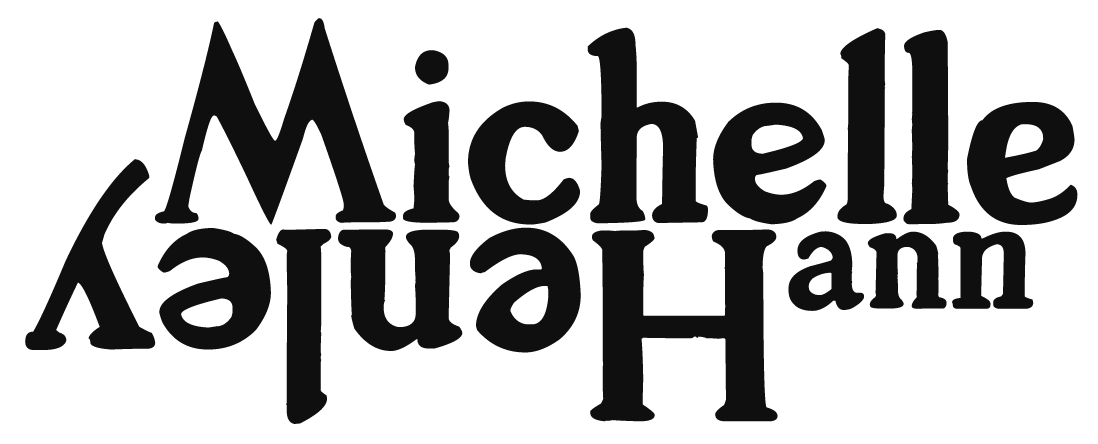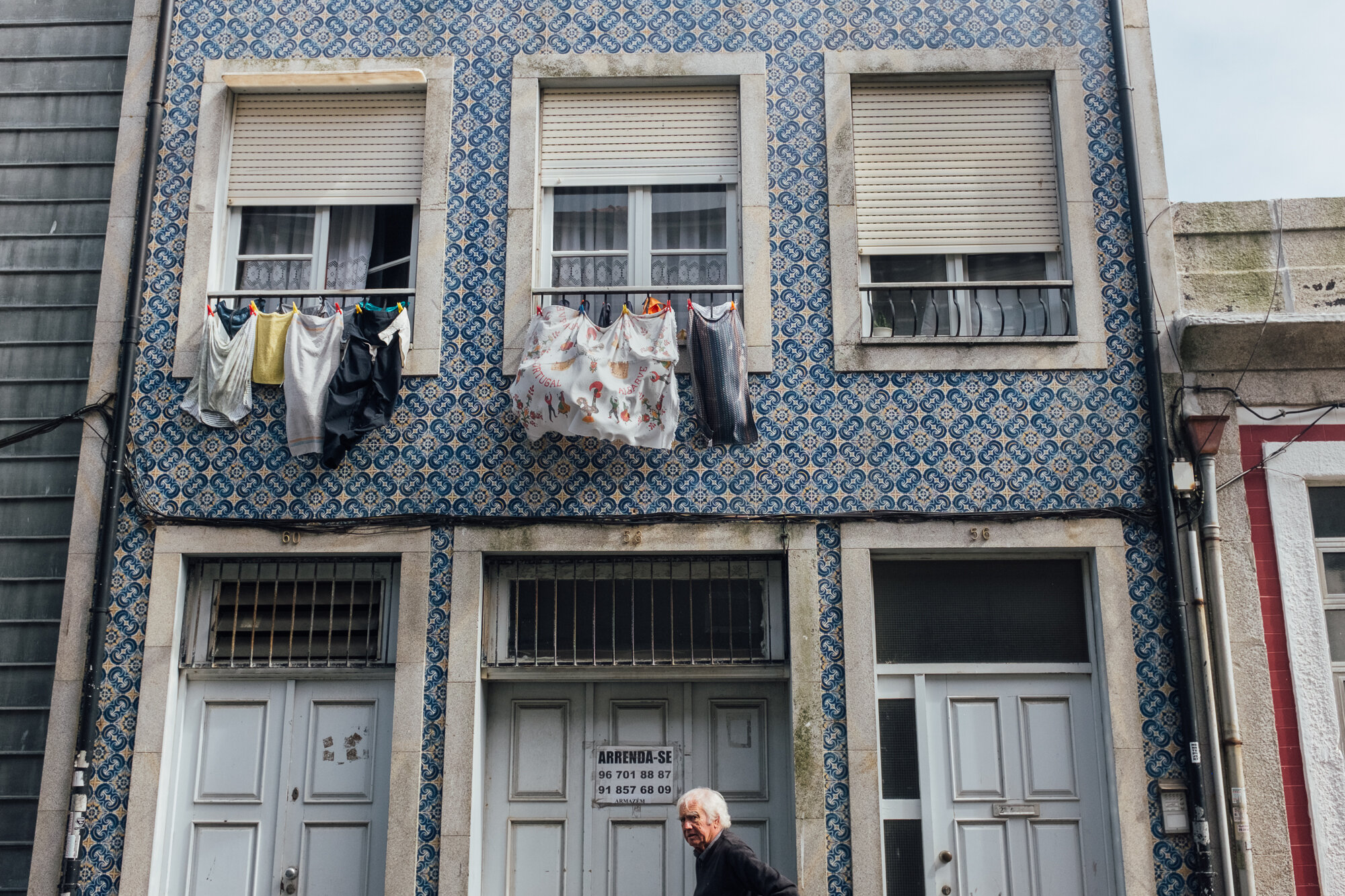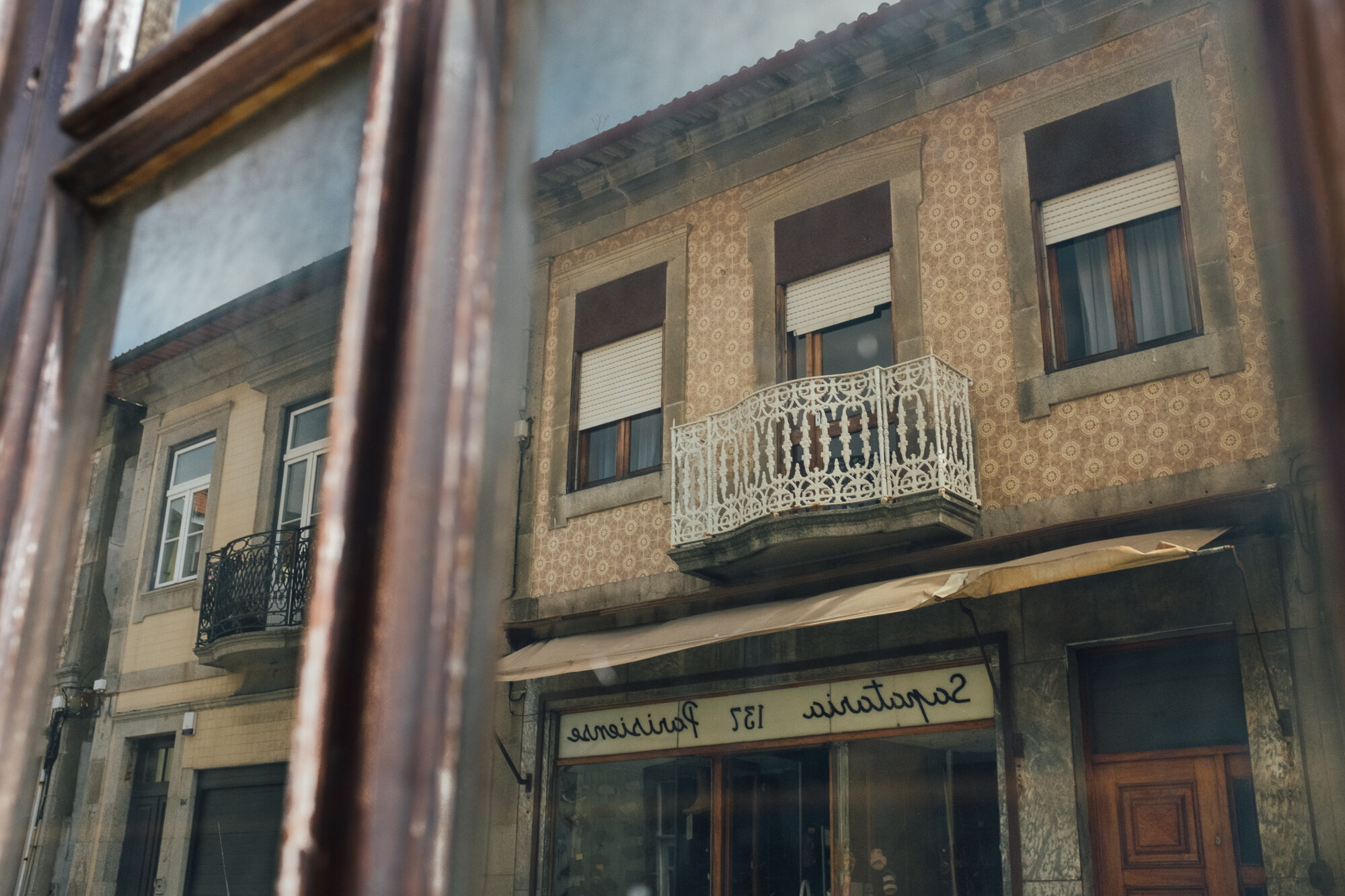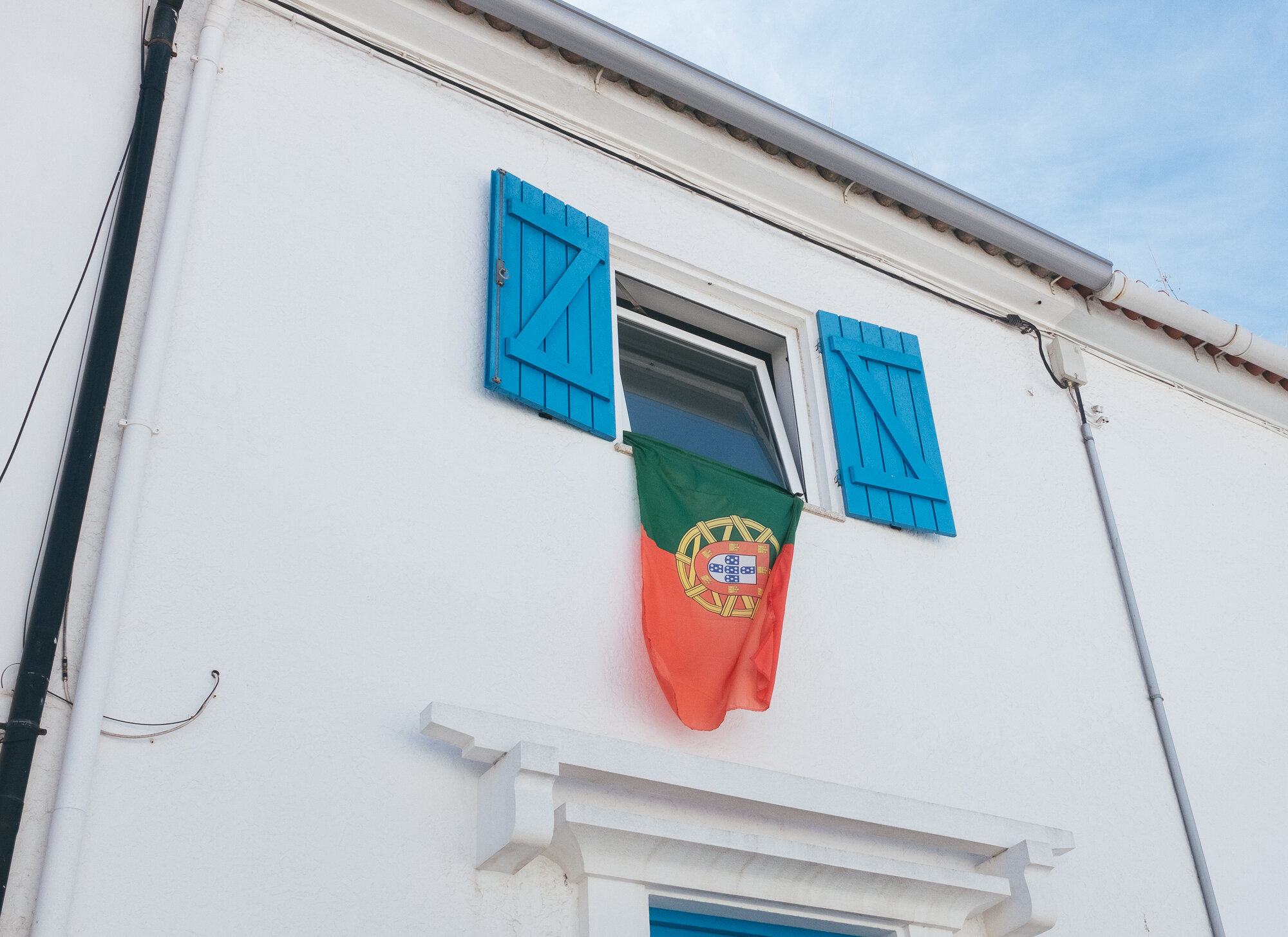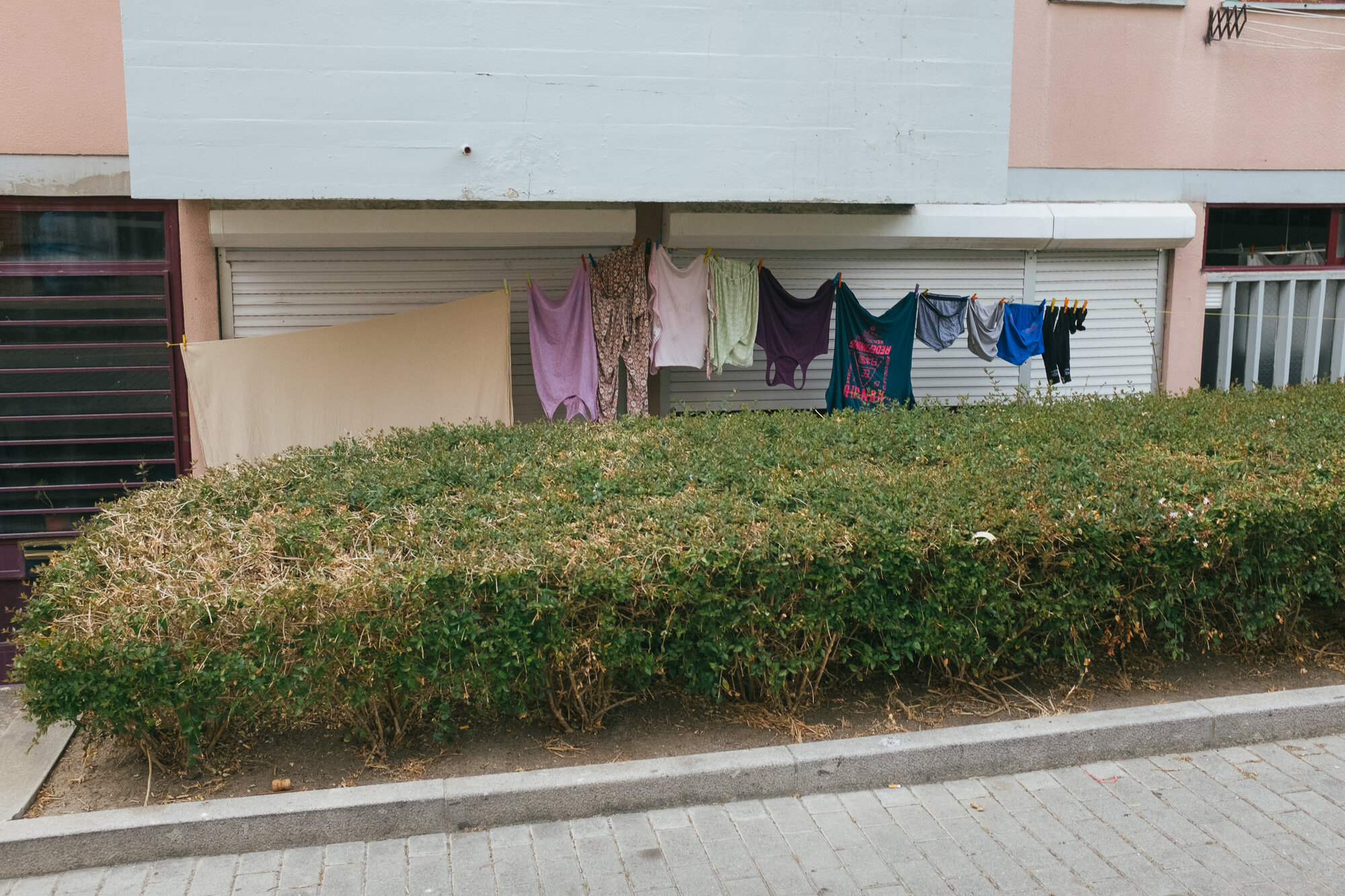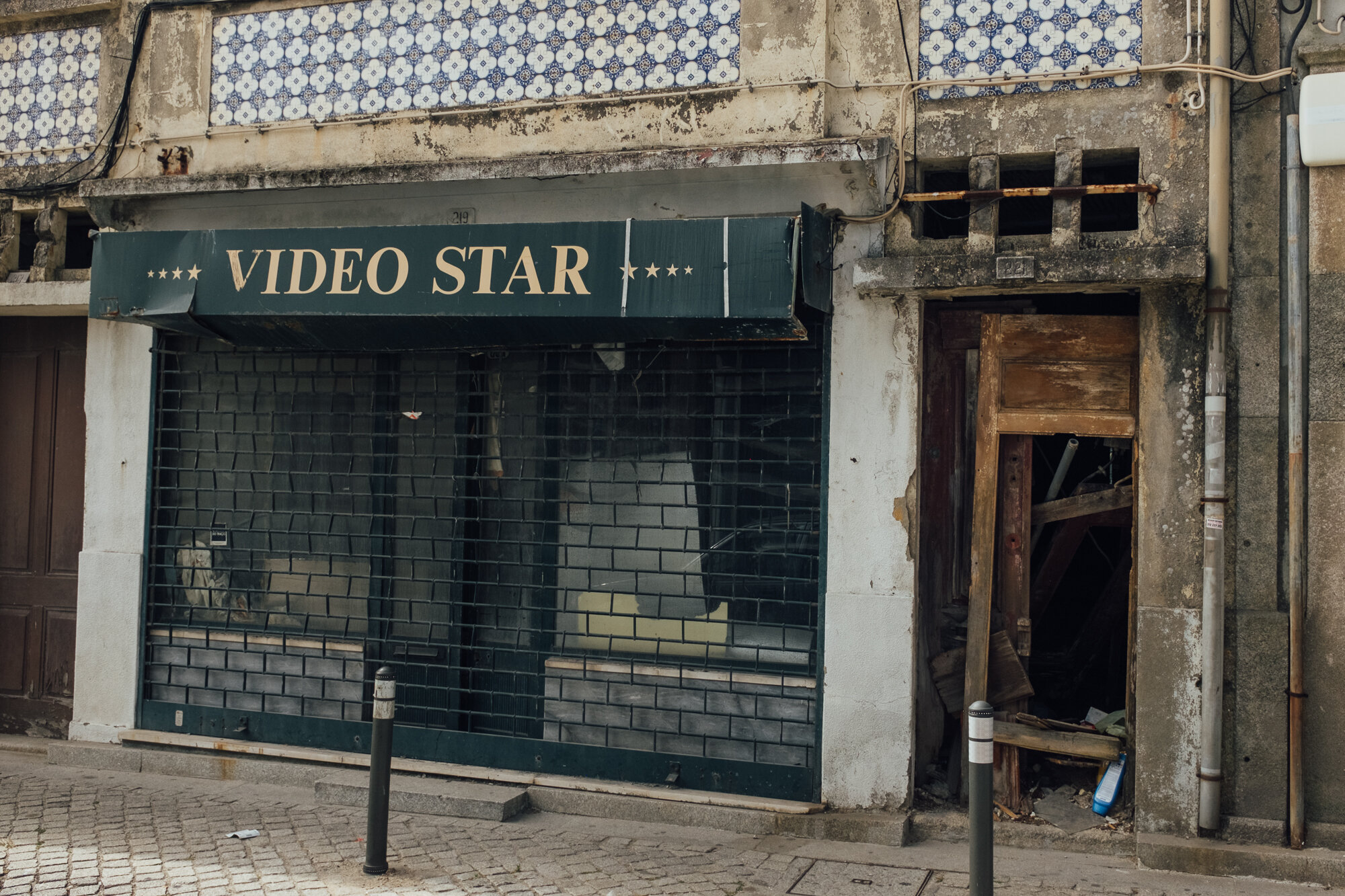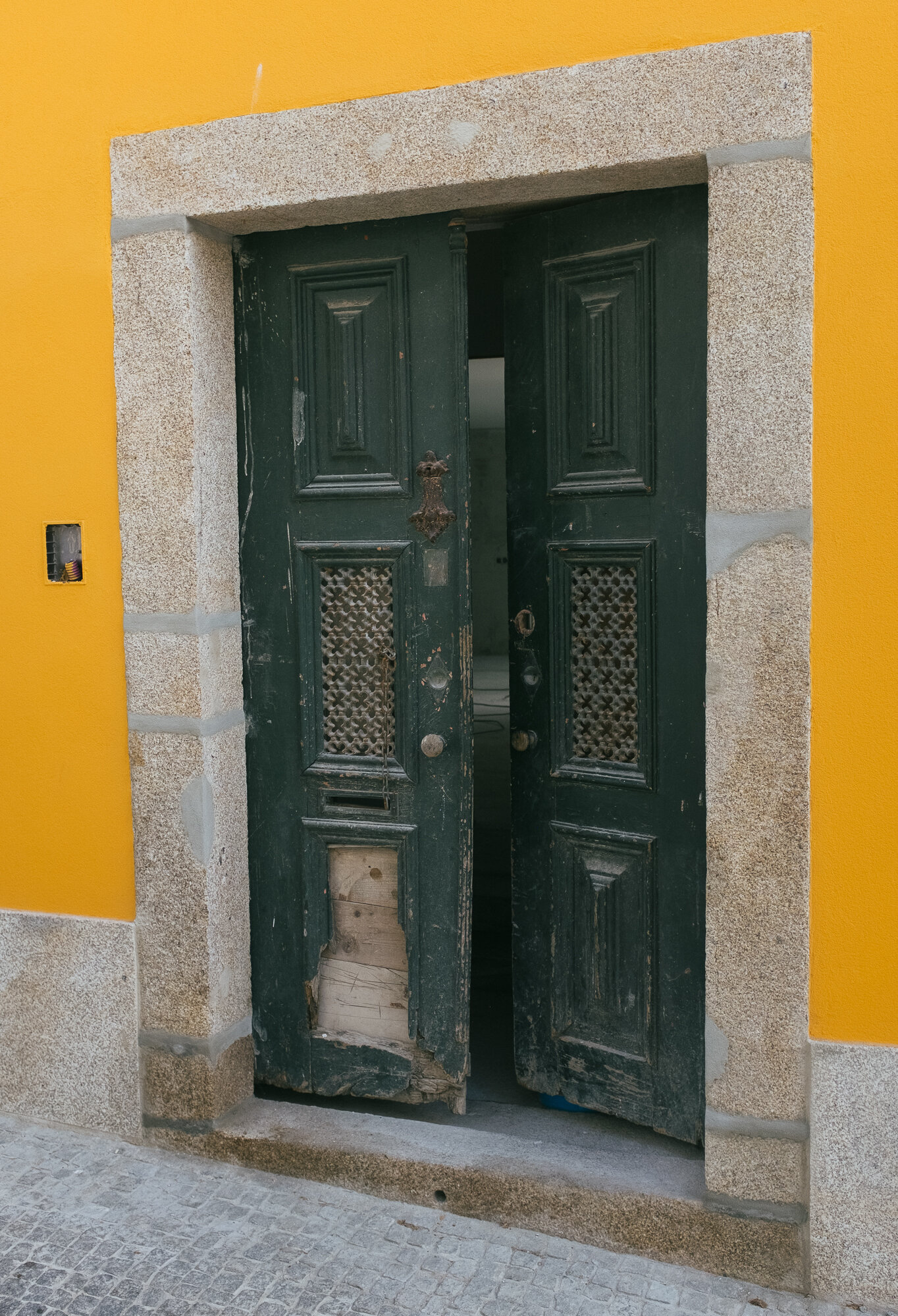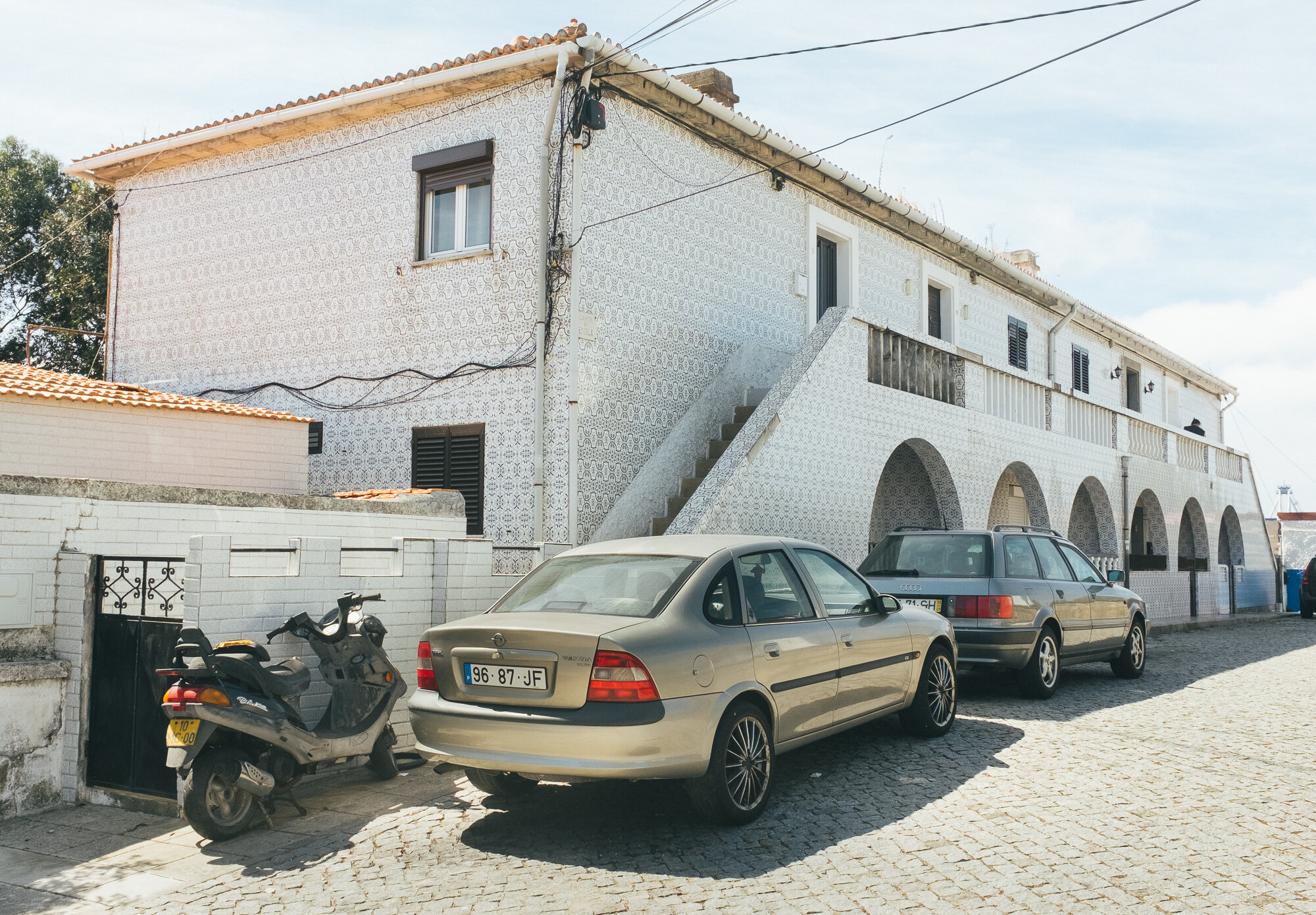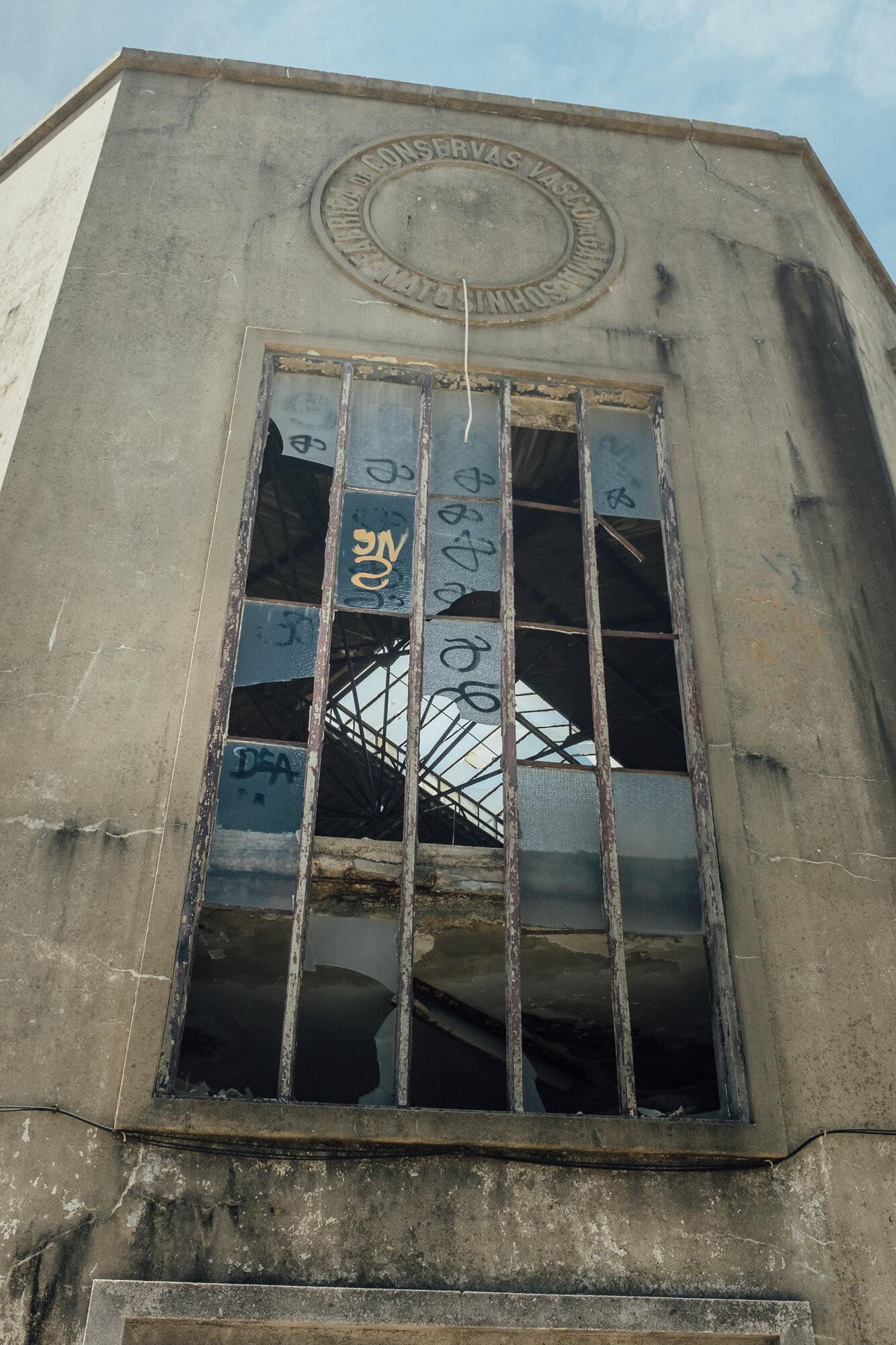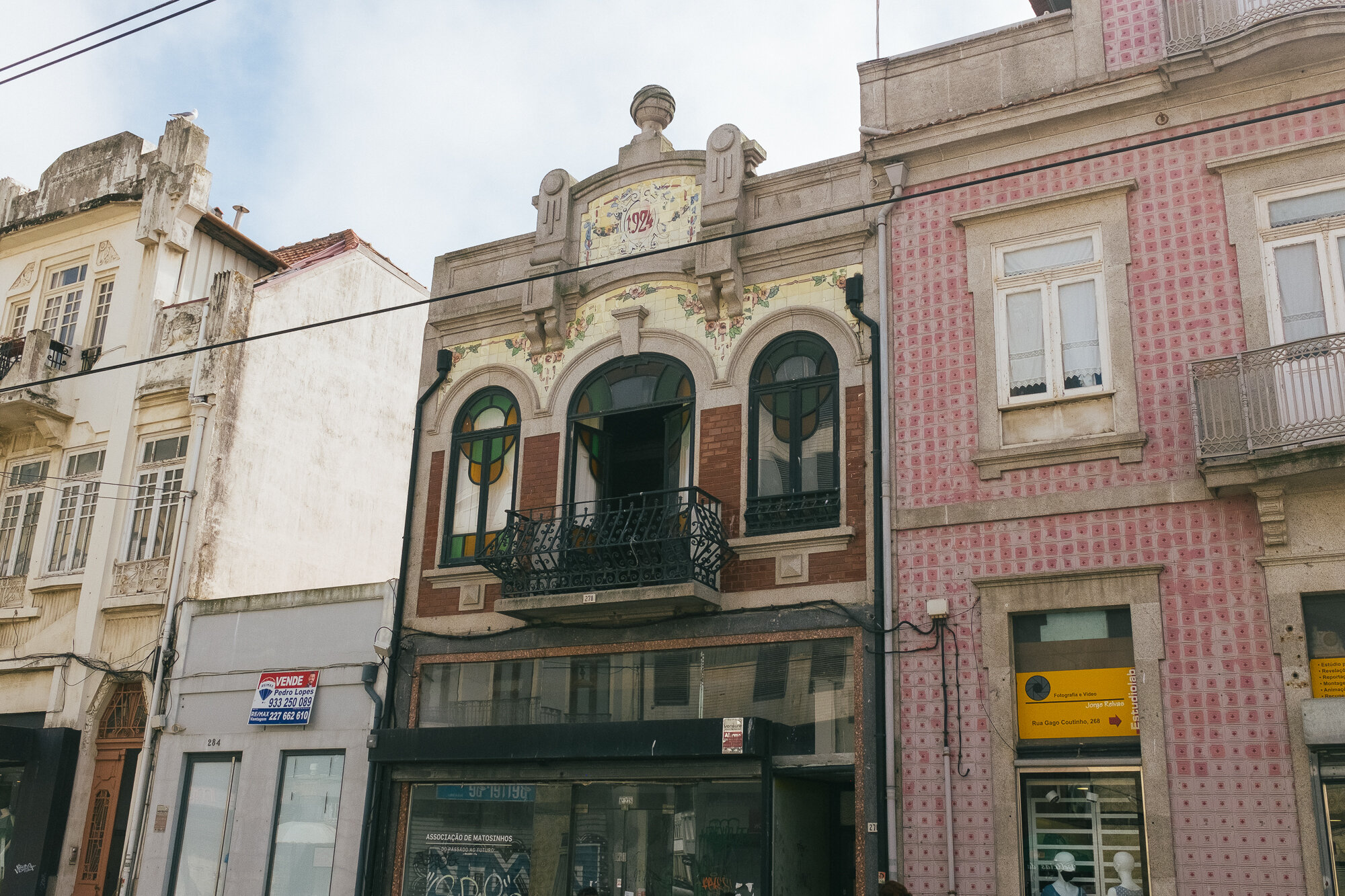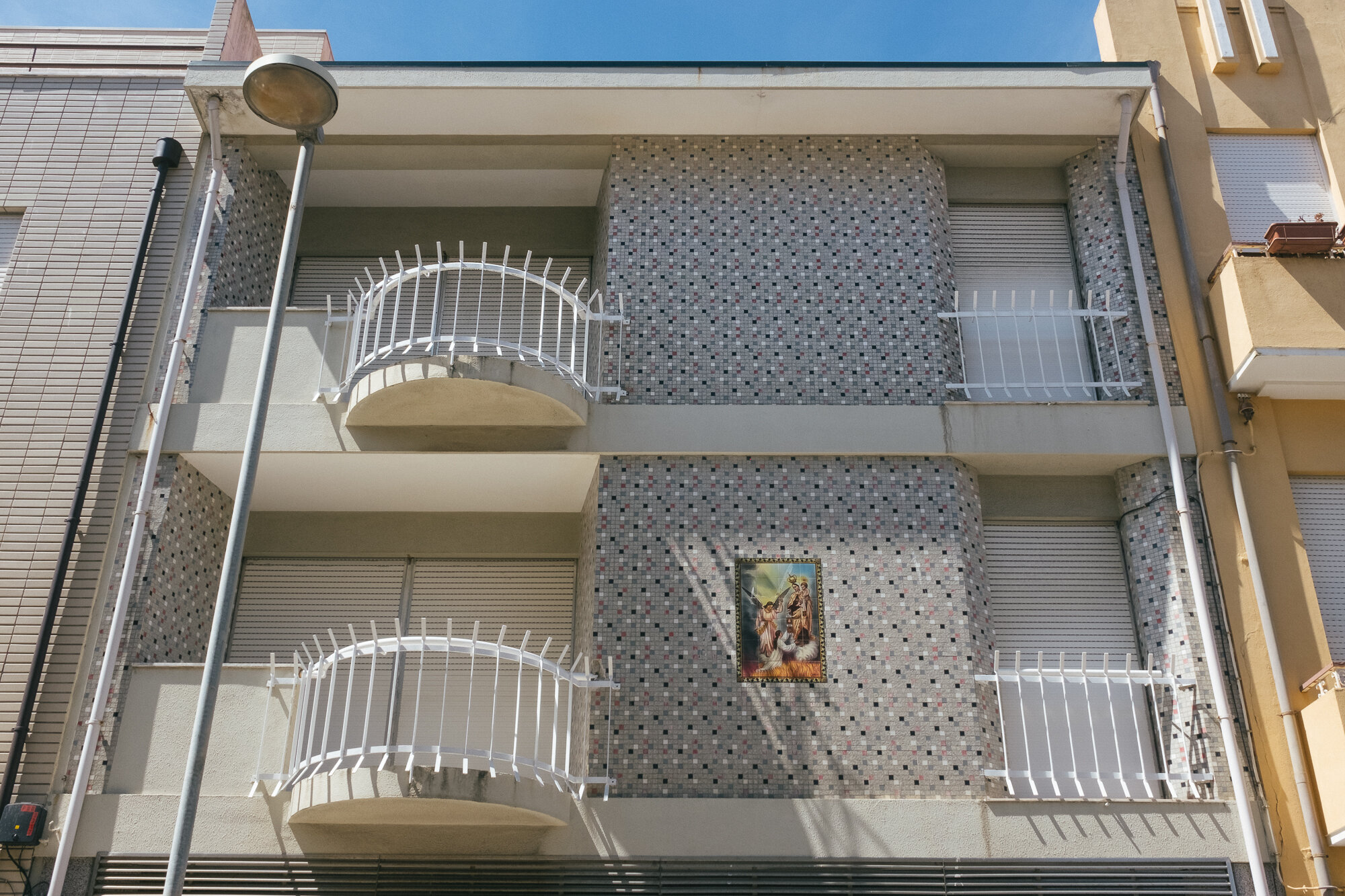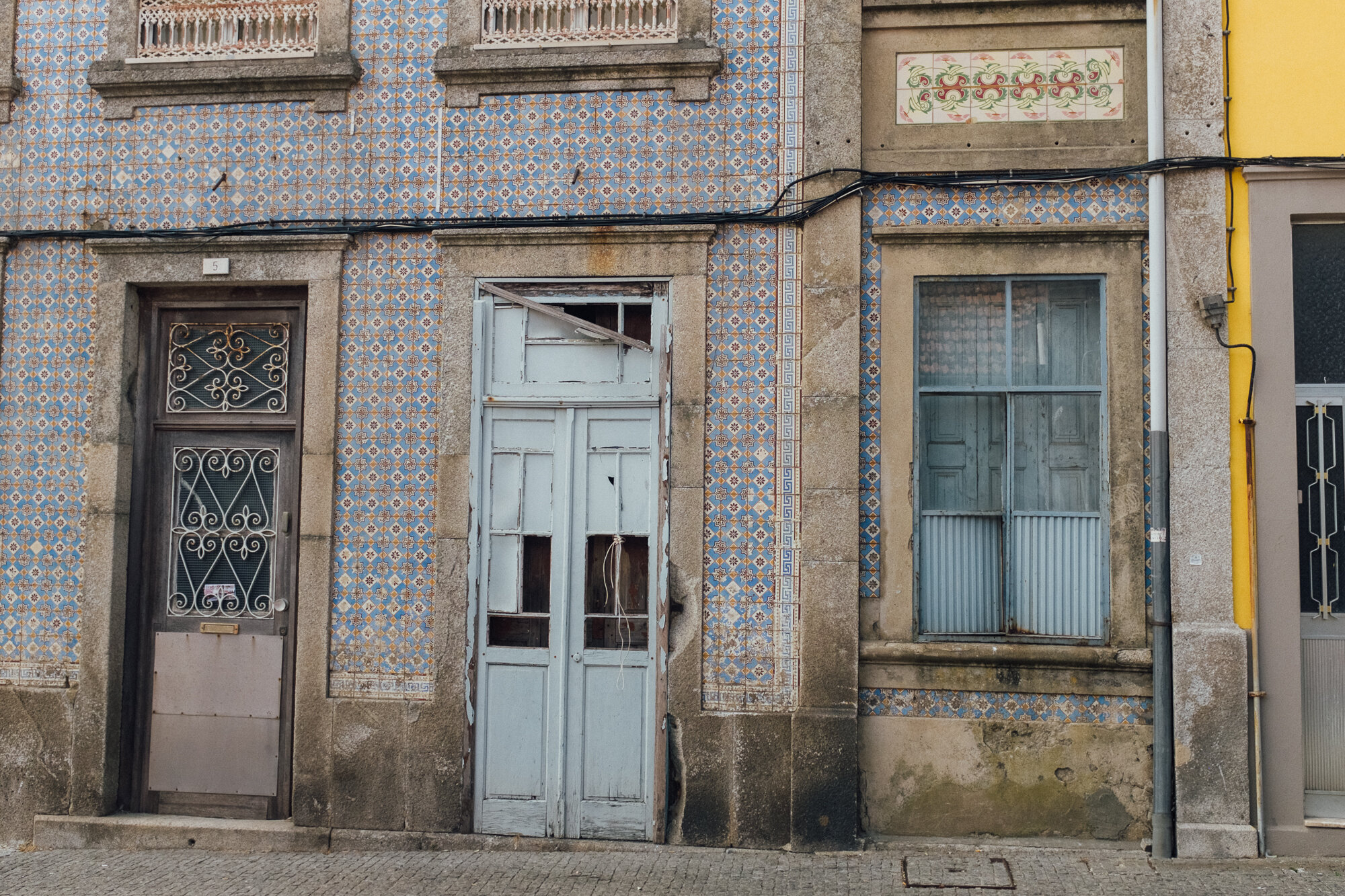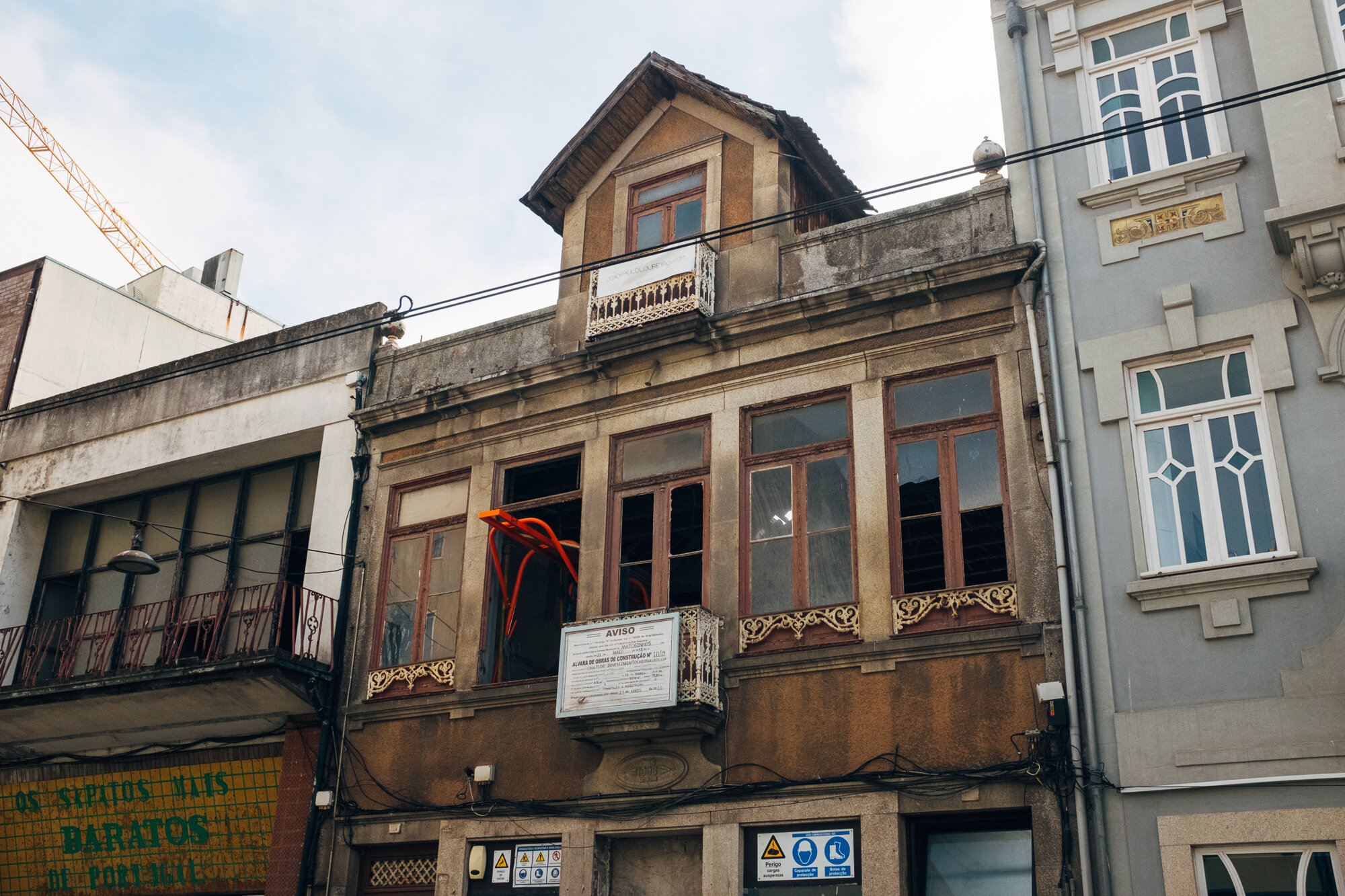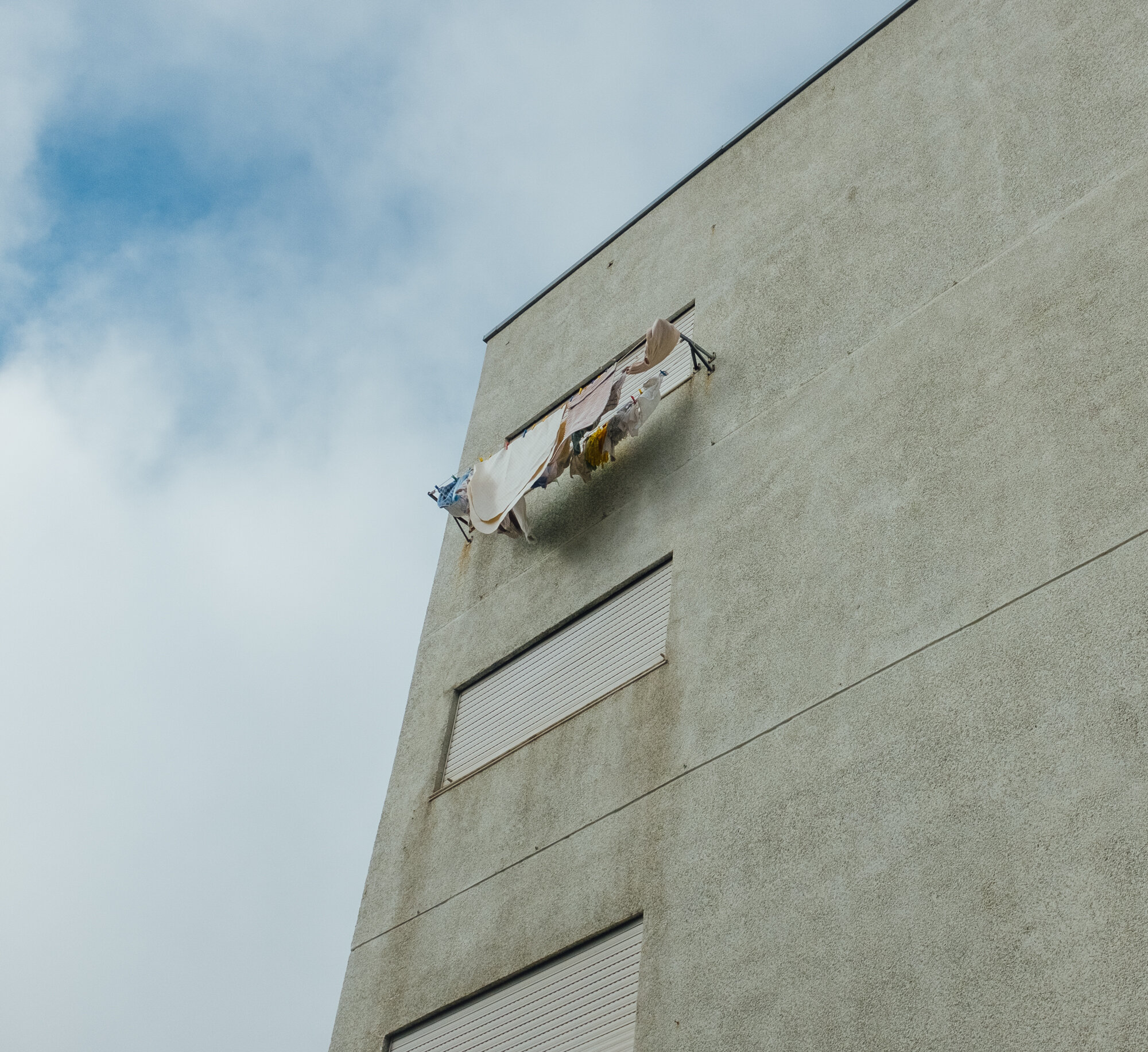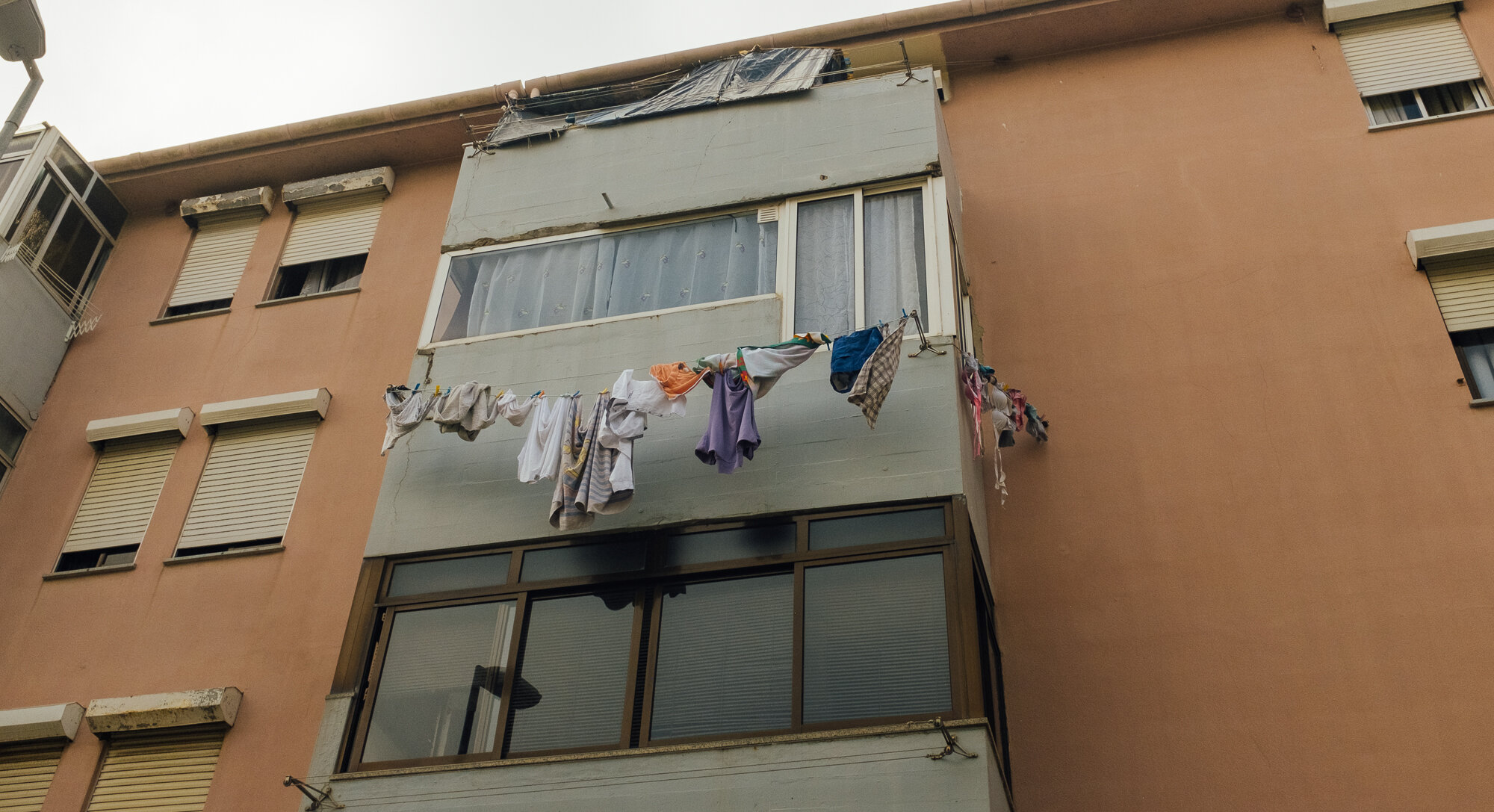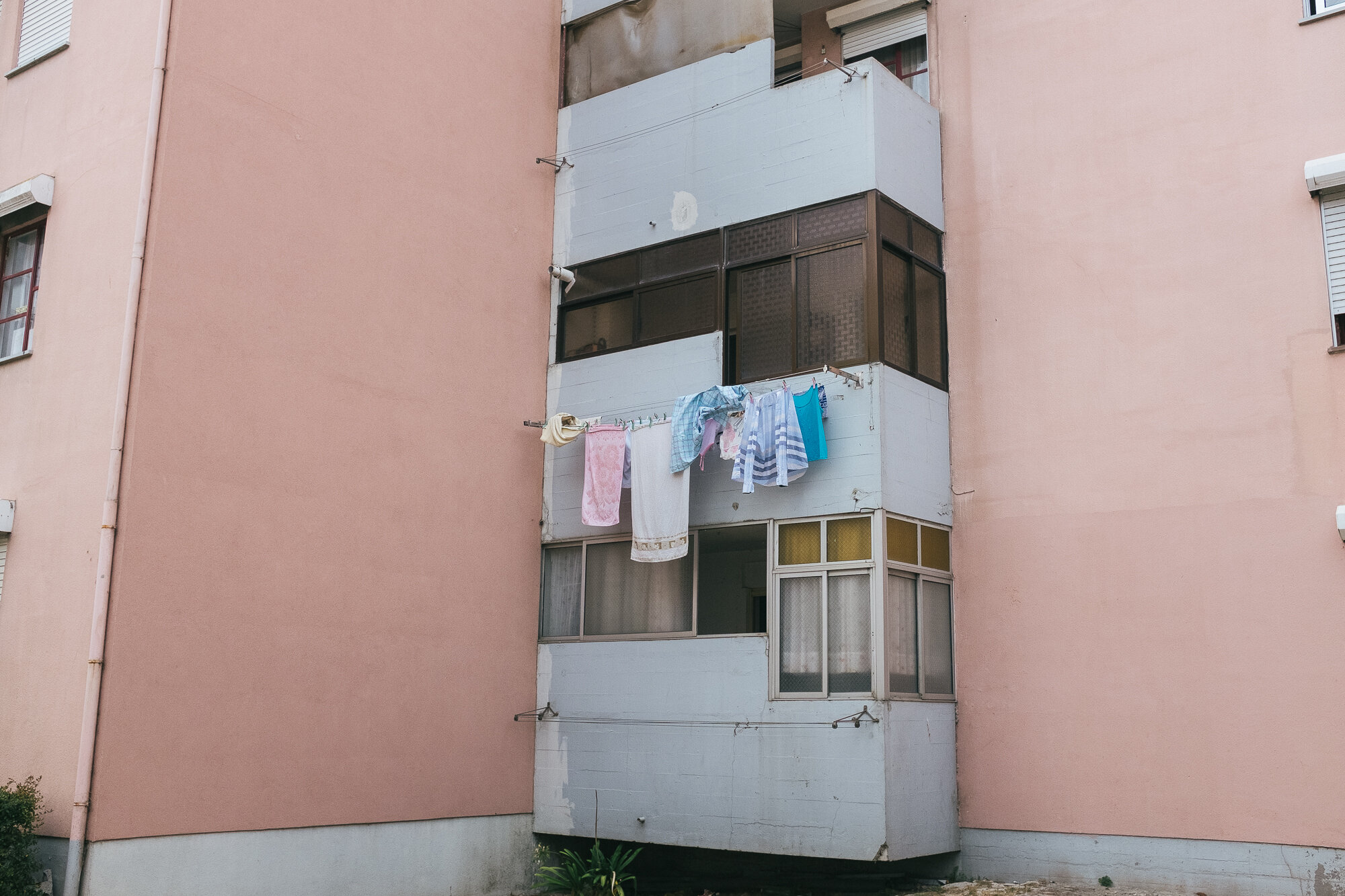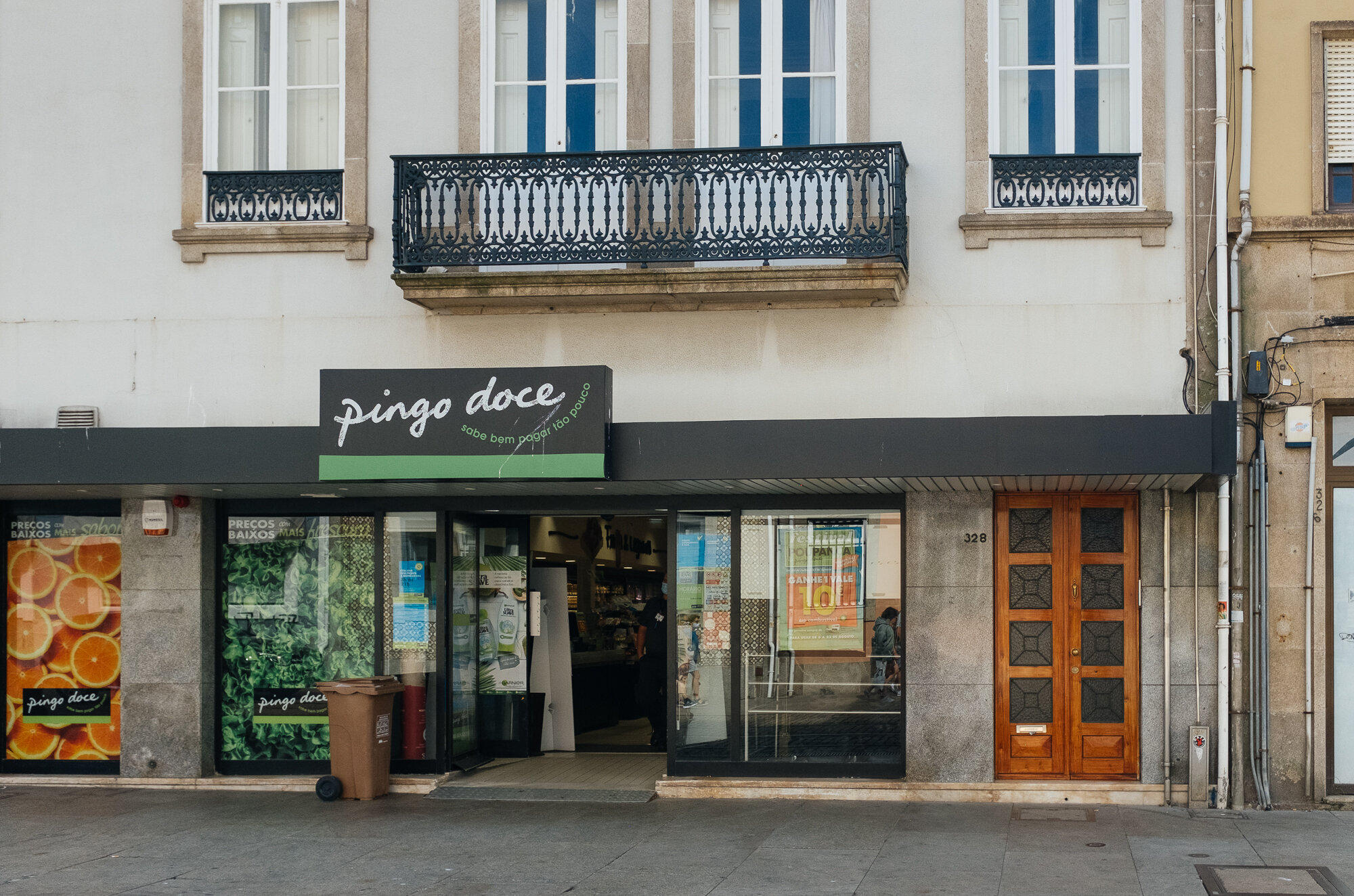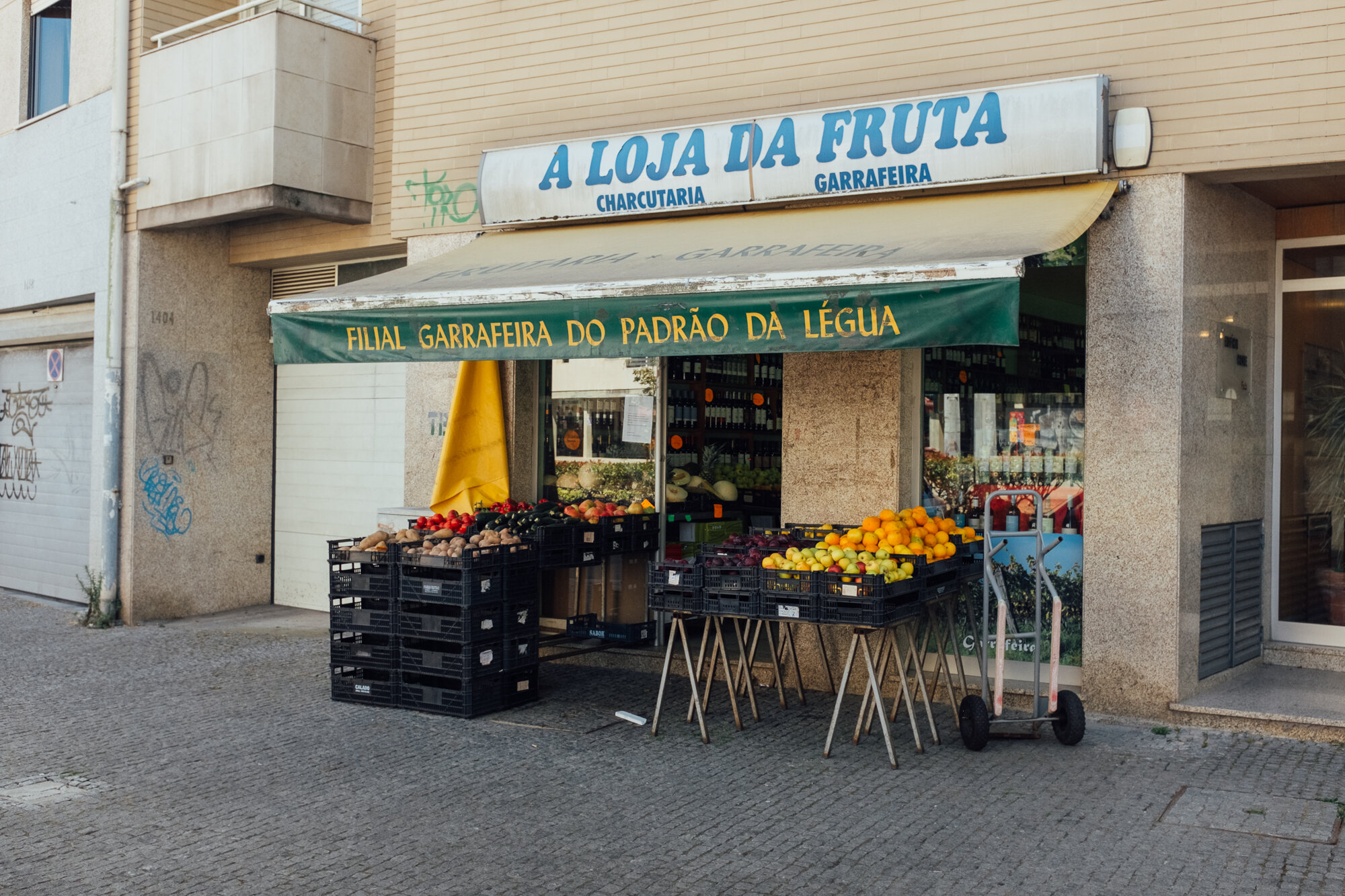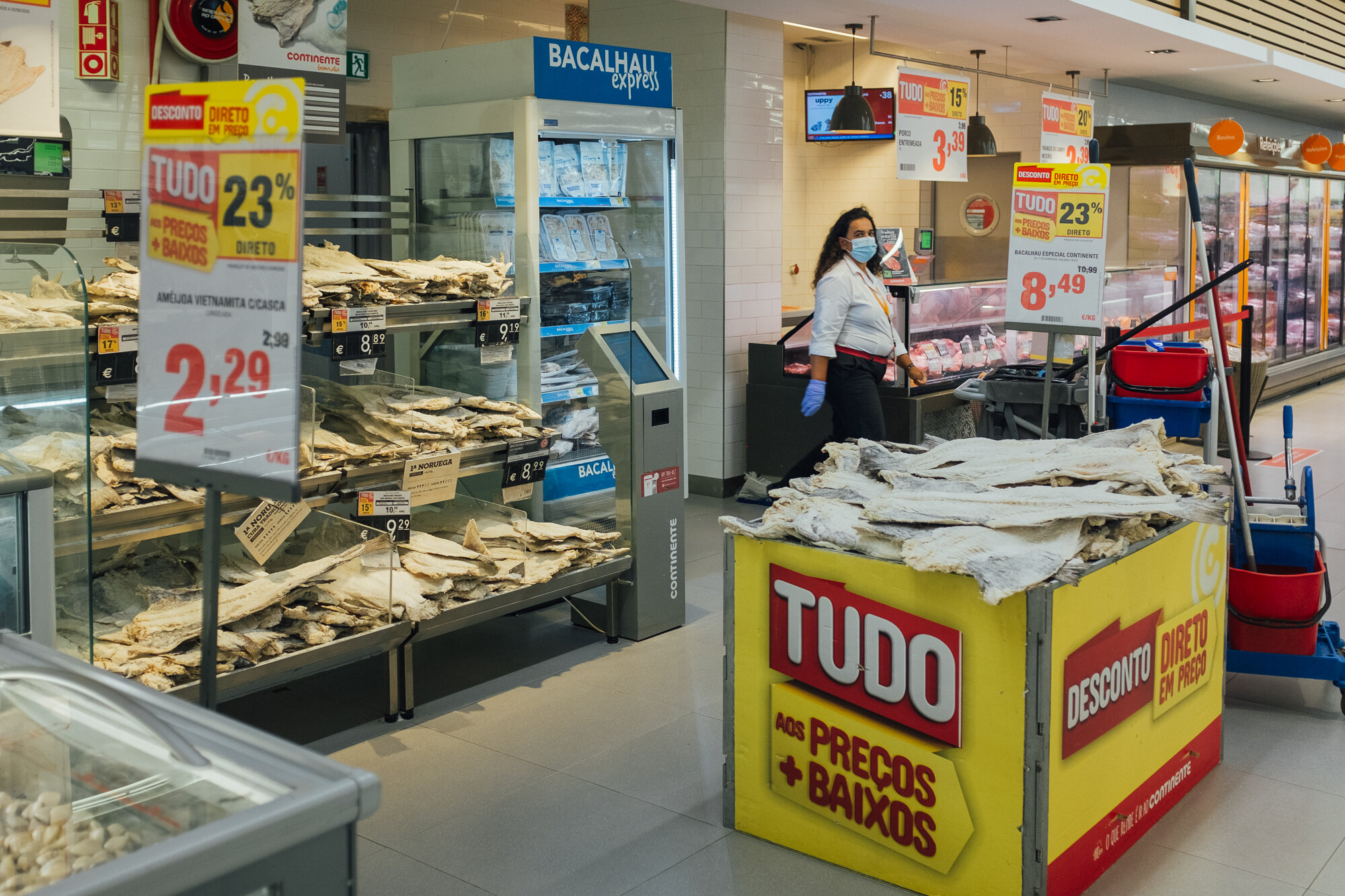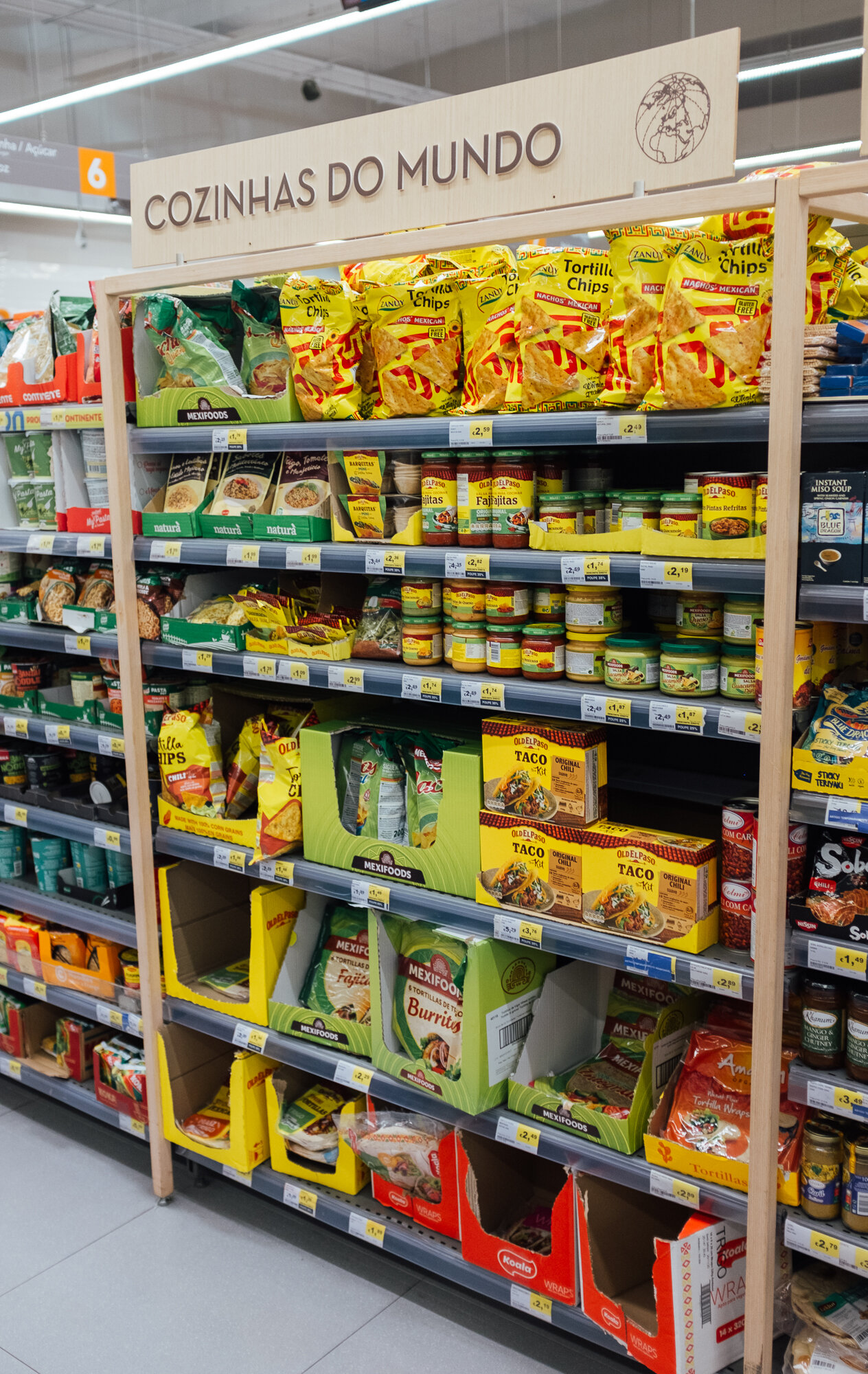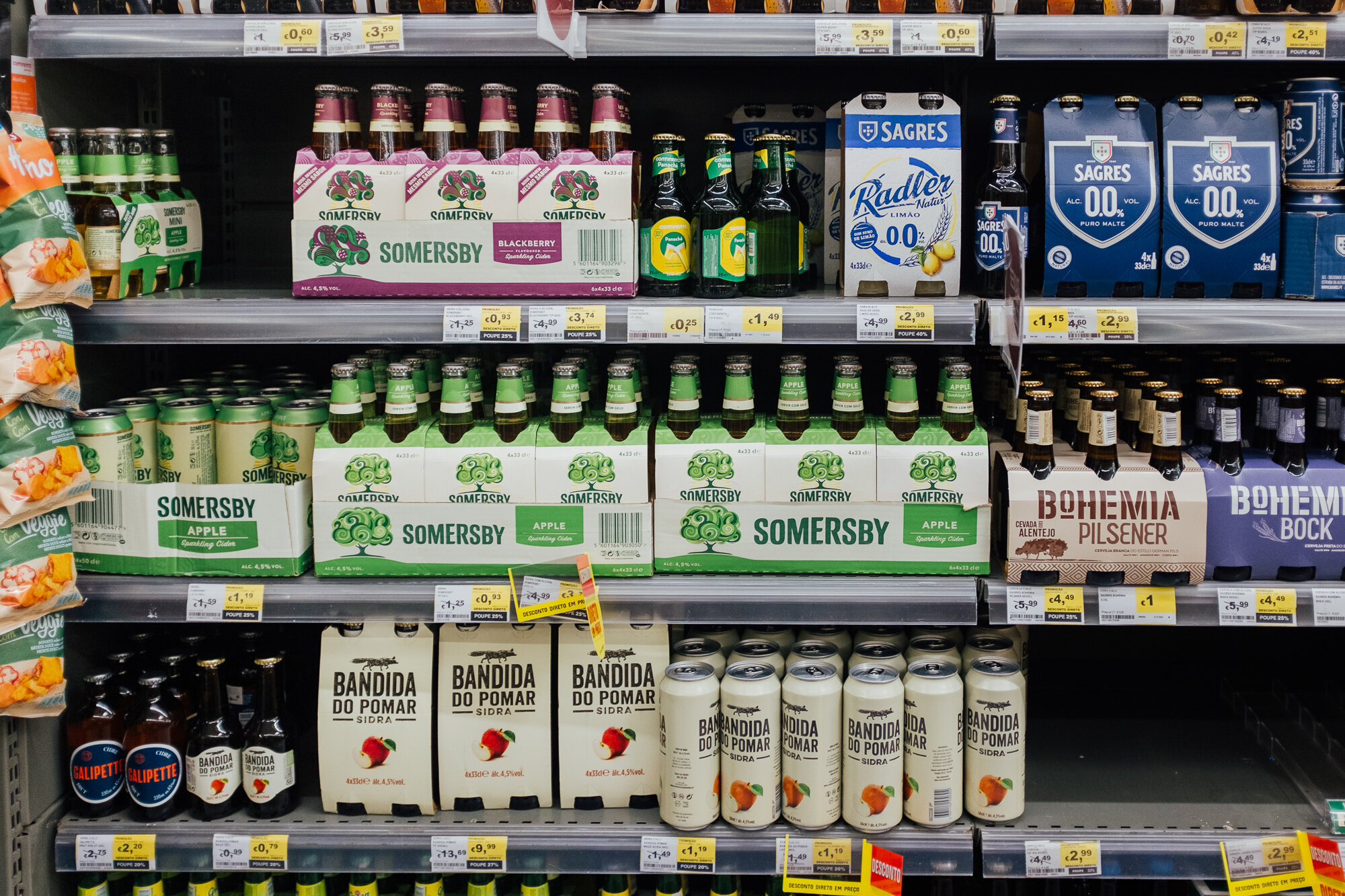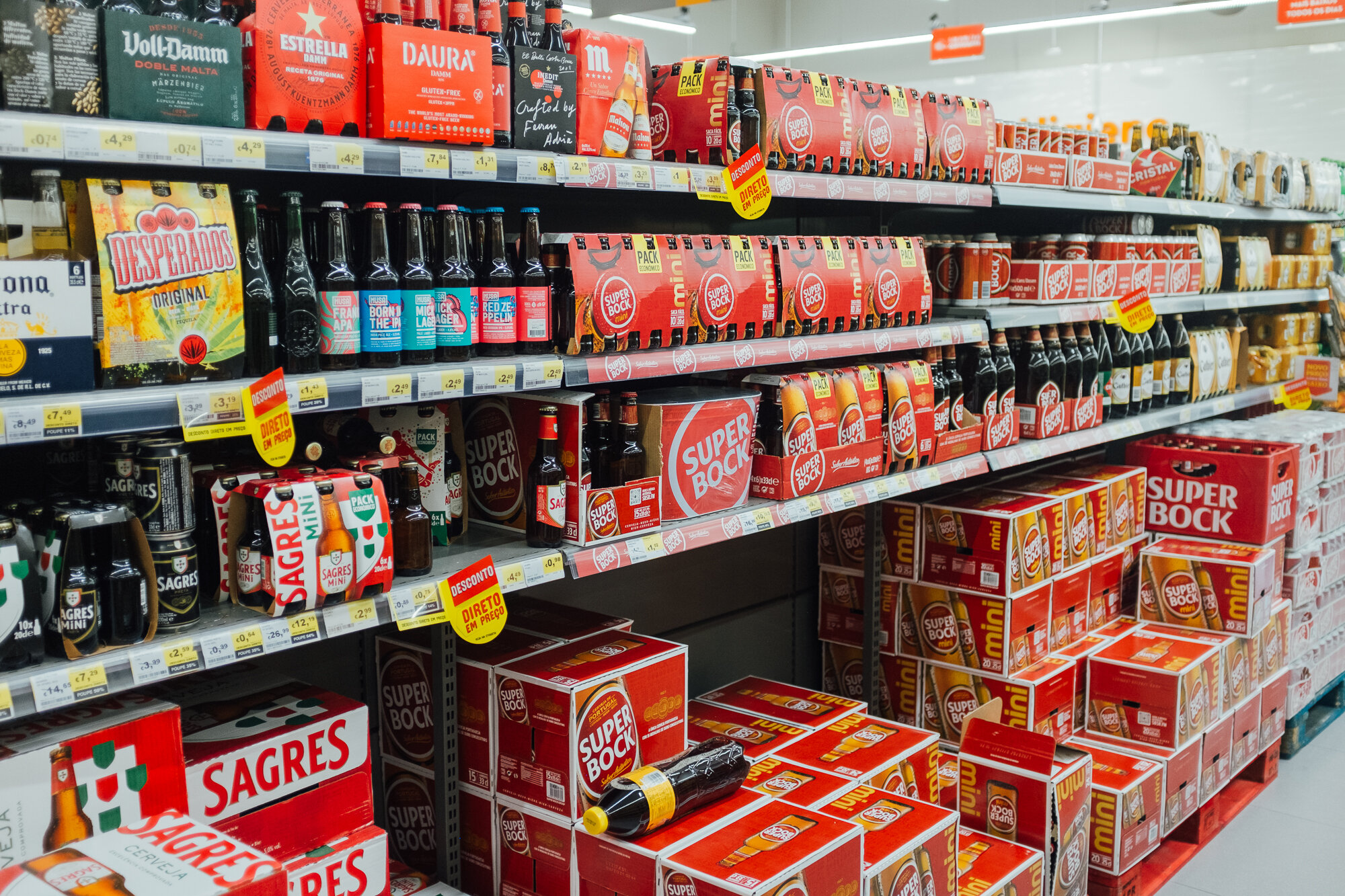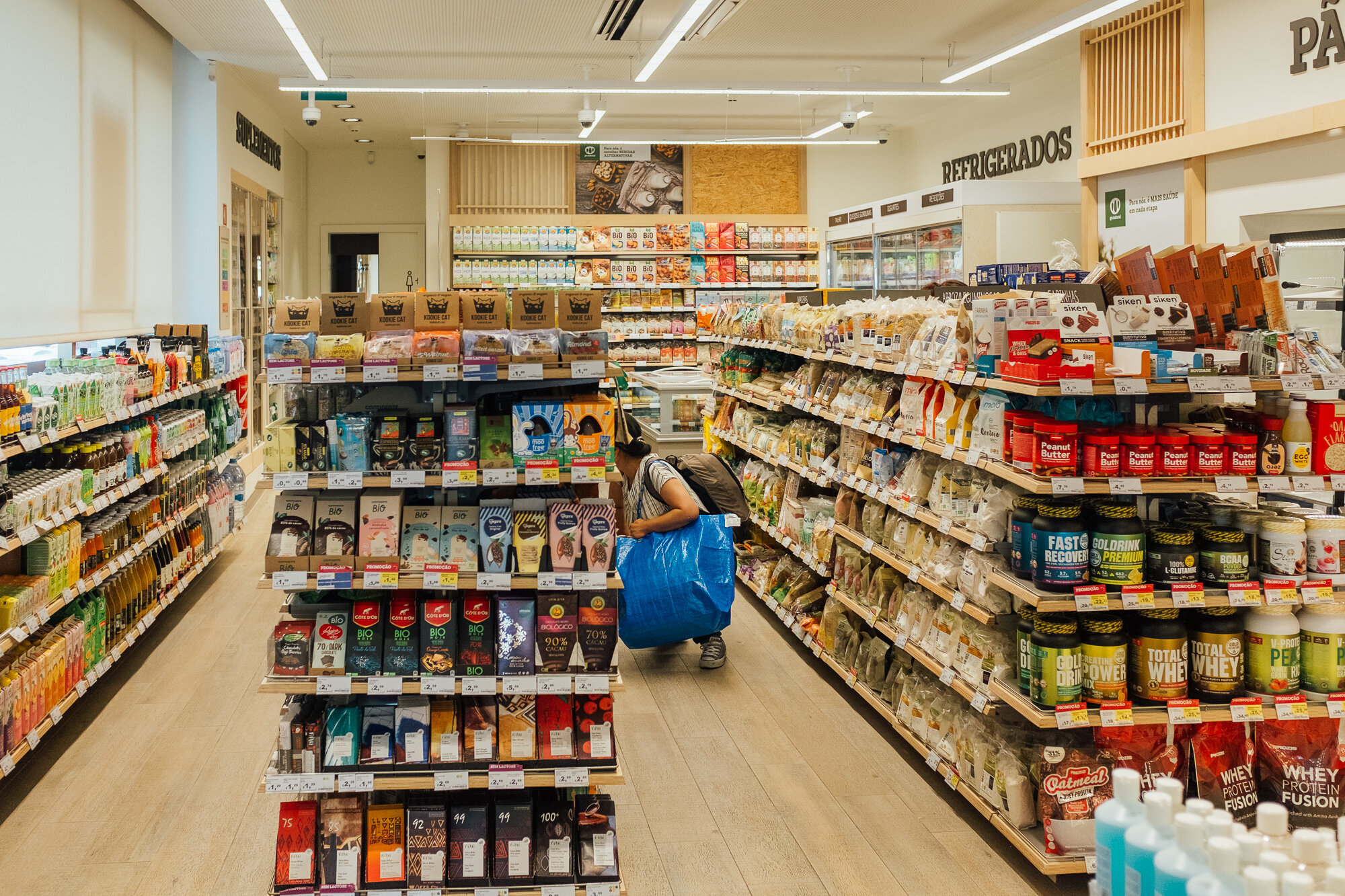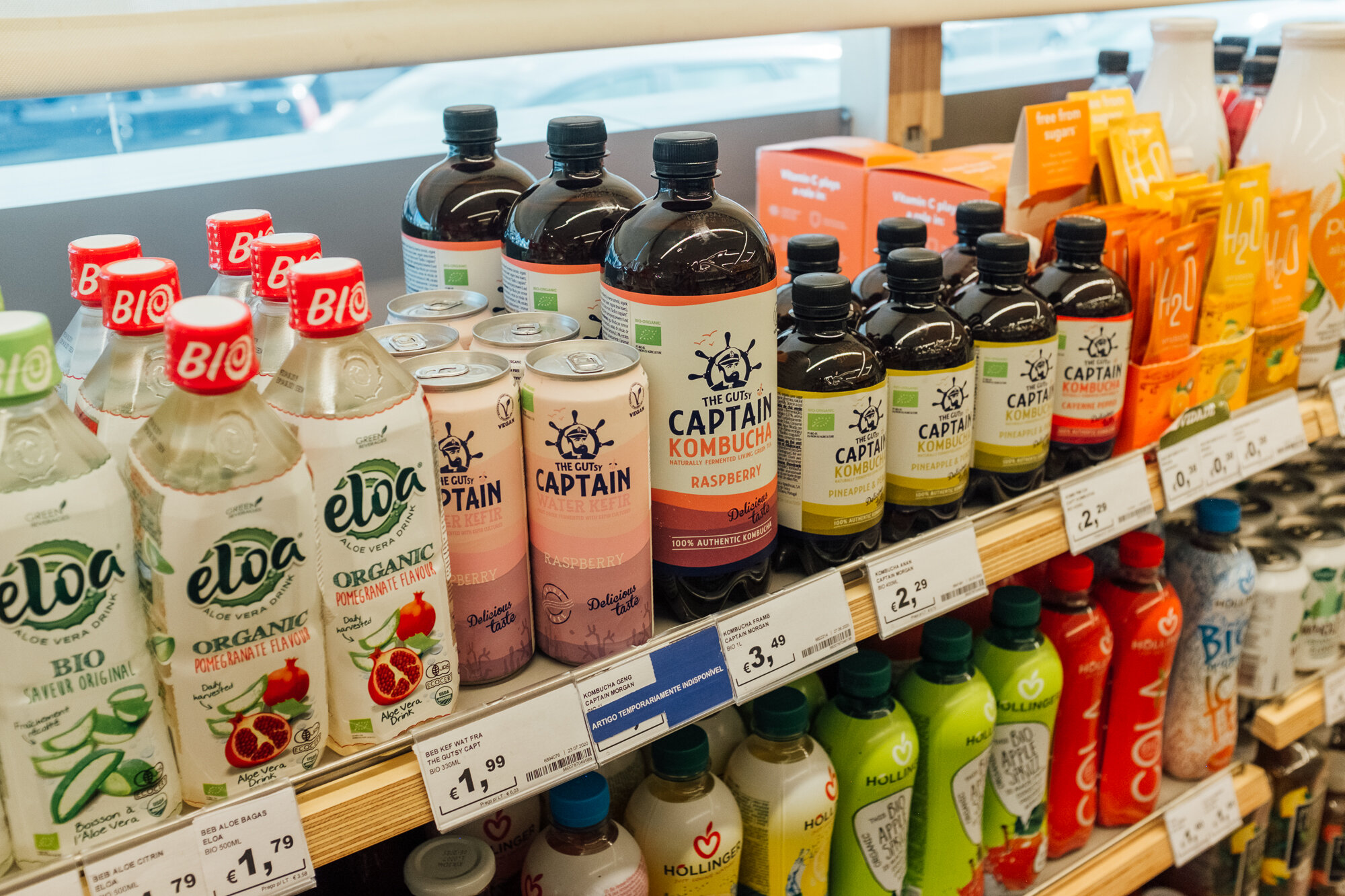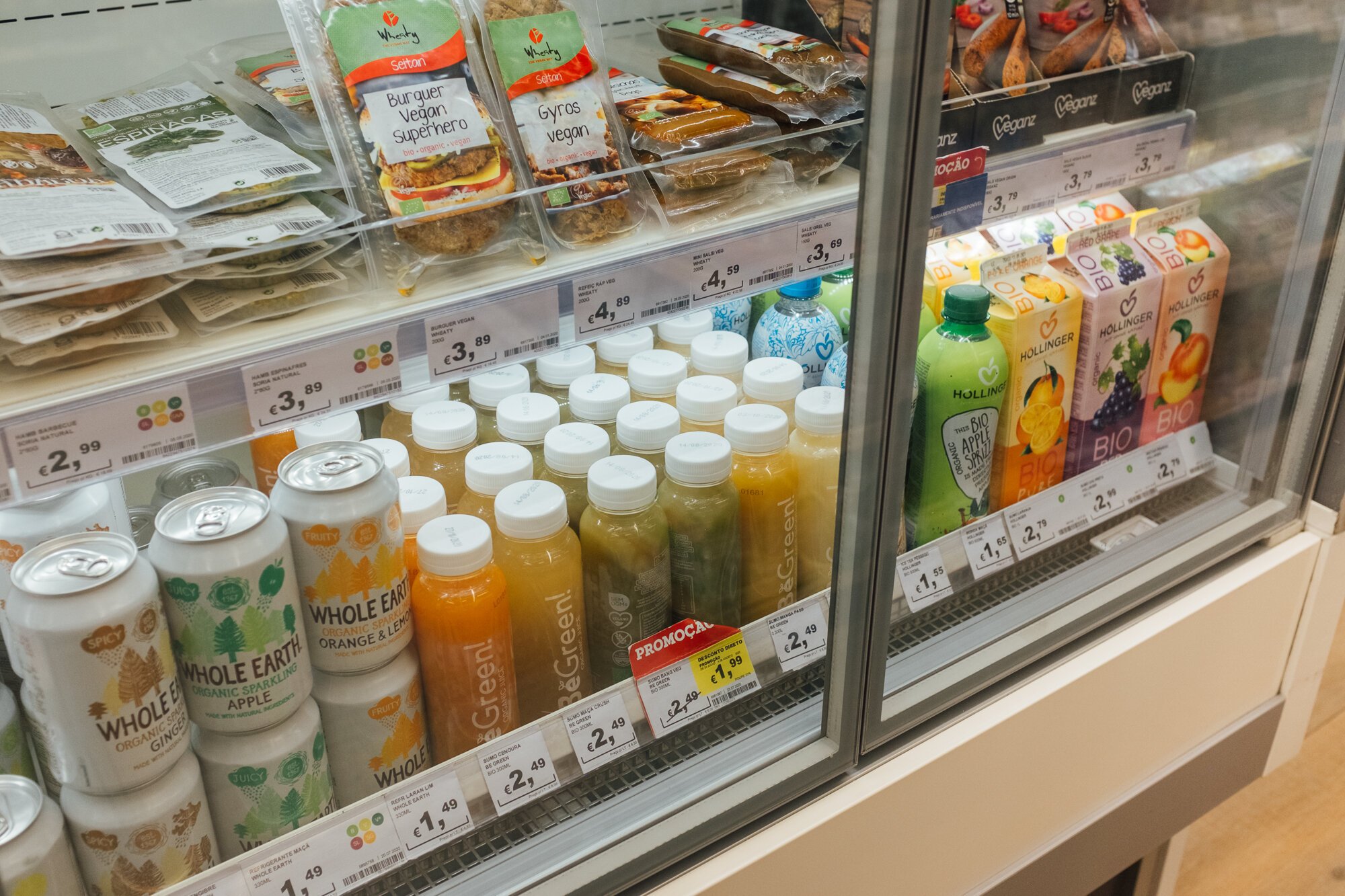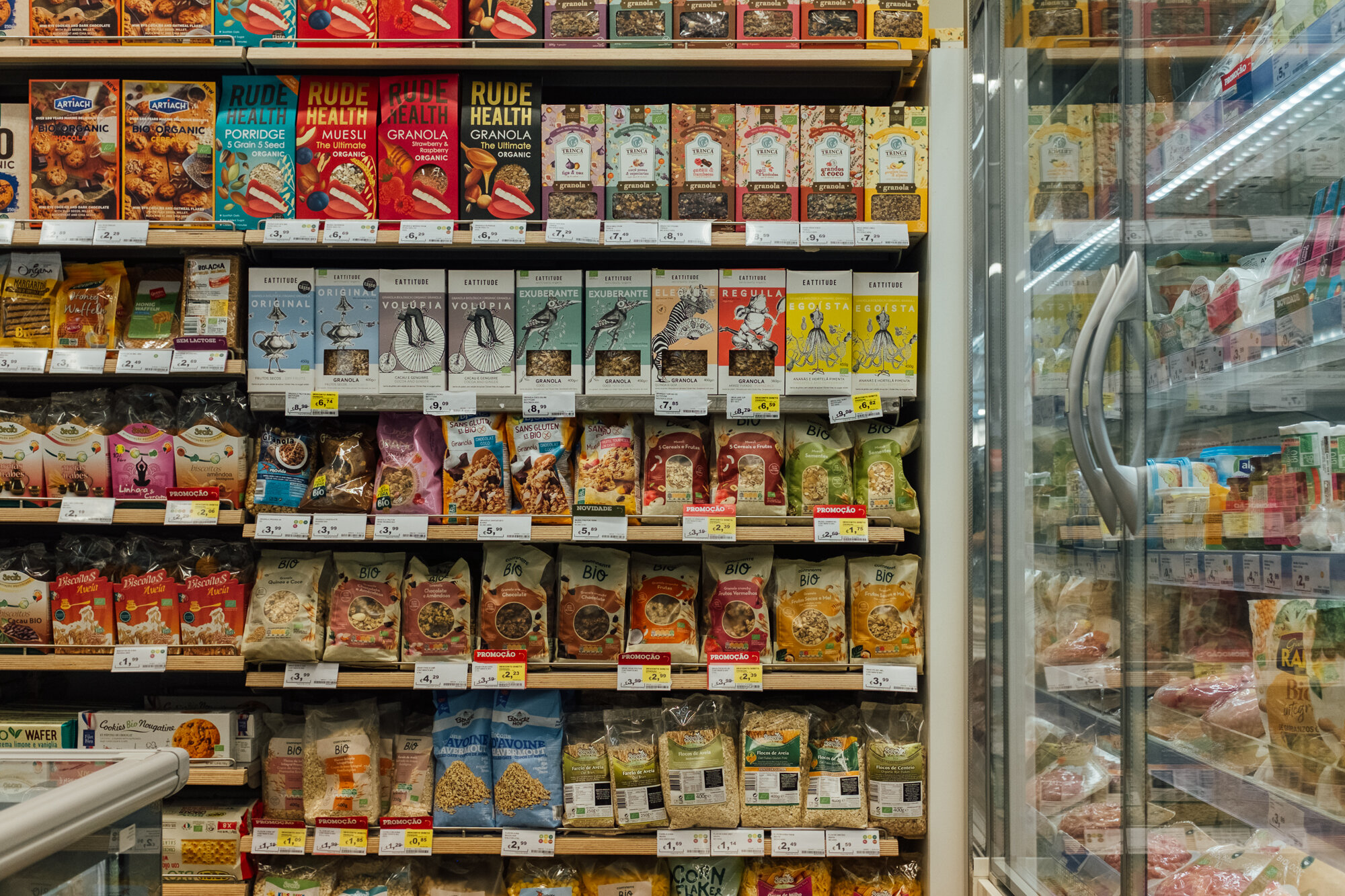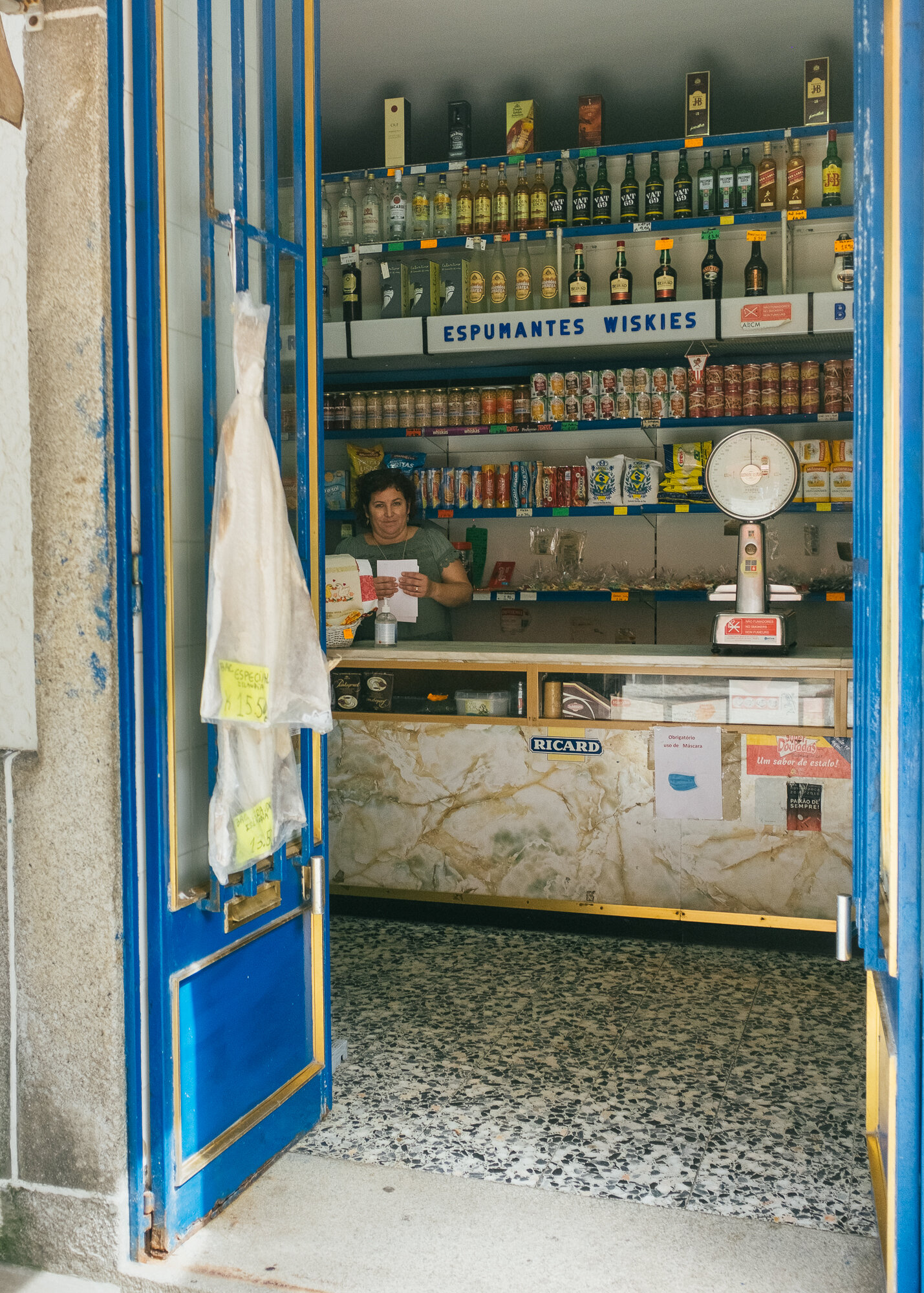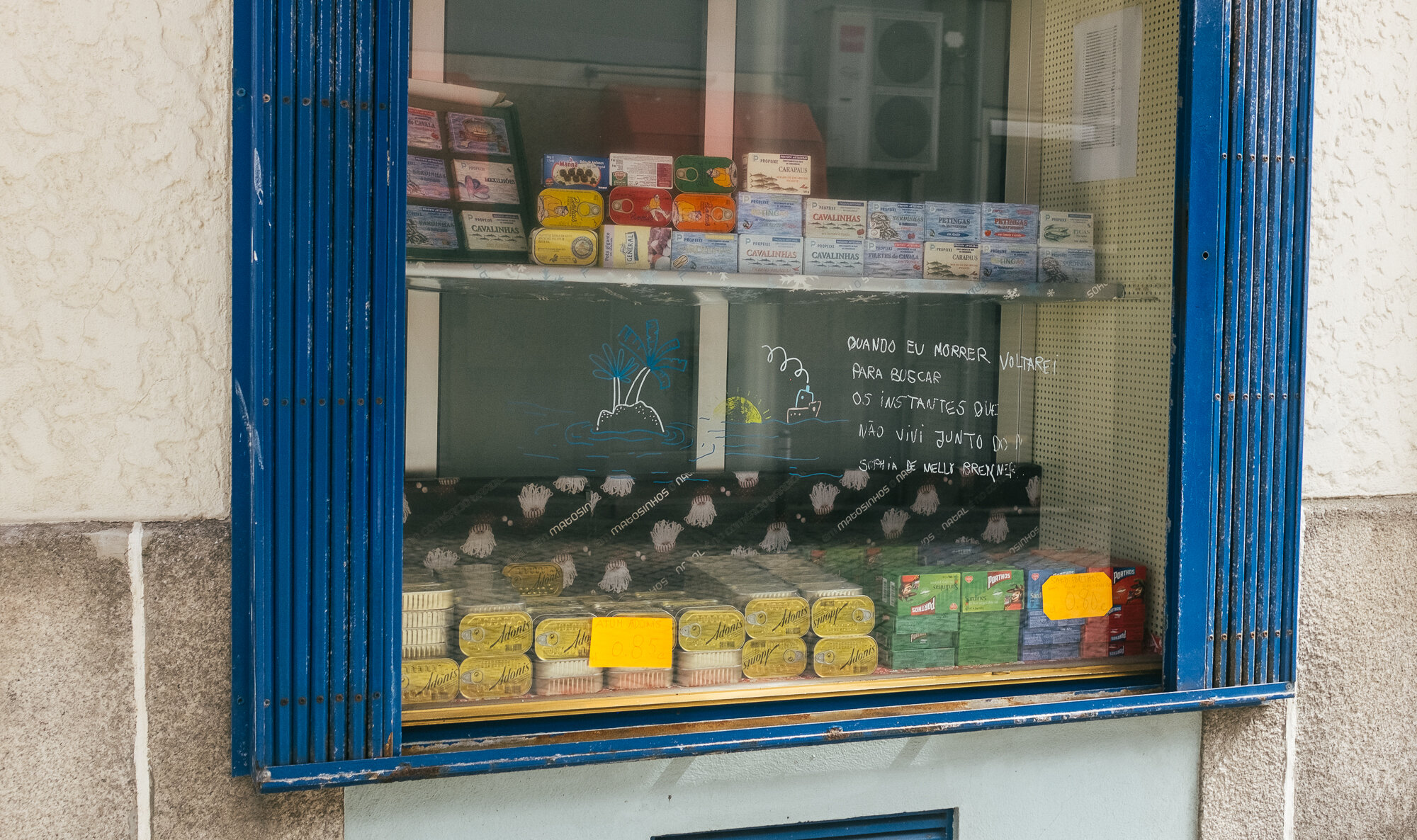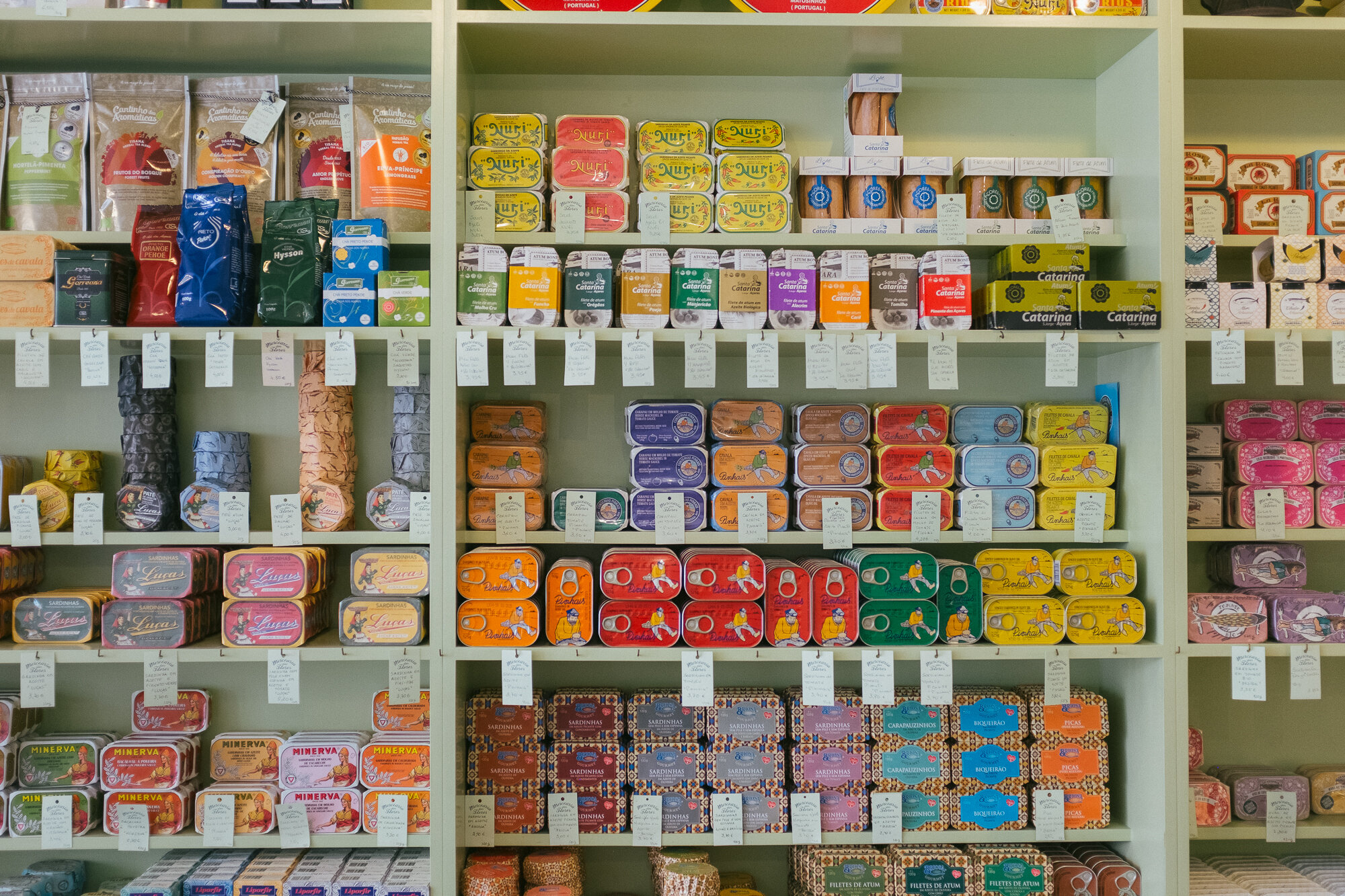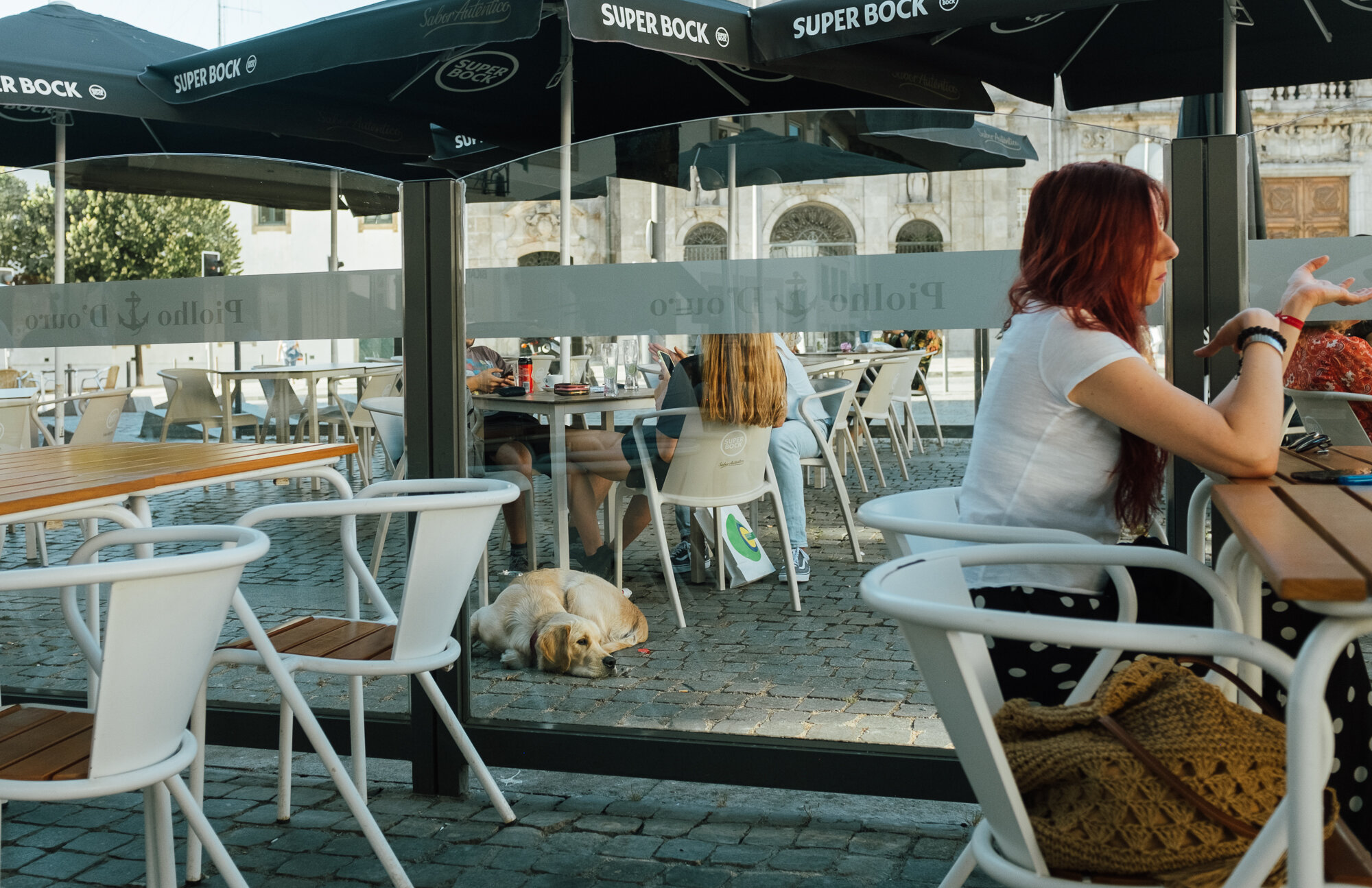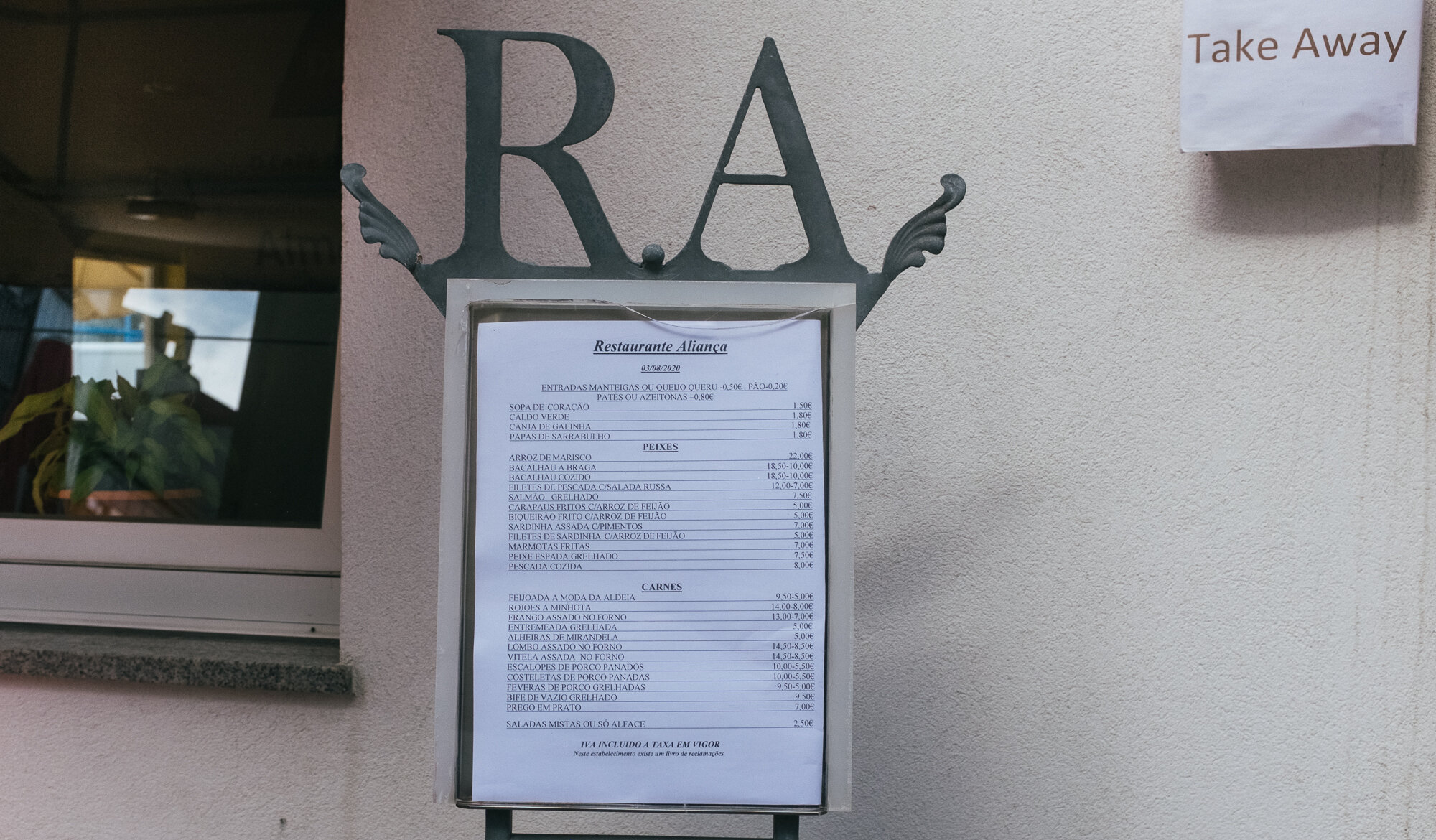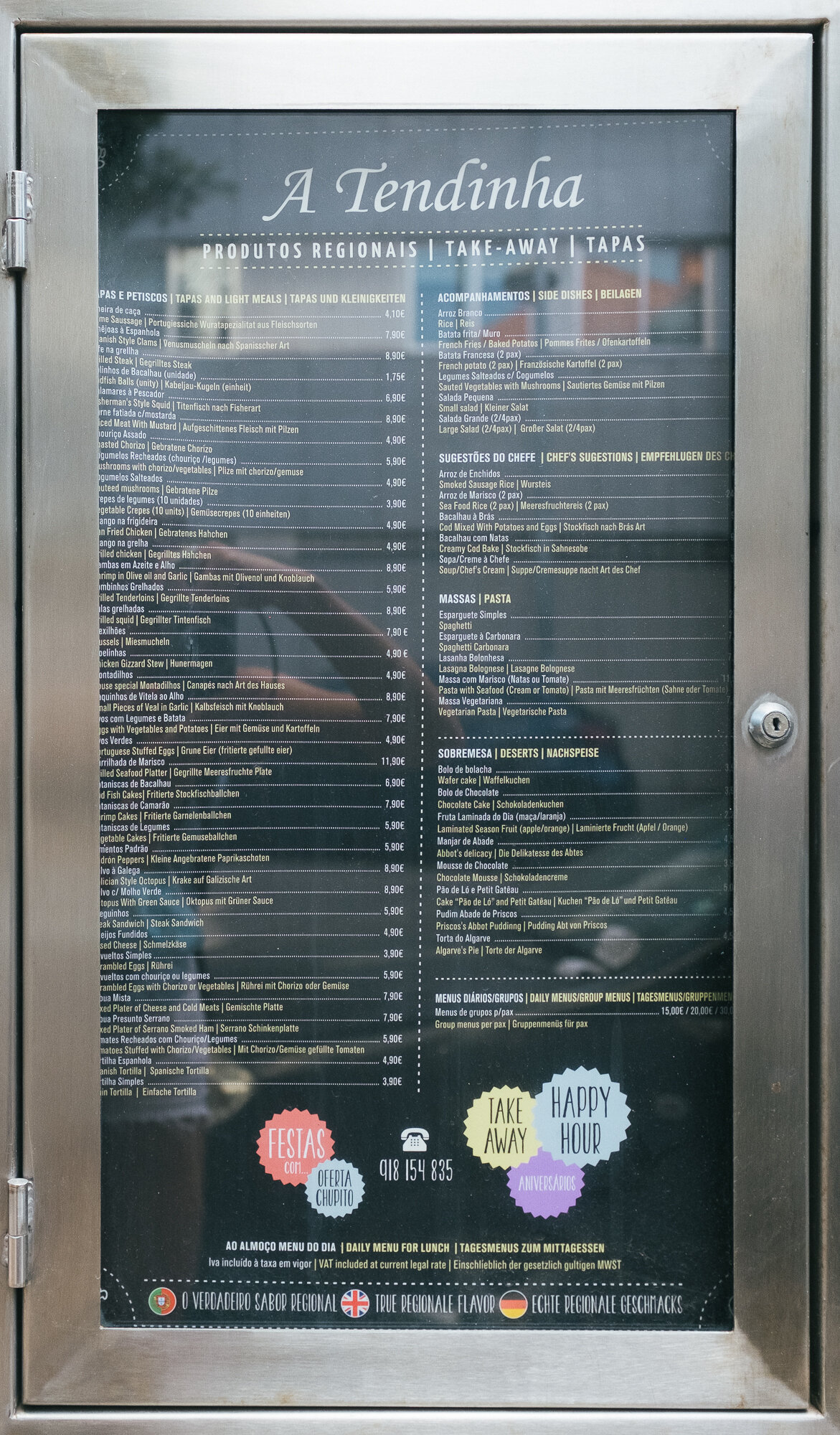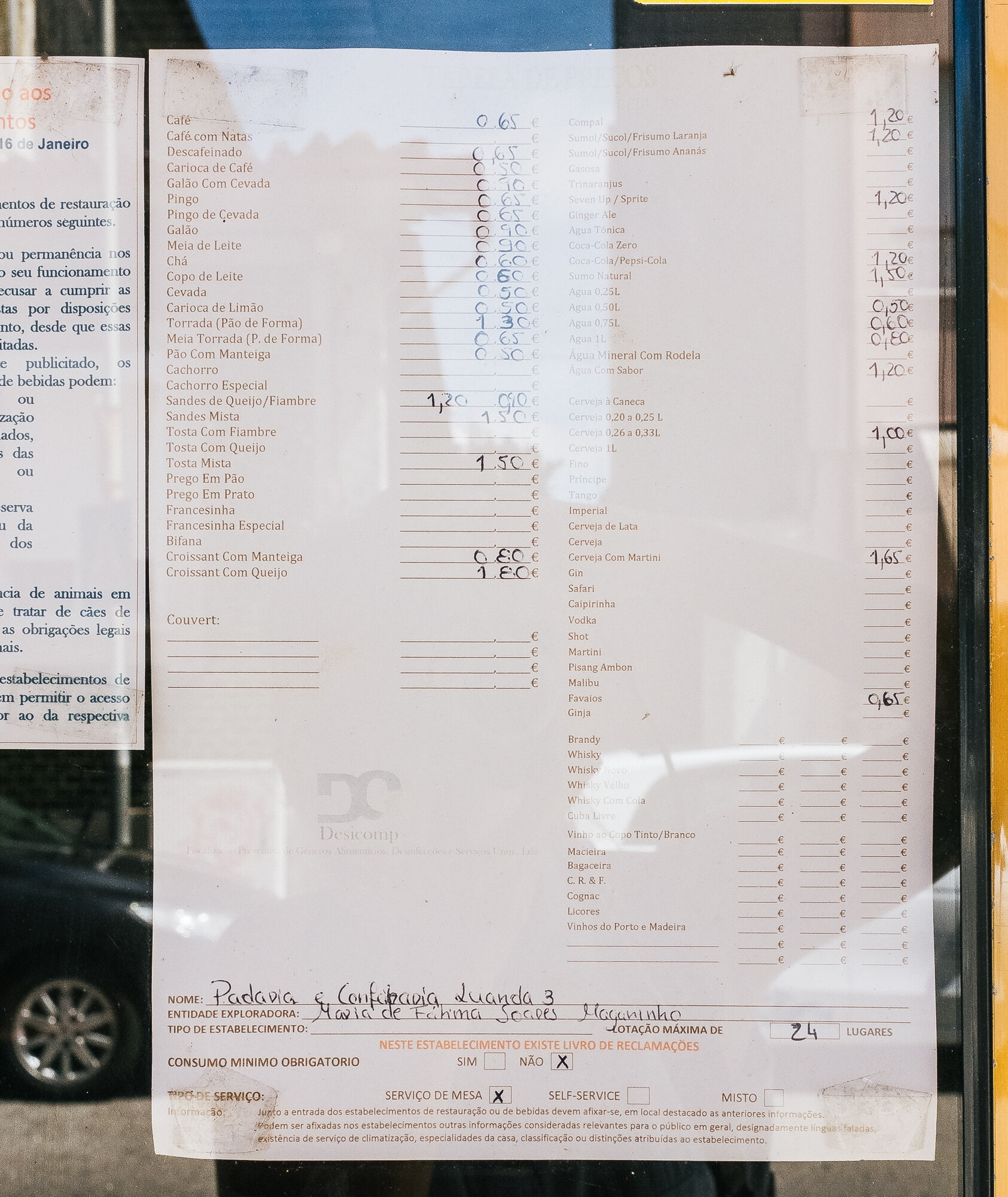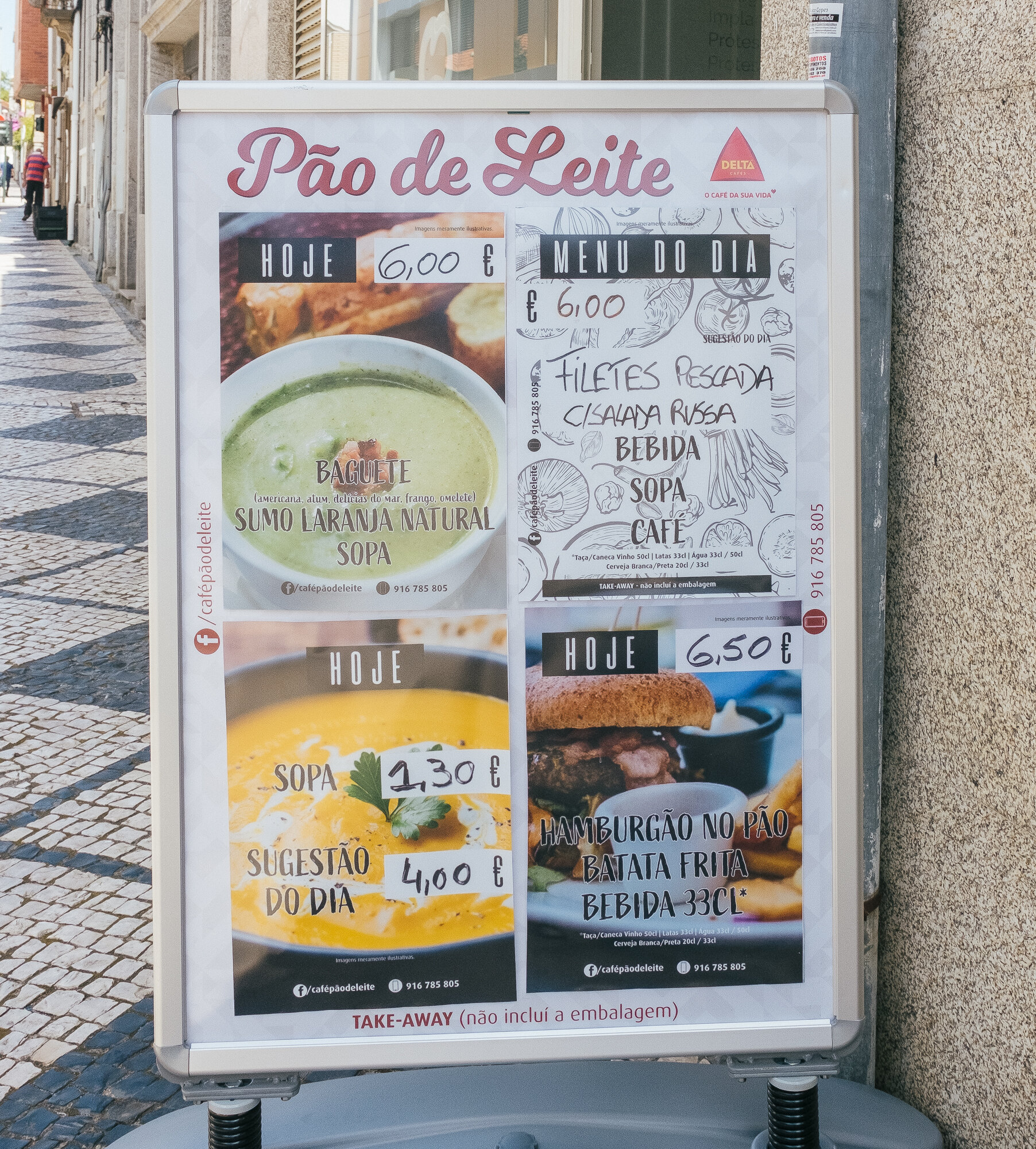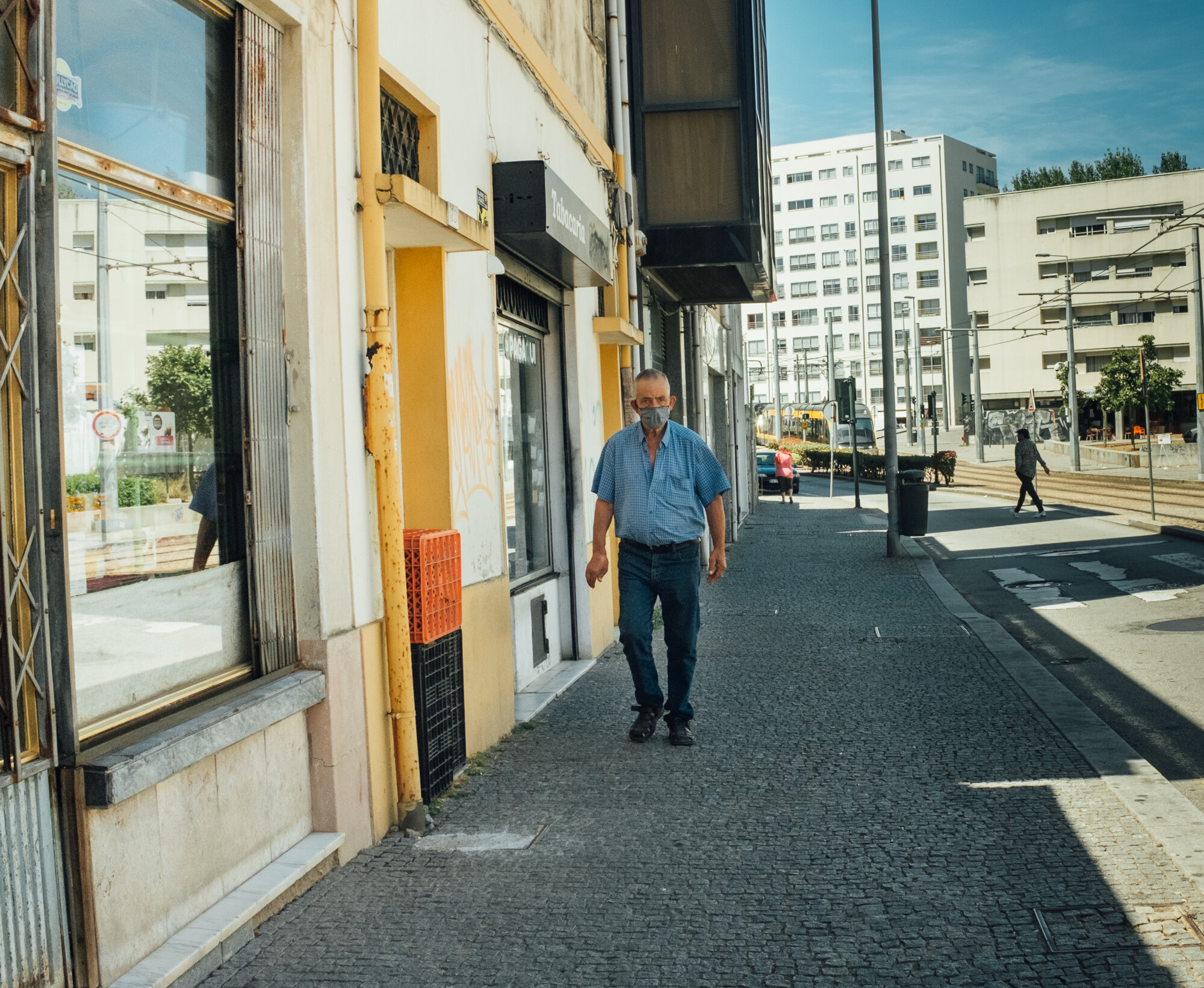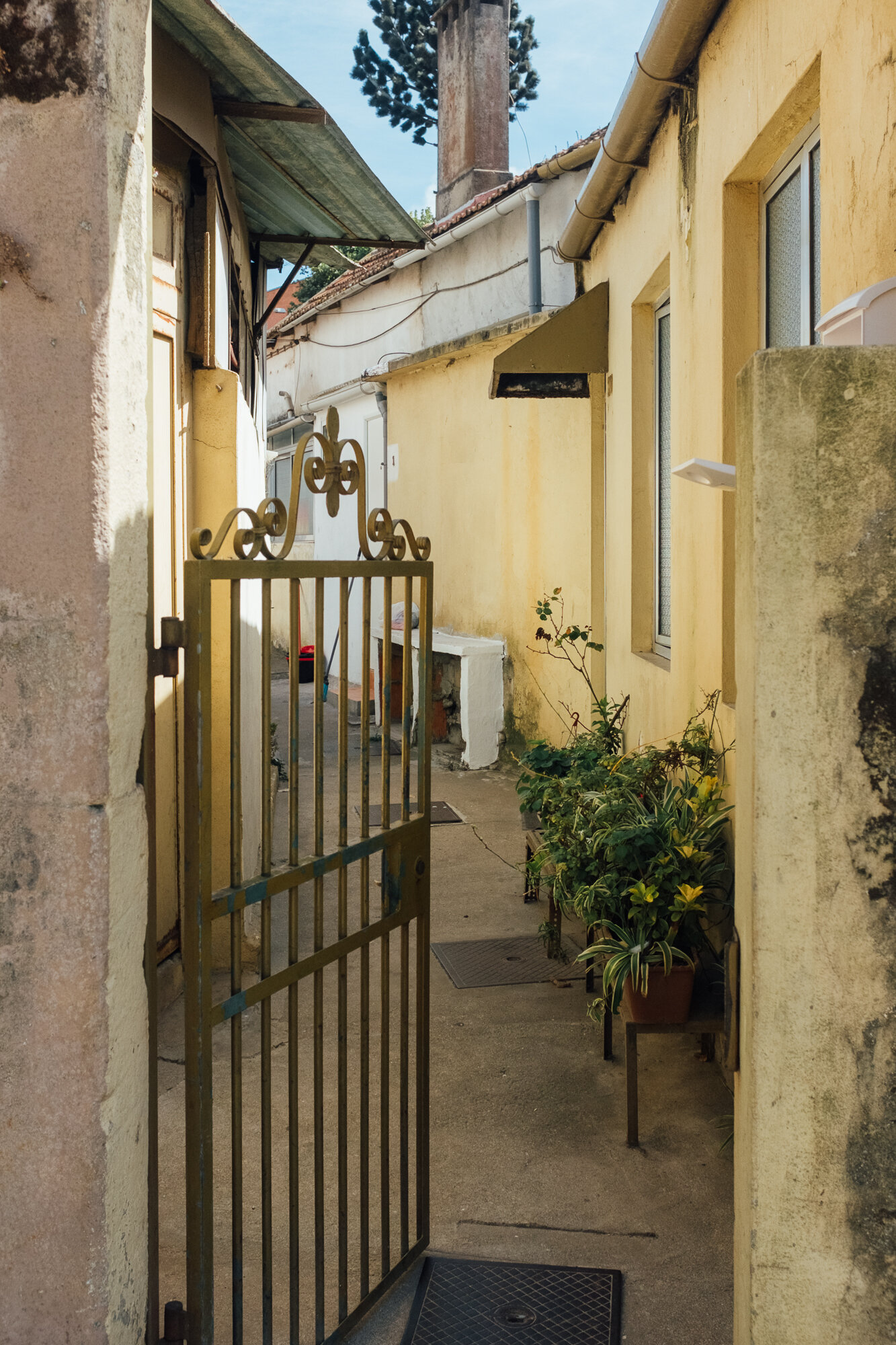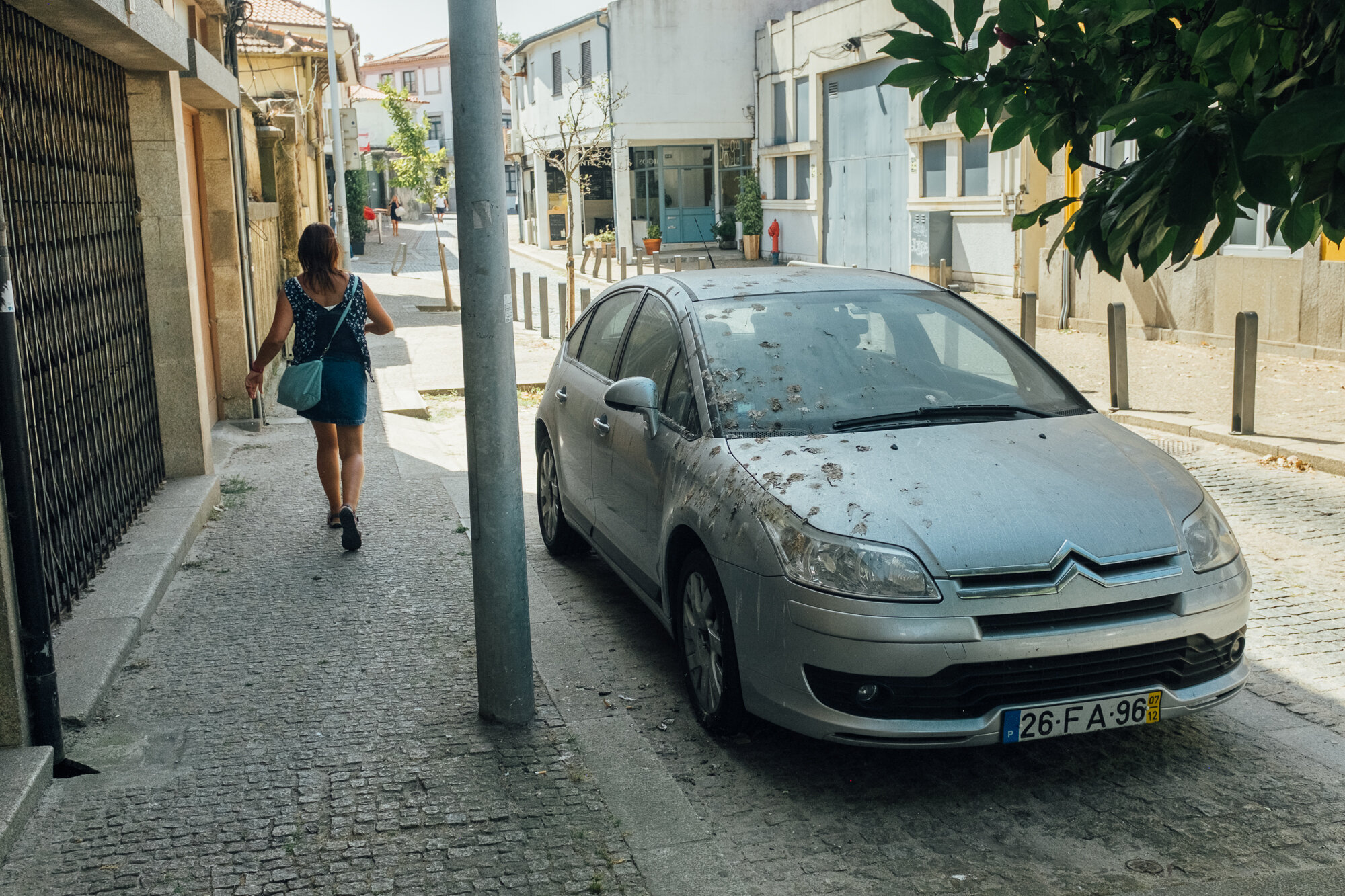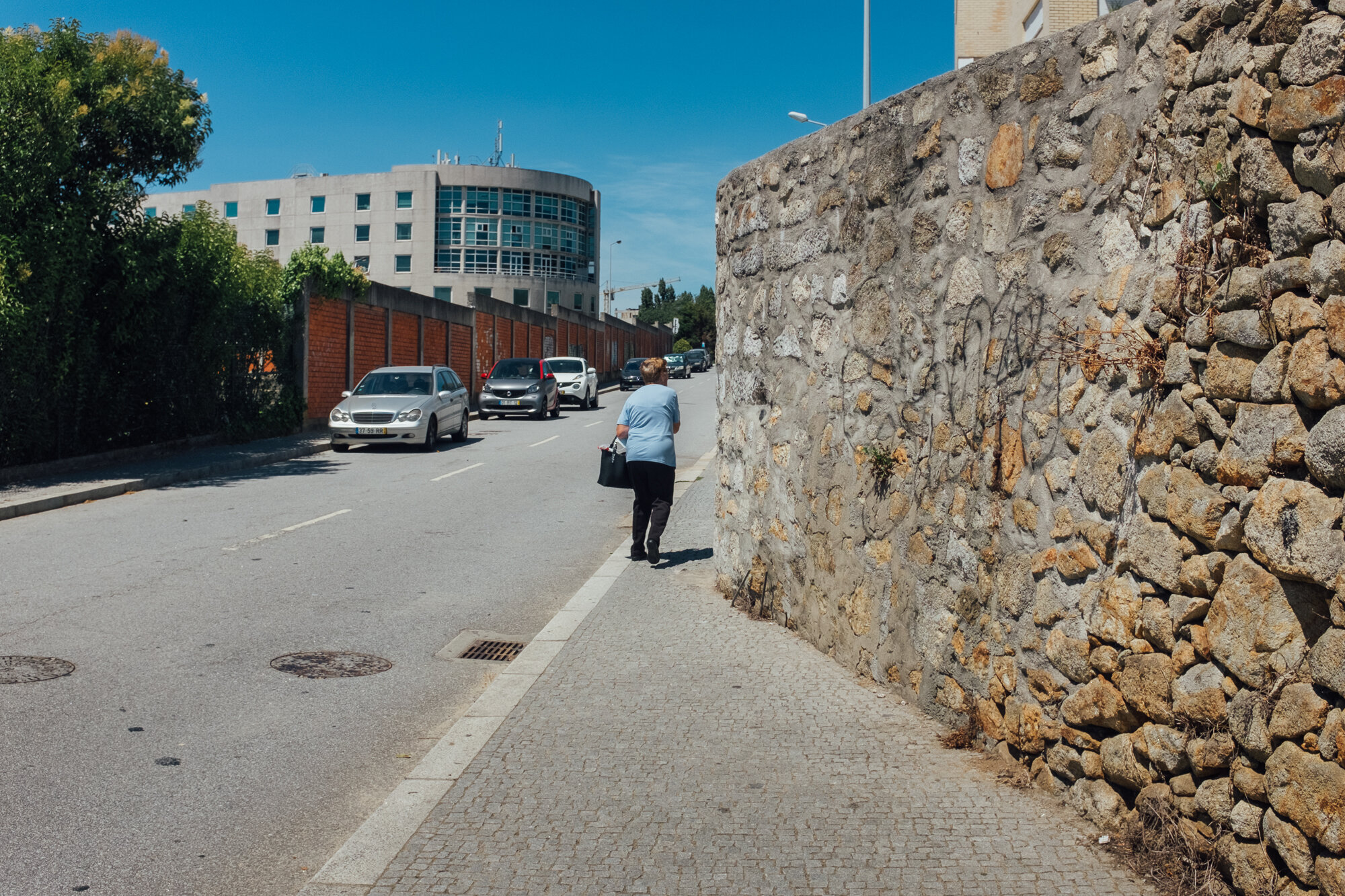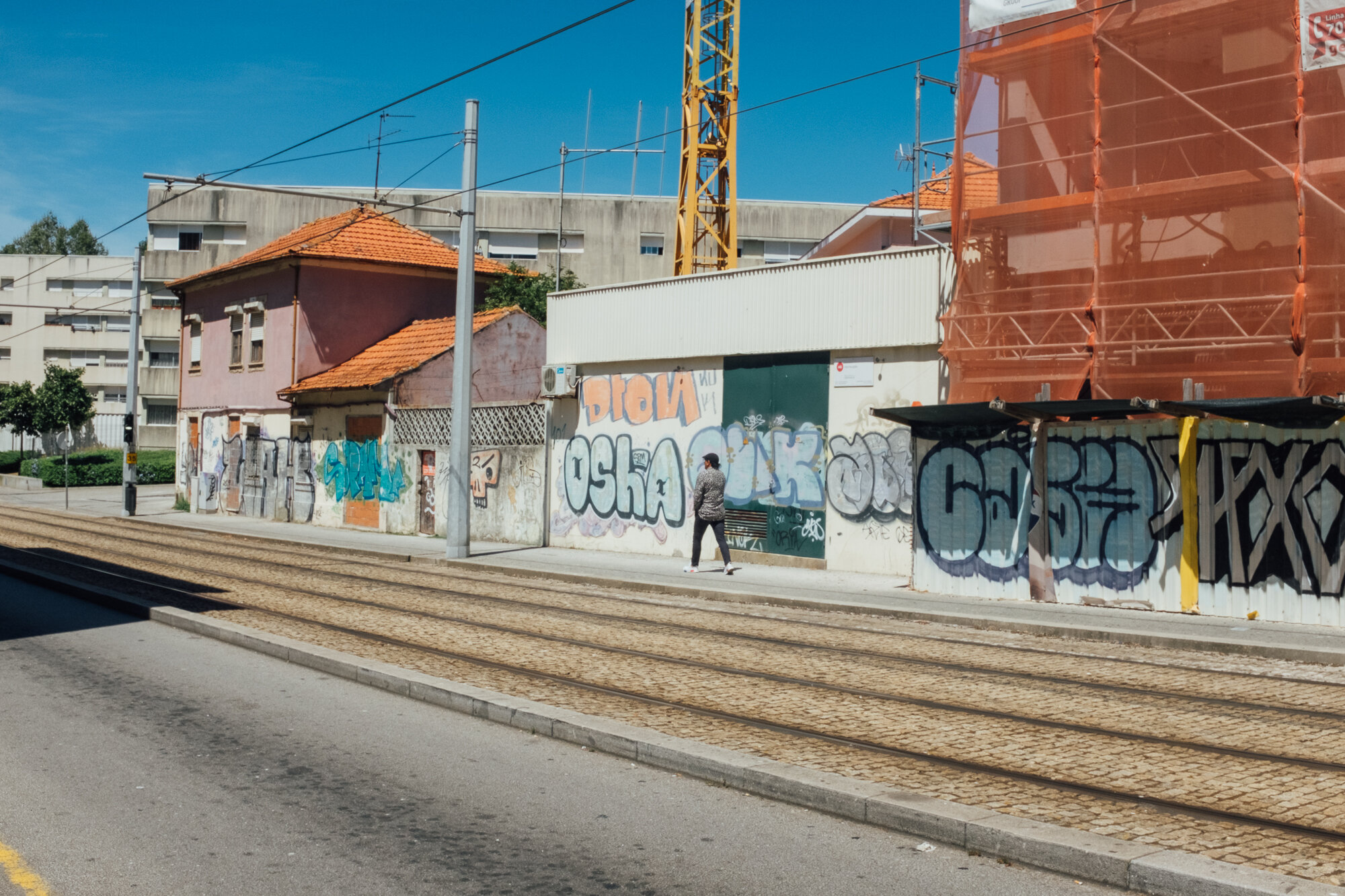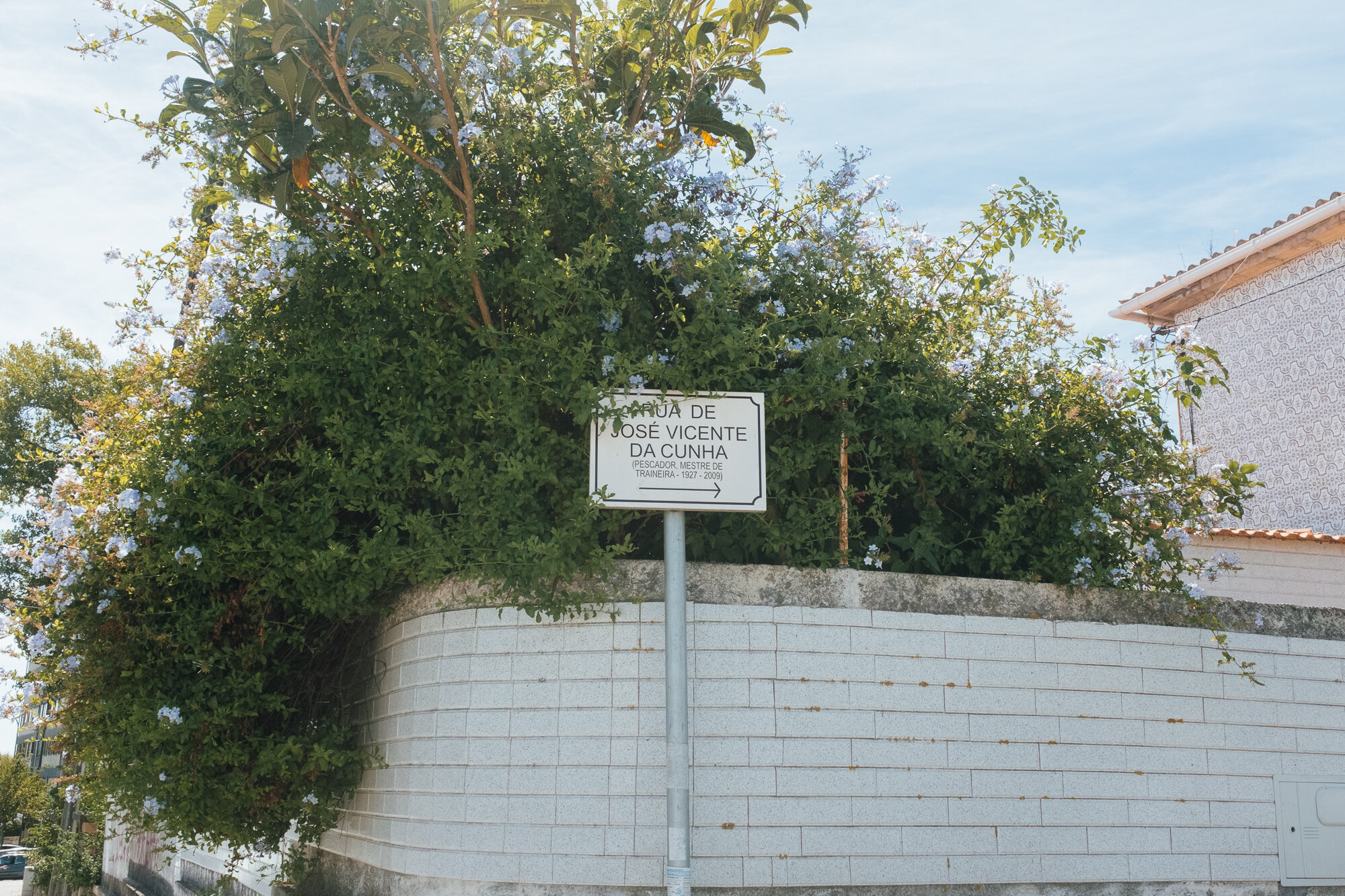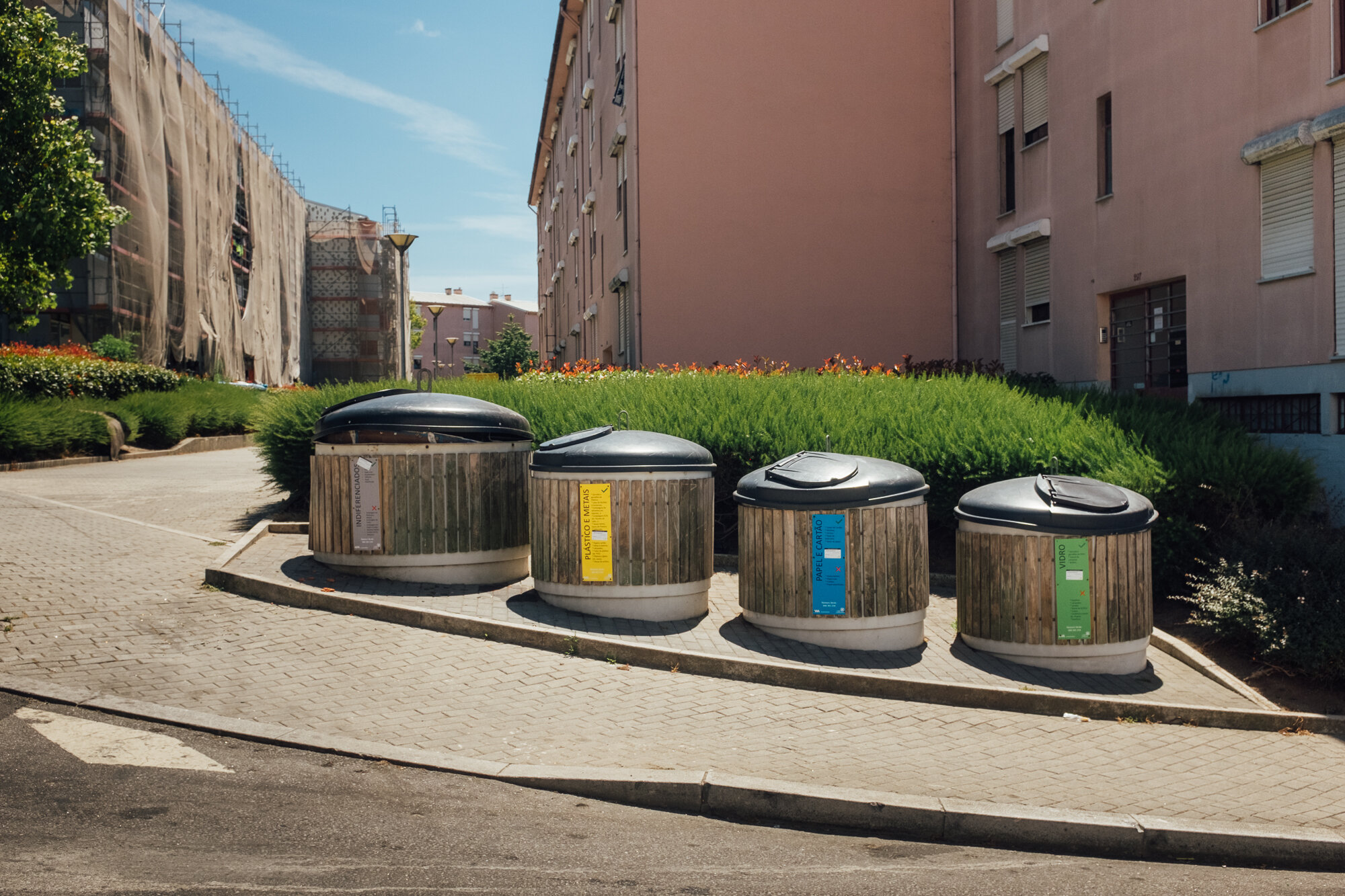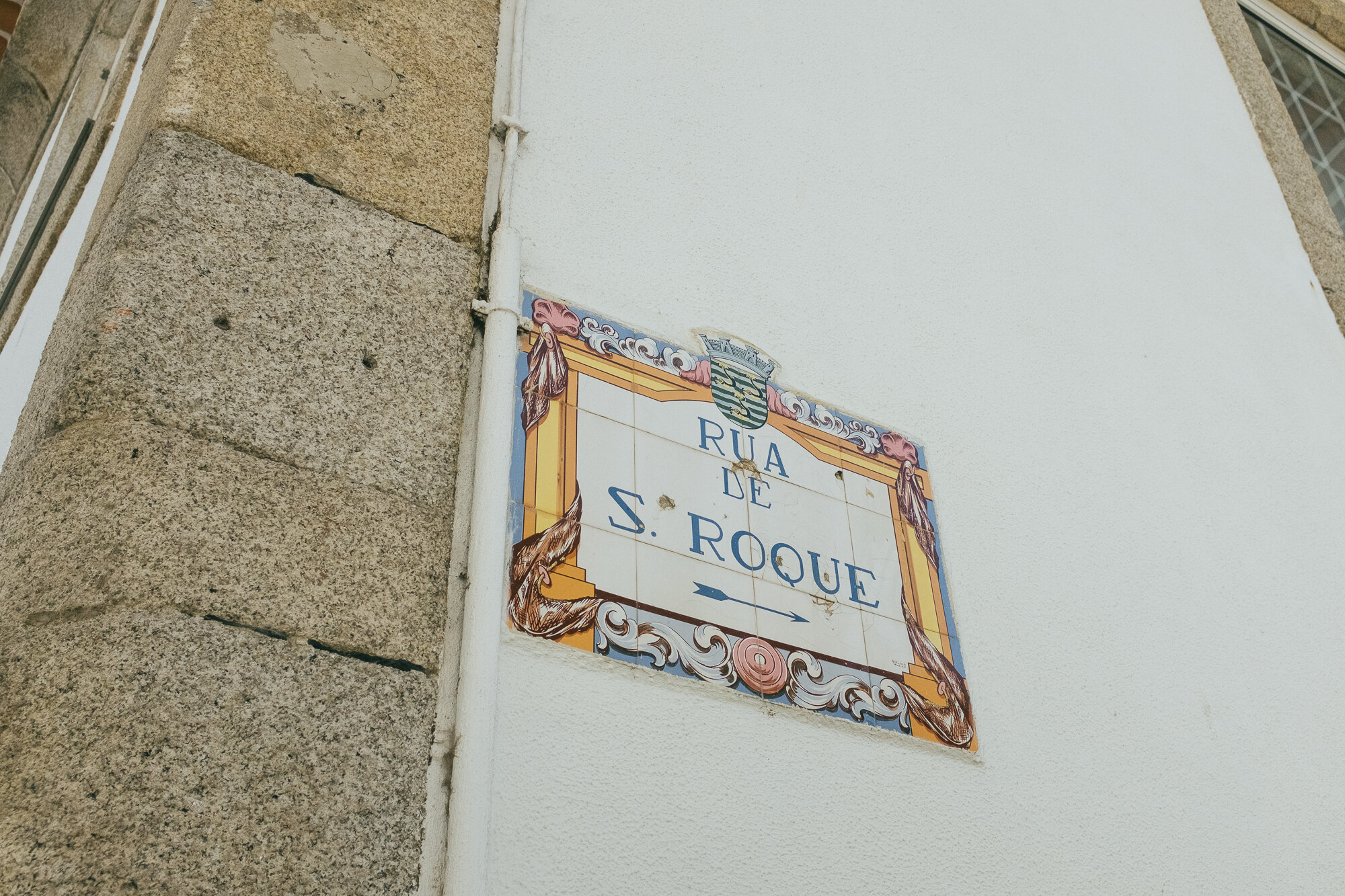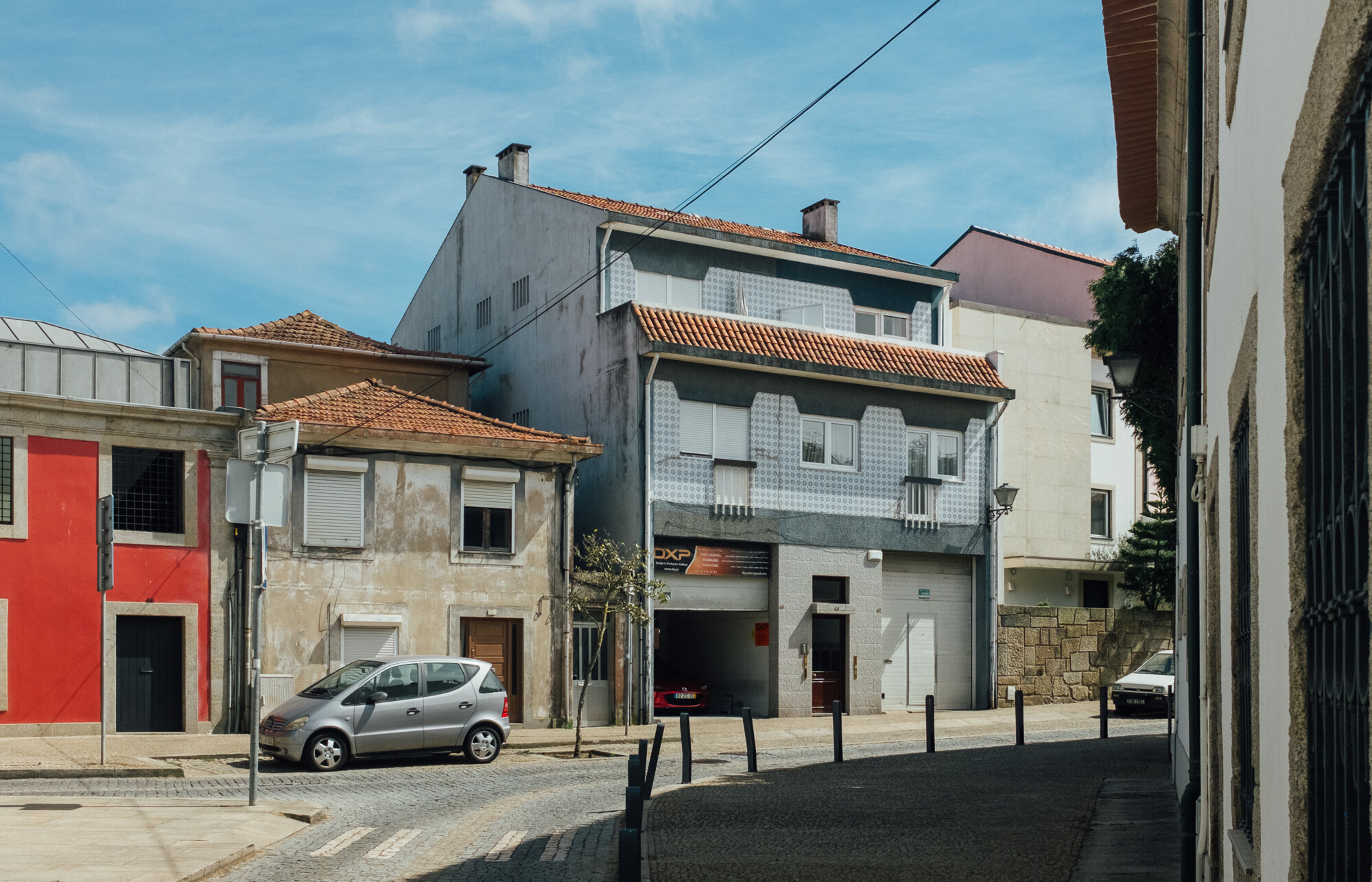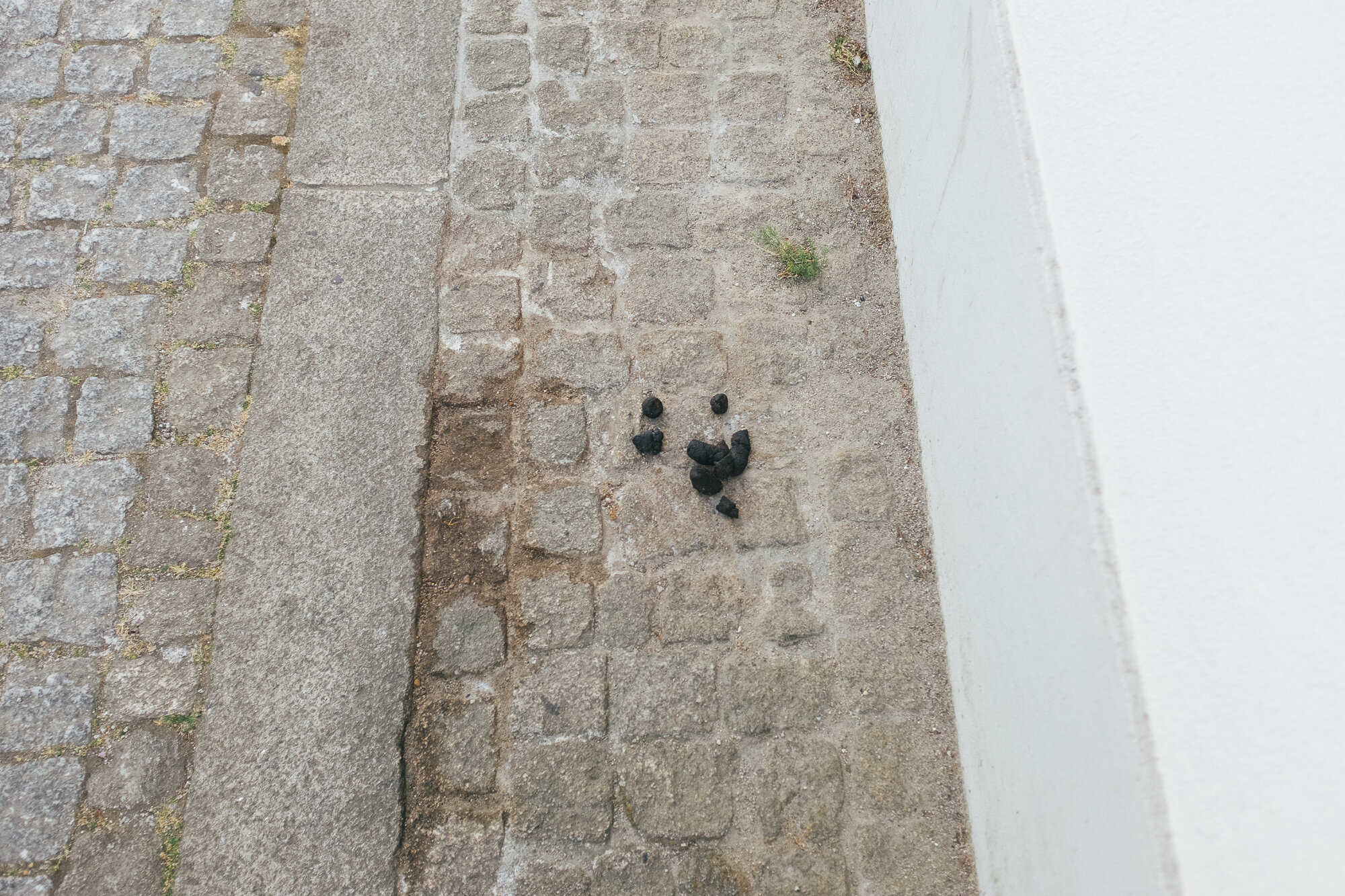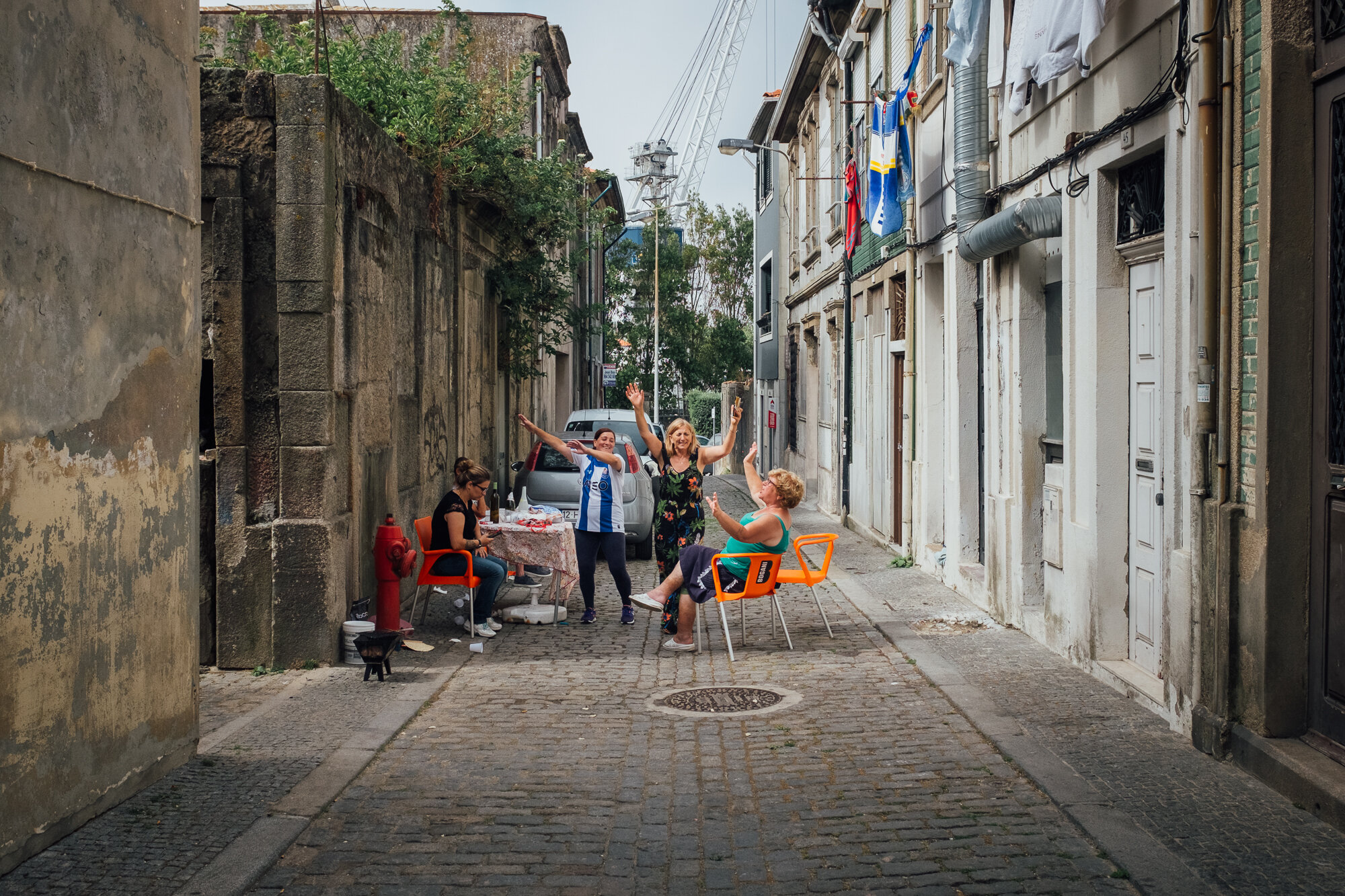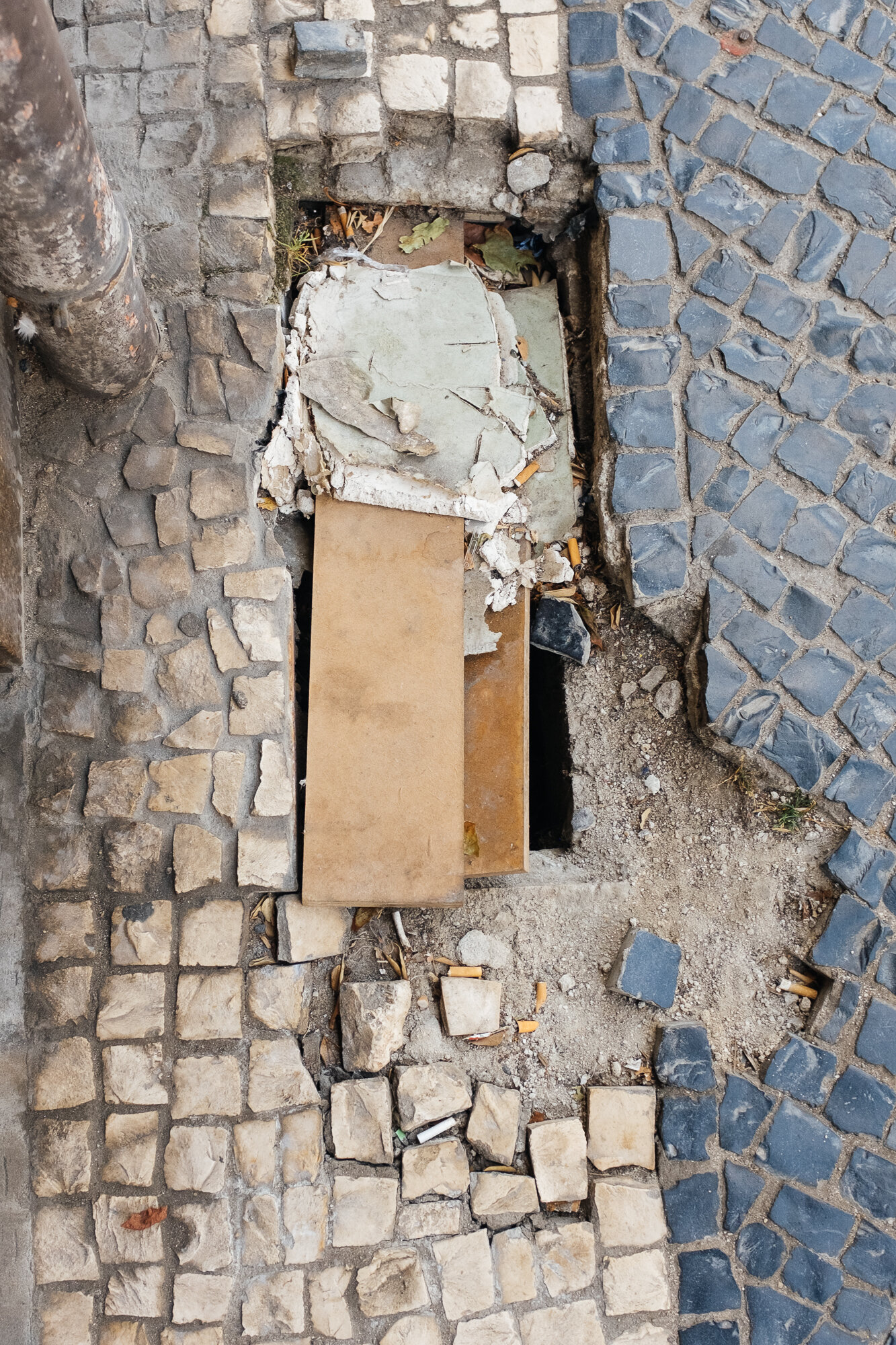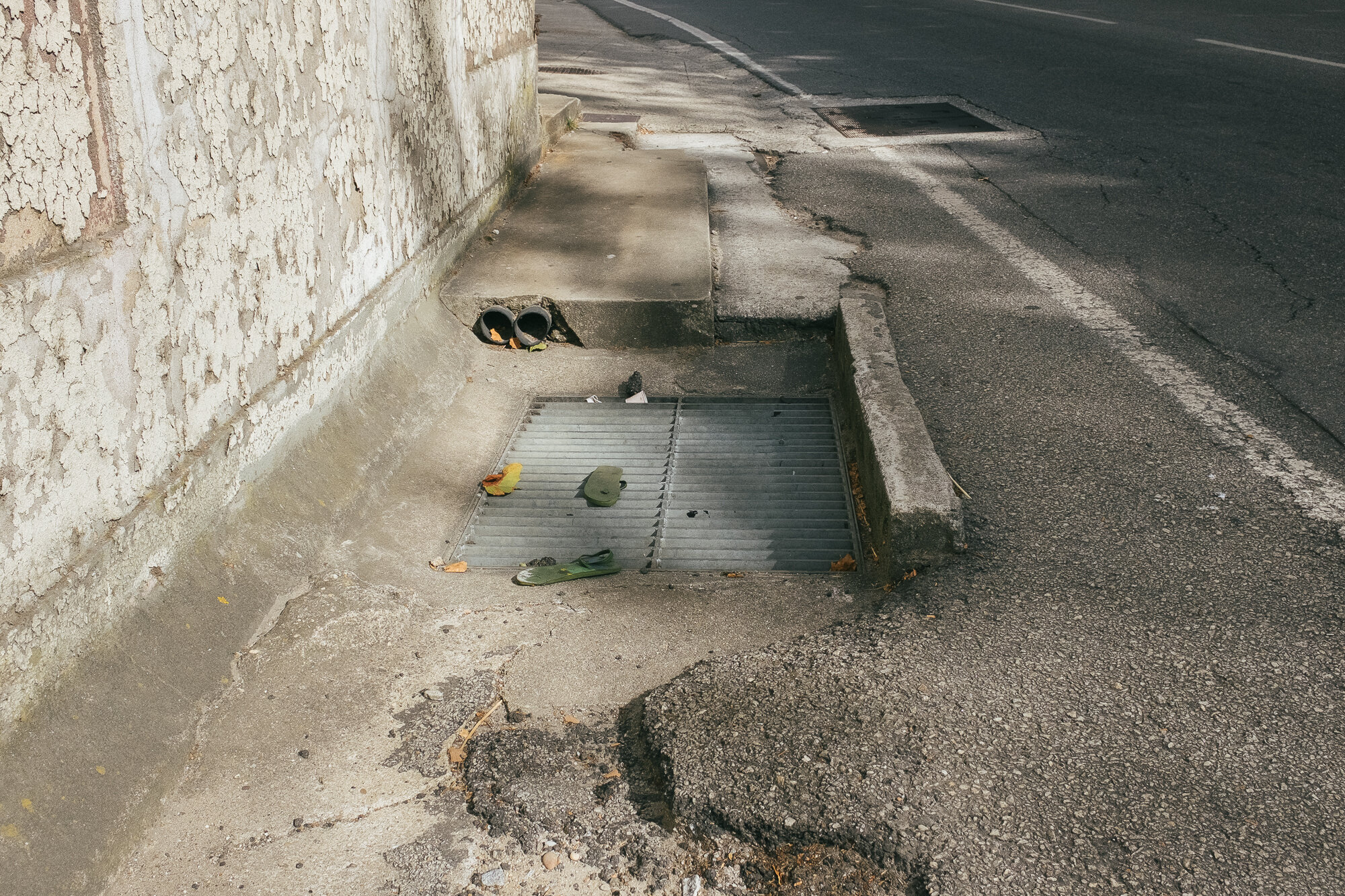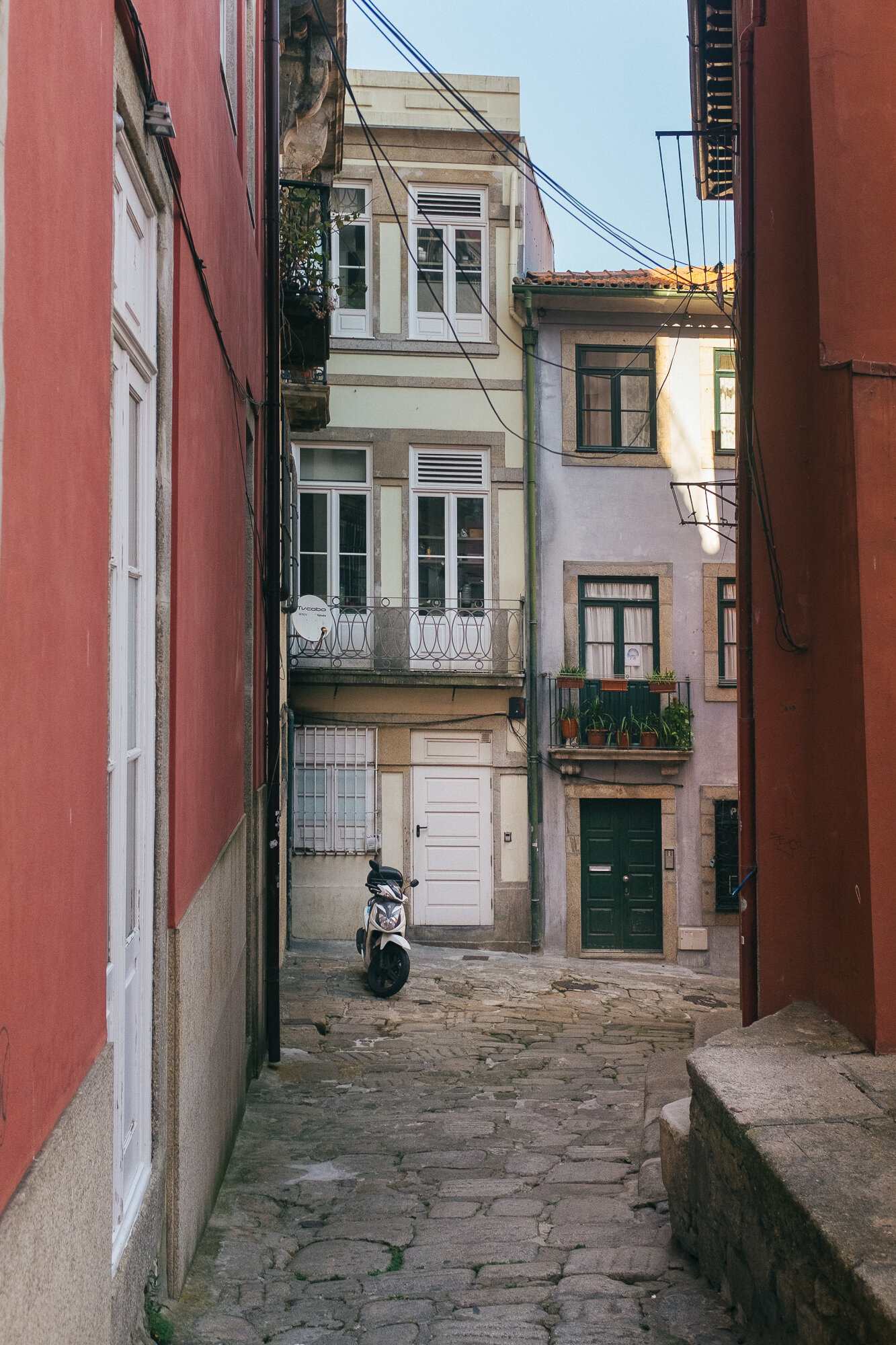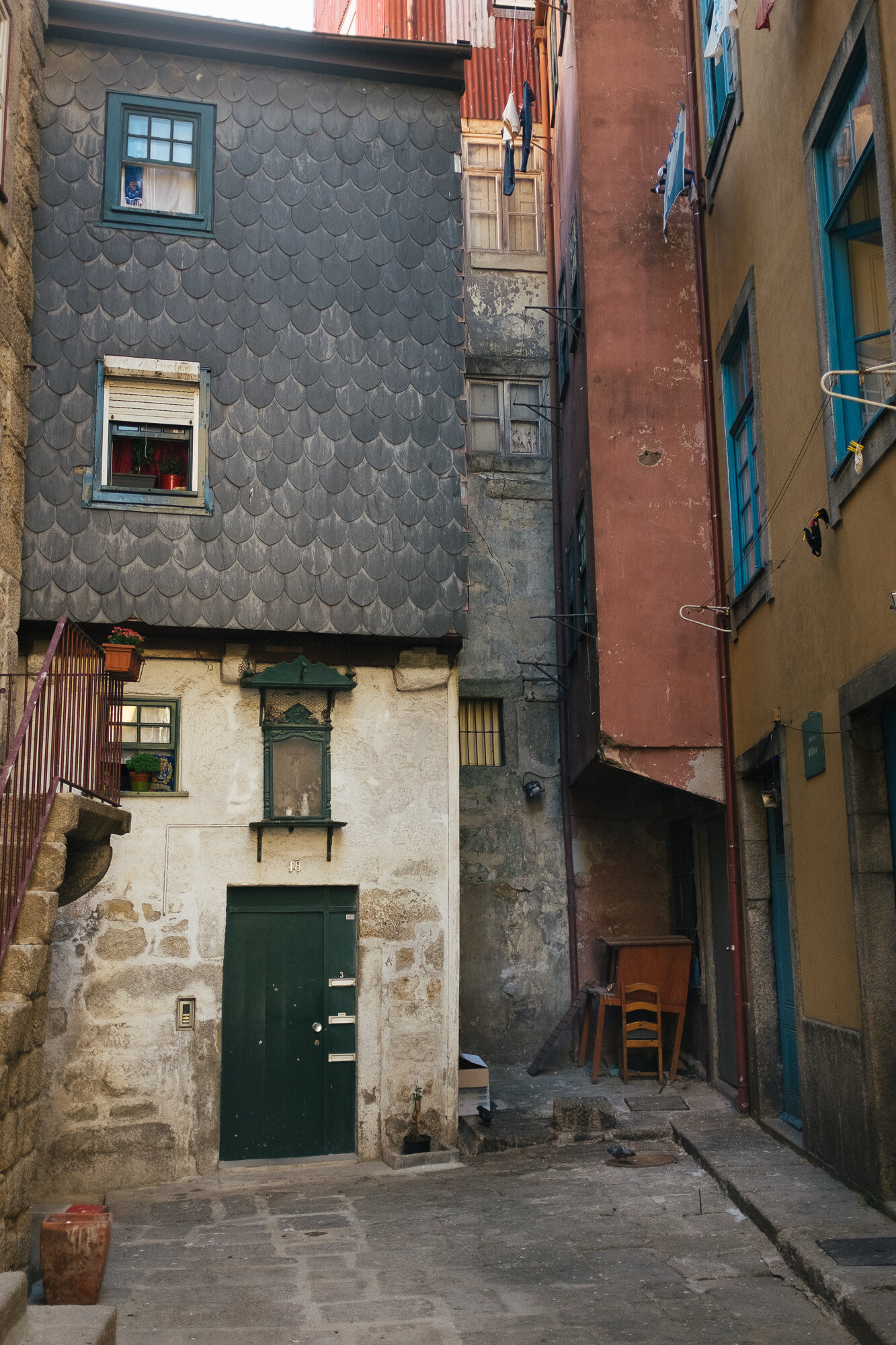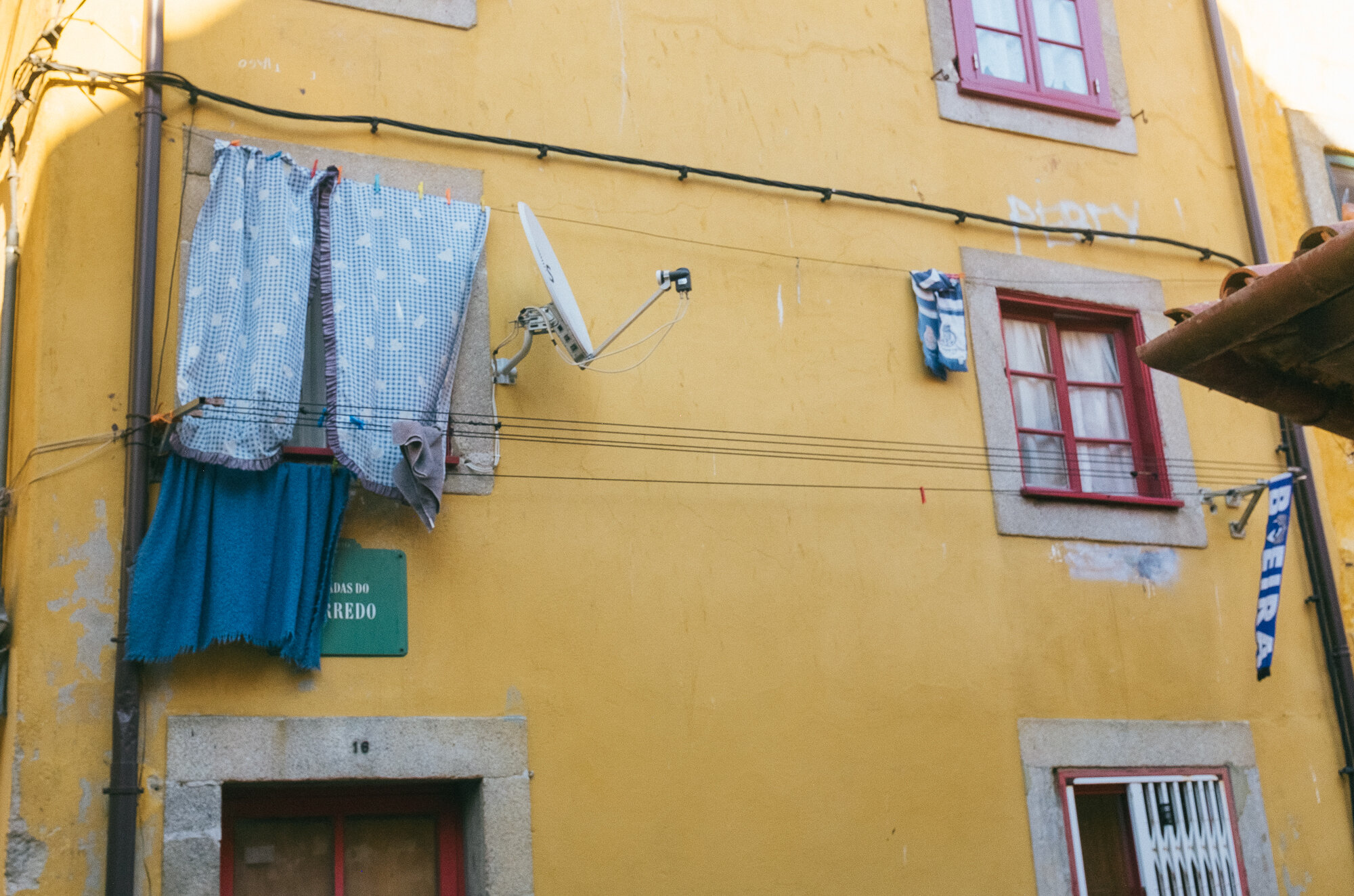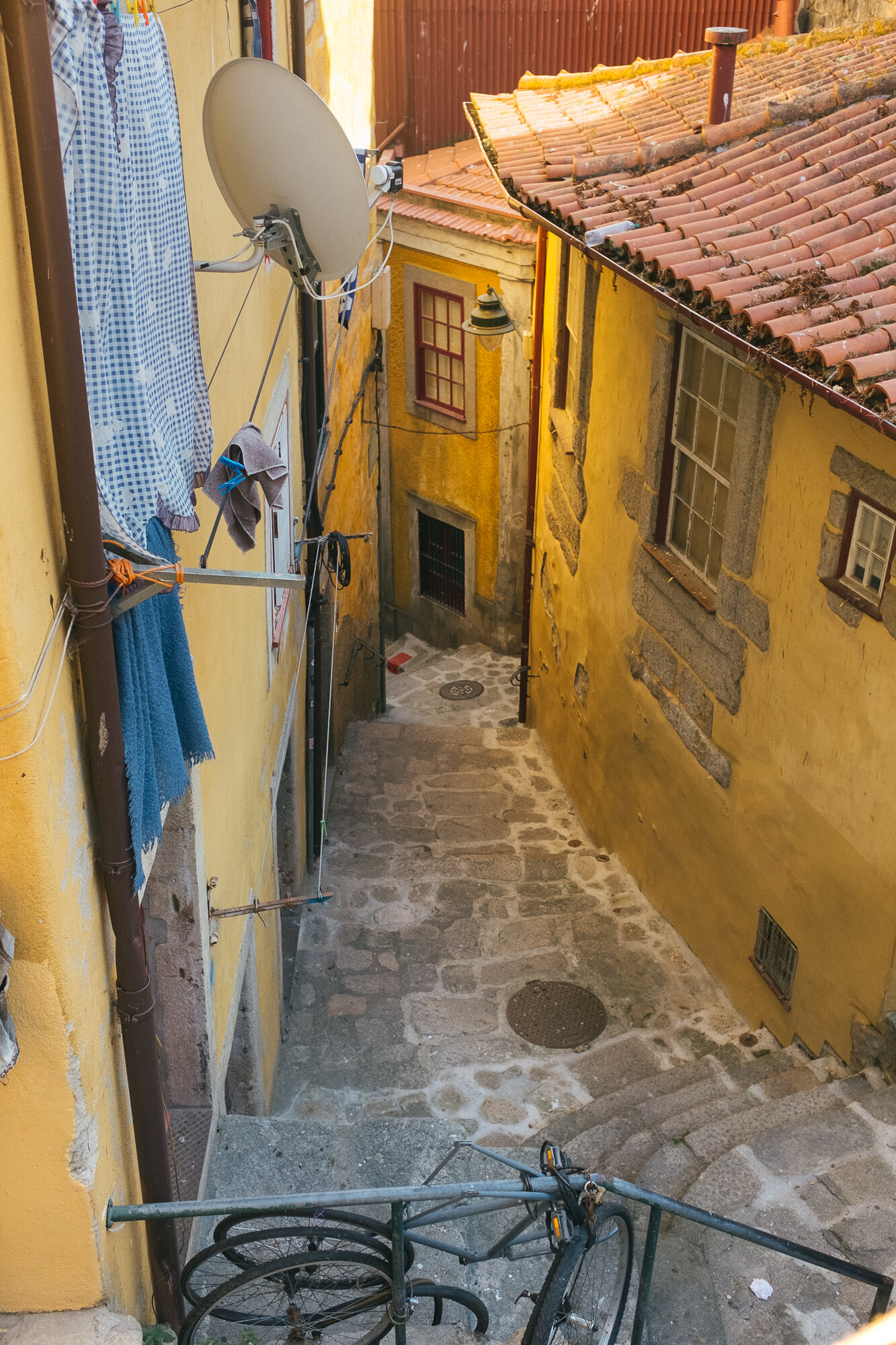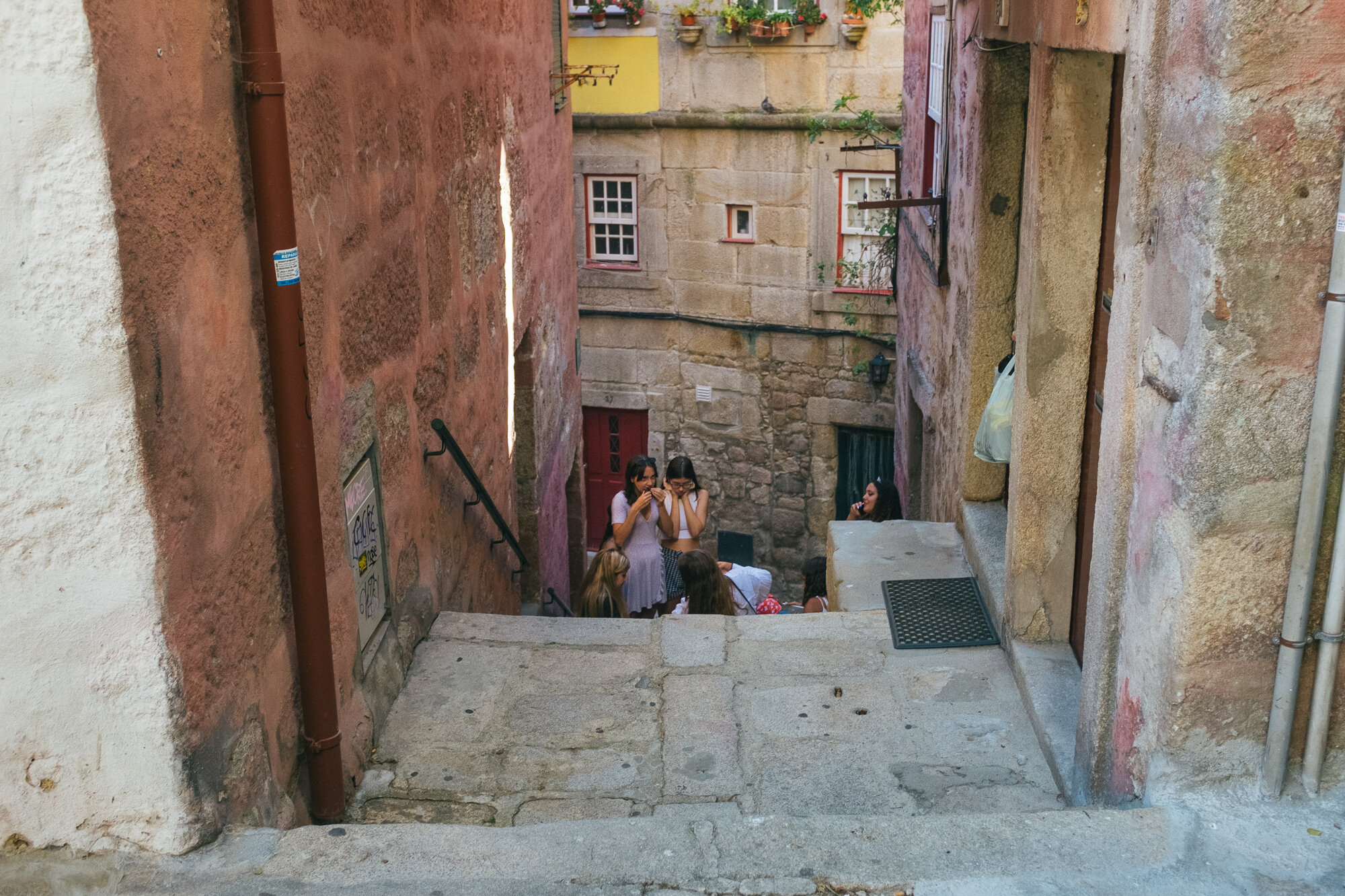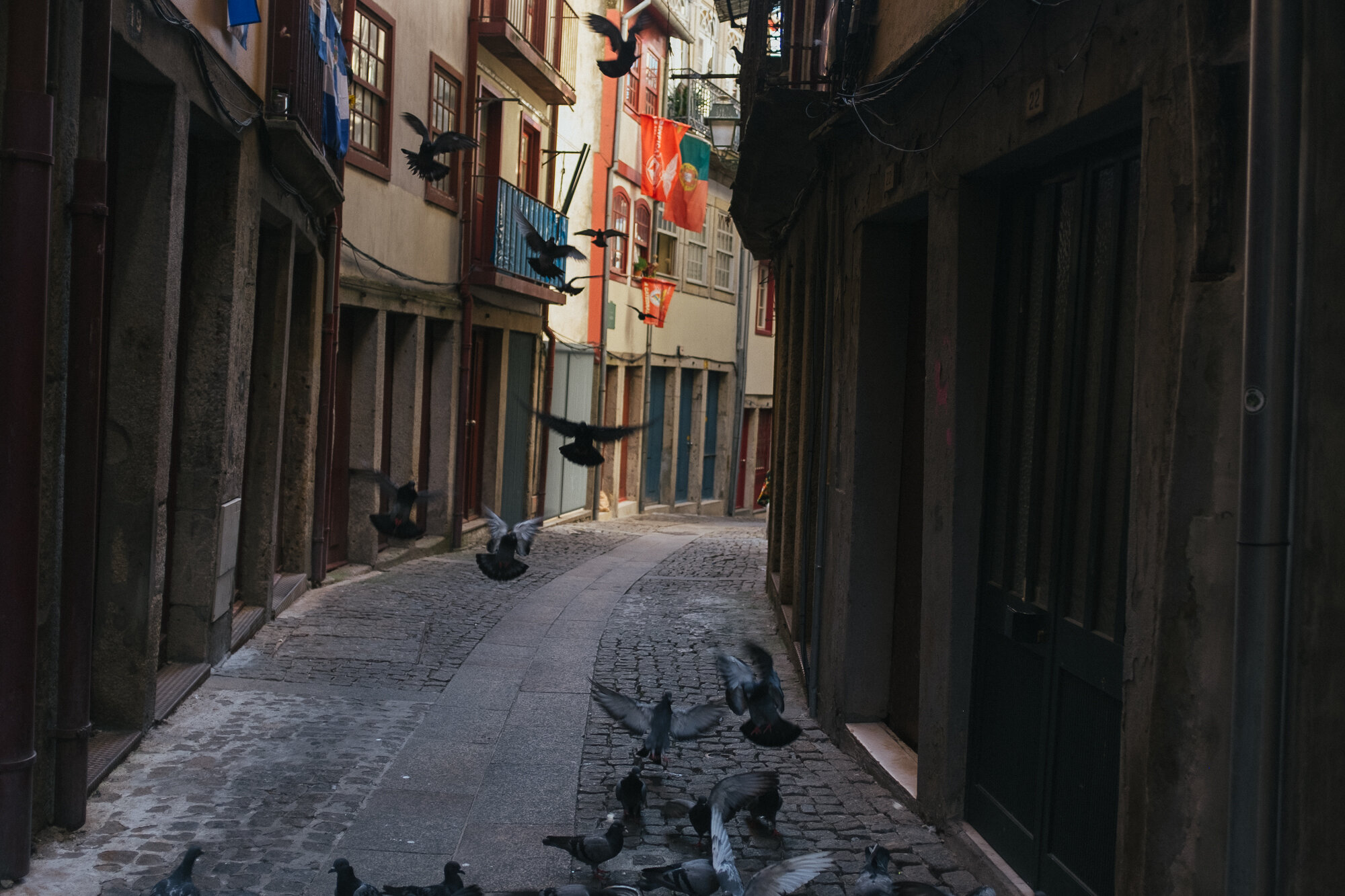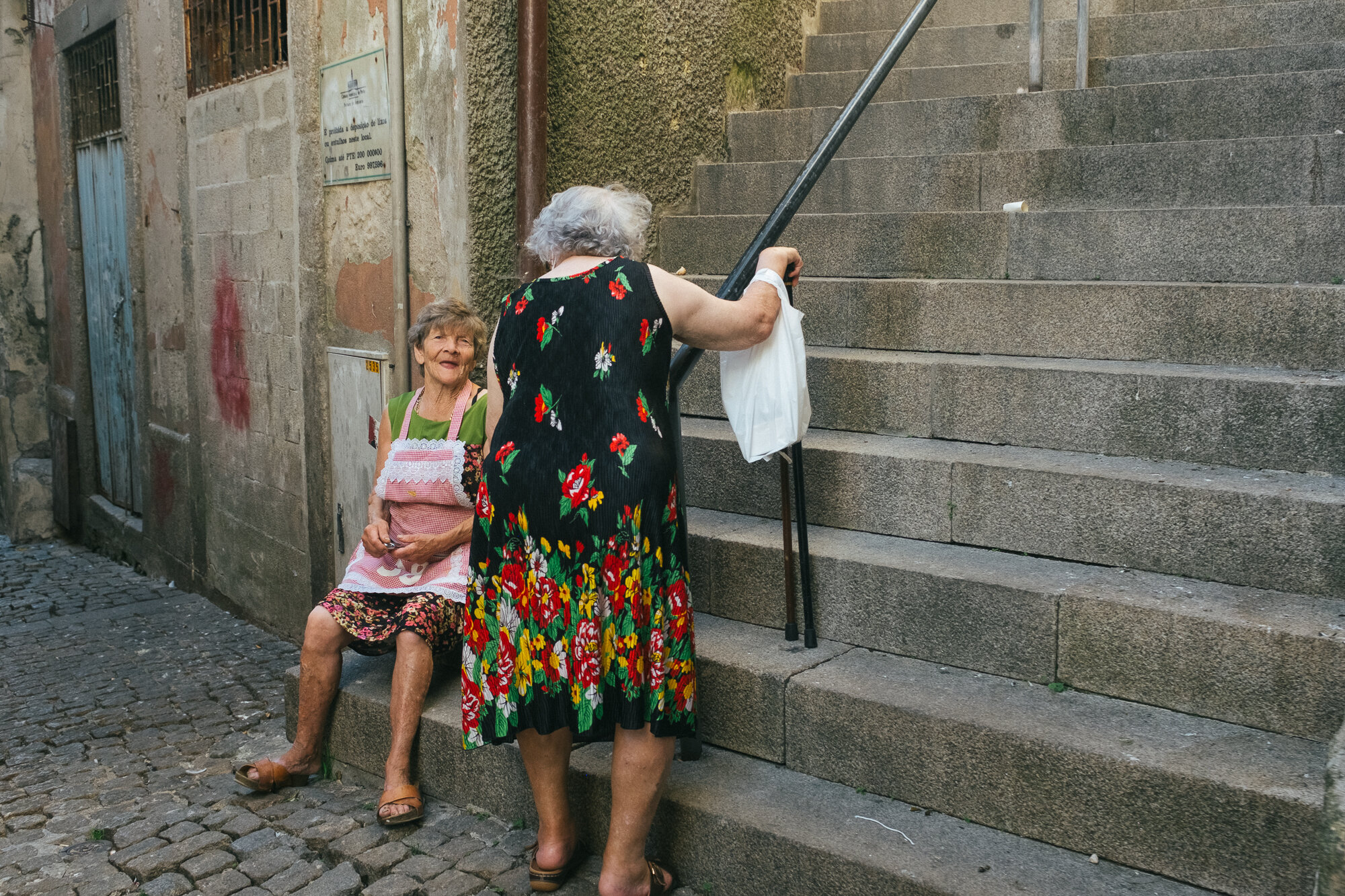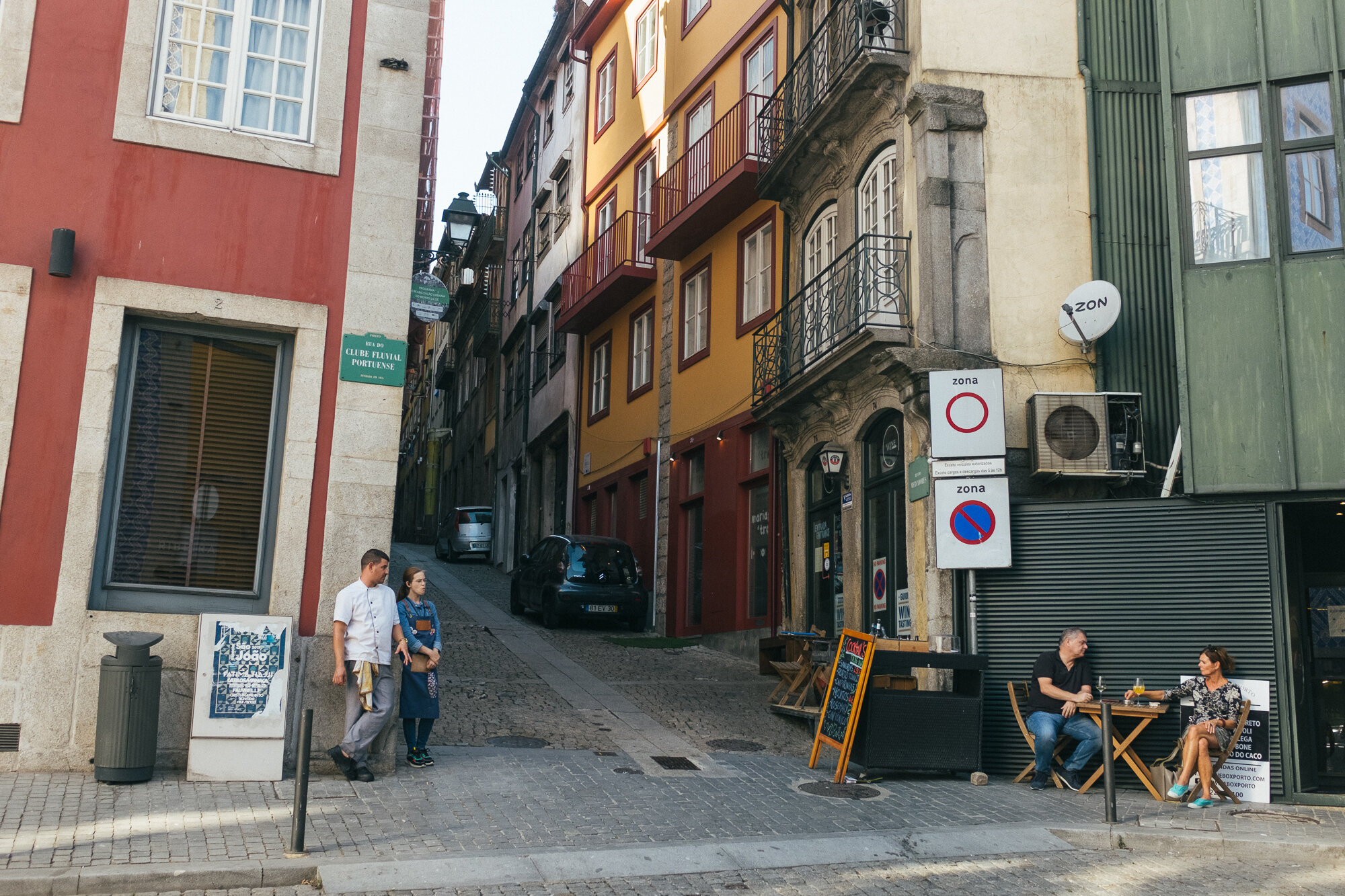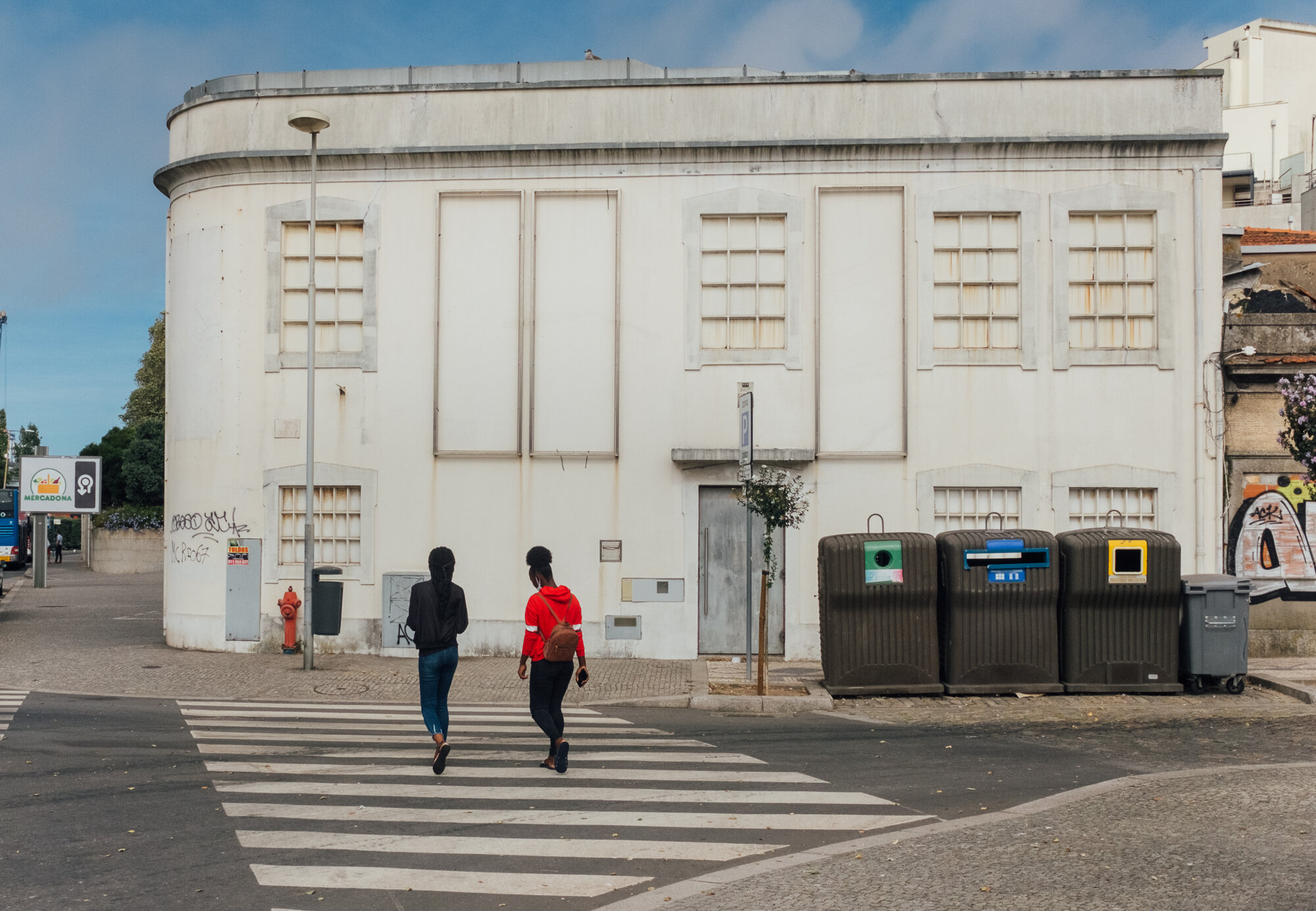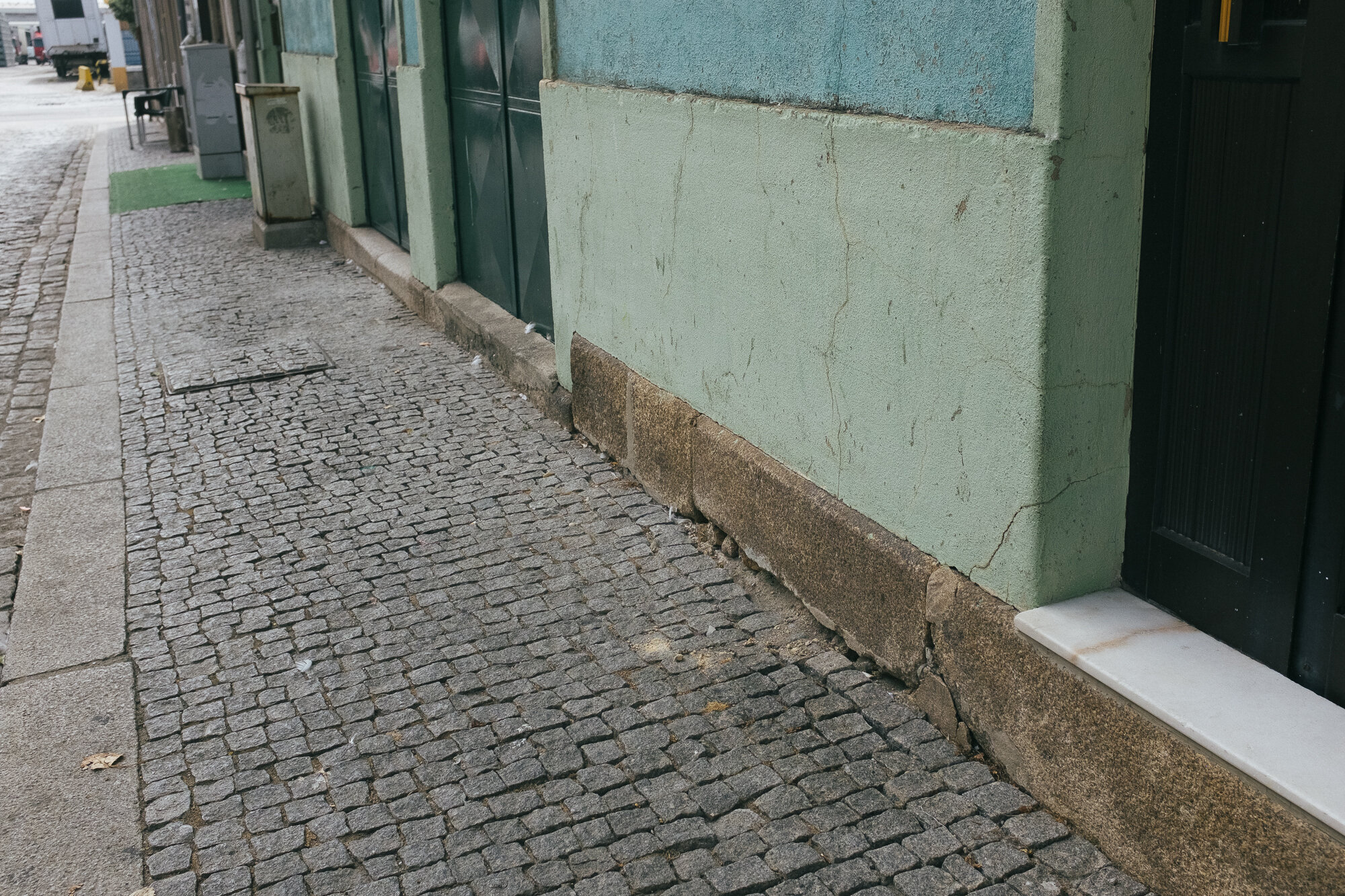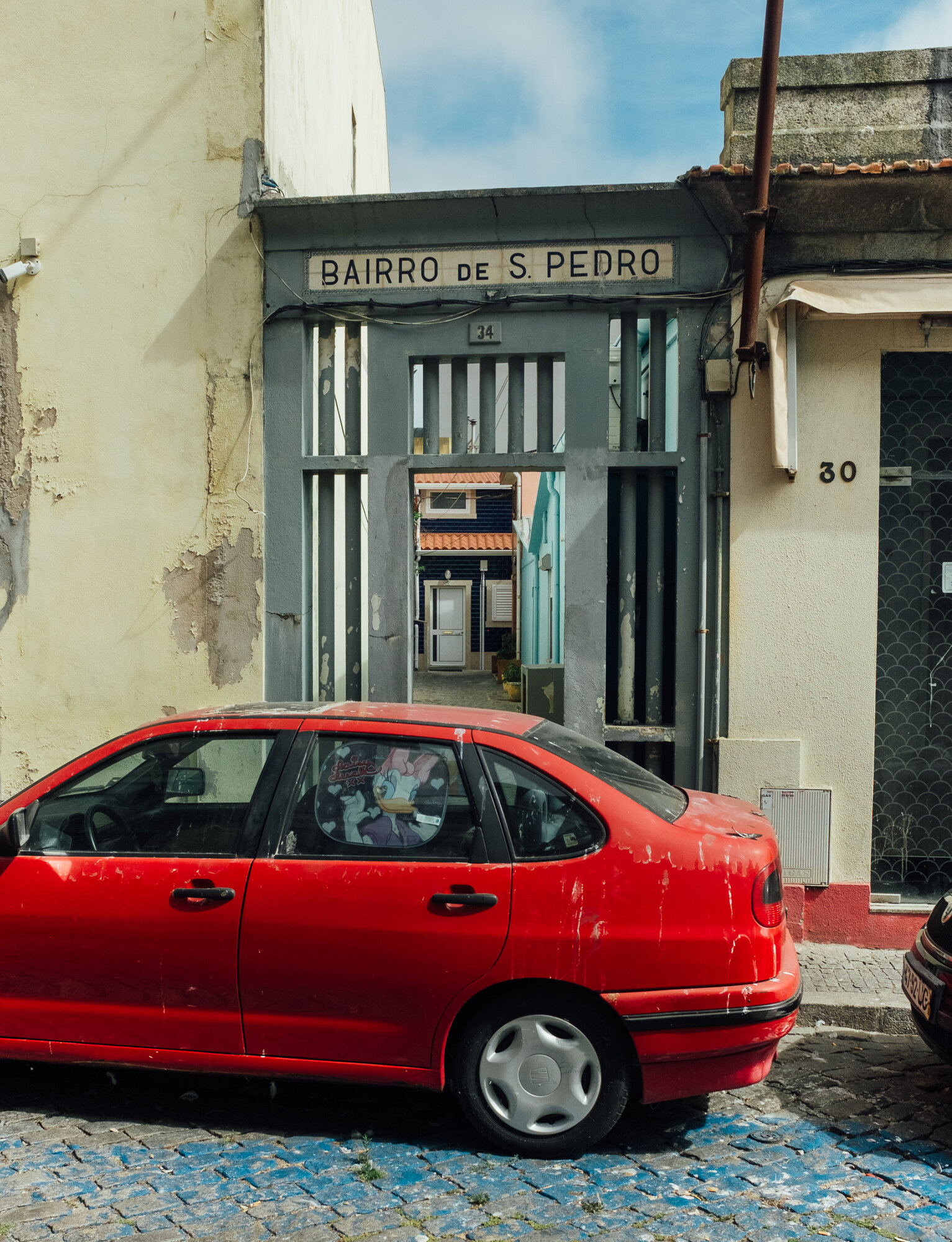Observations
It’s become clear to me over the last almost 5 months of being in Porto that my subconscious assumed that by simply moving abroad I would unlock all these levels of achievement. I thought simply showing up would reward my bravery and things would dreamily fall into place, it would be an upward trajectory. I would tap into my creativity that I’d be struggling to fully realize and I’d stumble into a lower-stress, simpler life, that was also - more fulfilling than back home. And to be honest, in some ways people have treated it that way by applauding me for taking the dive. And to be even more honest, I feel pretty unworthy of that praise and I counter - “ the grass is always greener on the other side.”
You know, it’s been an interesting reconciliation of my fantasy self and real self. I like to think the two paths can meet at times, but this has really tested those assumptions. I’ve really thought of myself as a confident (had to work for it, and still do, but it’s there), hardworking, free-spirited dreamer, who loves loving on people, loves living indulgently and woo’ing myself, and someone fiercely independent and resilient. Every single one of those things I’ve now questioned in a depth I never have before. I’ve been full of mood swings, crippled with new depths of social anxiety, lazy AF and not productive, questioning myself more than ever, not opening up to new people, keeping safe and feeling like a scared brat who just wants familiarity. The super unglamorous reality of my situation.
Luckily, there have been revelations of all these areas I need to grow in - discoveries I’m grateful to have now rather than never at all. I thought those things I listed above (confident, hardworking, etc) were what built up my identity, but who would’ve thunk - they’re entirely flexible. So what is an identity made up of? Is it the people you surround yourself with, the communities you share? The things you consume - specific voices and intentional items? The rituals and routines you carry out? What you do for work? The spaces you create? And then when those things are in flux - what then? Who are you then?
Long story short - I’ve been wading in confusion. I sometimes feel like I can’t tell up from down. Reality from dreaming. THIS has been my dream - to be here. And now that I’m here, I’ve somehow brought myself to be nostalgic about the comforts of home. Its easy to long to feel more rooted, more sure of myself. I sometimes struggle to like this newfound me just yet. But, I know the value of continuing to try.
And I want to take a second to laugh a bit about myself, I’m sure I sound silly. I tend to speak in hyperbole and as much as I’ve denied it, I now know I have a flare for drama. I think “I can’t do this” “There’s something wrong with me for not being able to do this,” “I’m not doing life as a whole right, I’m way behind.” All these extreme thoughts. And I think some people are better at managing these reflexive thoughts than others and not jumping to panic so quickly. But I can be a worrier.
And that kind of circles me back to one of my lessons so far:
“Embrace the mess. ”
I like to plan - I planned I would come to Portugal and start freelancing after “a few weeks of getting settled.” Covid kinda scrambled things up. I also kinda did. Basically, that did NOT happen - which is ok! I’m in 5 months and don’t have solid work prospects and have instead been sitting in a daze letting my hair grow out and gripping the gravitational pull of the ground with my toes. Hunkering low to the earth so that I don’t get swept away. Feeling crippled by fear and overwhelm as I feel like the world (in particular the US) is imploding and I can’t anchor myself with any familiar comforts. And then here I am now, feeling like I kind of am becoming lucid again (hopefully) and MONTHS have passed.
My wish for former-me would be to show up, loosen up - and try regardless of how well prepared you are! Life can be a shit show, every single person is struggling with their own assortment of hurdles. Some people have had the life circumstances, the support, the - whatever it may be - to be extra resilient to disappointments, heartaches, tragedies. They just dust off when things go awry and keep going. I, along with I imagine others, sometimes make the decision to give up before I even show up - without even knowing it. I think some of it goes back to perfectionism and wanting things to be a specific way, or not wanting it at all. Extreme thinking. So, I need to embrace the gray area, let things breathe and wax and wane and evolve - and to keep going regardless. To not hold anything too tightly. Trust myself to show up and do my best and that my best is worth being proud of. I don’t always need to prepare to be able to do. Don’t become stagnant in fear, you are capable of so much more than you can comprehend, so don’t sell yourself short.
There can be something so liberating about being in the midst of a garbage fire and just wanting to laugh. So much of life is about story creating and telling. Those moments are FANTASTIC stories.
Writing this post is such an exercise for me in embracing the mess. “I’m not smart enough” “I don’t have any coherent thoughts to share, nothing impressive or interesting.” But I do feel I’m not alone, so someone can relate, it’s worth sharing and connecting.
And while I harbor so much guilt around not doing as much as I wanted to so far, conversations I’ve had with friends have made me believe that covid is a very unique time for tender hearts and empaths who are heavily influenced by the energy around them. I kind of believe it’s not a coincidence that a lot of folks who happen to have a lot of time on their hands aren’t doing all those things that have been lingering on their checklists. It’s just not THE time we need for those things. This is a time to re-center, to remember what it’s like to be bored. To slow down enough that you can indulge in Sunday pleasures on the daily like crosswords and painting your toenails, sitting with your thoughts enough to actually come to conclusions that aren’t under a pressure cooker.
“It’s ok to not be productive and worry about the future of the world in the midst of Covid.”
Having this time away from productivity has made it so apparent to me how much anxiety impacts our thoughts. It can make you lose your train of thought in the middle of a conversation because the meta-conversation your having interjects to say “you sound kinda stupid right now” or applies the pressure to brainstorm some interesting revelation. And THEN, once you have an operating awareness of your anxiety you get anxiety about it striking, so you preemptively go blank and just give some nods of approval. This circles back to embrace the mess. It’s ok to forget your train of thought and fumble in conversation, just show up and try.
I think people often confuse someone who is feeling anxious with an asshole. I’ve noticed this by overhearing people’s observations of people as being rude, when I can identify with the nuances of that person’s responses as them just being anxious. I feel this more now than ever. I probably have resting bitch face, but I’m really just anxious and feeling like a dumbass. 🤷♀️
“Don’t be afraid to get out of the grind and figure out your own rhythm.”
I’ve also learned to not be afraid of leaving the grind, or whatever race it is you feel caught up in. I still struggle with this, but at least I feel out of the orbit of Seattle’s Capitol Hill/Central District. I spent most of my adulthood there and the times I was outside I felt like I had somehow submitted to anonymity. I currently live in what can be thought of as the Northgate, or maybe the Ballard (for Seattle) of Porto - there’s shopping malls and things aren’t super walkable and you’re a good 25-30 minutes from central Porto on the metro. It’s been an adjustment but I’m grateful for it.
I was not a cool kid growing up and yet I think I always strive a little bit to make it to the other side, see what it’s like to be a passing cool kid - I guess I should say “person,” since I’m 30. I think that personal history colors how I operate in the world - striving to be more. But, I think that can be an equation of living your life for others. Do those “cool kids” share the same values as you? No - then does it matter what they think of you? Does it matter to feel relevant to that world? I want to always be radical enough to set my own standards and not care how my choices appear. As I’ve gotten older, I’ve increasingly understood the simple joys of life - like having access to an outdoor space, reading on a porch, spending a Friday night in, eating a home cooked meal and playing cards. Those things do not require being in a super central location and paying for it.
“Live your life for you - eyes in your own lane.”
The funny thing is, I had all of those simple pleasures back home but I took them for granted and would never understand their worth until I gave them up. You always hear “you never know what you had until you lose it” and it is so true. It’s something to continually practice improving. And the hard truth is that you really can’t comprehend that kind of loss until you’ve experienced it time and time again, so you just have to either learn to anticipate it, take someone’s cautionary word for it - or experience it firsthand. If you are a restless person who seeks change, know that you’ll likely look back at the things you have in this particular moment with bittersweet nostalgia, so try your best to find ways to cherish it. We are so lucky to have moments of warmth and comfort.
“Figure out your depression equation.”
There is a depression equation. Although I don’t feel depressed in this moment, I dabbled a bit with it in the last few months. And it’s the result of a simple equation for me - lack of community + no direct purpose + limited connection with my body through movement = depression every time. And I guess the way out of it for me this time was celebrating small wins, even the smallest ones (“I know that one word in Portuguese!”), getting outside daily (having a dog helps), figuring out your creature comforts that easily ground you (for me- candles, good smells, new music, cooking a new recipe), setting intentions for activities (I want to get x out of this experience), and valuing doing the right thing (the thing that will make you proud and color how you see yourself - you know what it is but maybe avoid it because it’s hard). And do frivolous things that feel a bit ridiculous and indulgent.
“It’s true - your problems do follow you. You are prepared to face them now, in your current circumstances.”
Also - your problems do follow you wherever you are. I was hoping for some Portugal-honeymoon-momentum that would carry me into a new version of myself. Definitely didn’t quite happen that way and I’m still left with the same things that troubled me back home but now they are maybe more glaring (like figuring out my career path and opening myself up to new circles of people).
“You may not be as open minded as you think. Be patient with those that challenge you.”
And the last lesson I’ve leave with you before I continue this post with what I originally meant to share, is - we may not be as open-minded as we think. I’m a progressive, intersectional feminist from Seattle so I’ve mostly thought of myself as someone who considers the “other” and is open to “non-conventional” ways of existing in the world. But being plopped in a different culture has tested that. I’m often not open to different political beliefs and have participated in “cancel culture,” even when they come from an entirely different cultural climate/country - which shows a logic fallacy. I’ve not been super open to new friends, rather have been clinging to the nostalgia of my friends back home. I am someone who compares, to a fault, and am trying to make efforts to embrace the new things being introduced to me instead of long for the things I’m comfortable with. Check in with yourself about how often you challenge your beliefs or openly try to understand those you oppose (this is a reminder to myself because I can quickly want to avoid those conversations).
And now I’ll continue with the blog post I planned to previously post:
These notes are admittedly just a combination of rough sketches from observations and discussions, as well as some best guesses because I can’t even pretend to have a comprehensive understanding of the city and people within Porto quite yet.
So from this place, I will share in it’s imperfectness what I’ve been piecing together about life here.
To start with some high-level orienting details that have helped shape my understanding, Portugal is 1.9 times smaller than Washington state. The US is 107 times bigger than Portugal. The US essentially is the size of all of Europe, and countries in Europe are about the size of east coast states (which are smaller and closer together than those on the west coast). I didn’t have a true sense of this scale before moving here! My existence in the US has been so insular that I didn’t even know this!
I think I see this scale difference in the amount of things you have access to in the states versus Portugal. You can get almost anything shipped to you in 2 days or less and there’s a company for every niche you could ever imagine in the states, whereas you don’t have as many options in-store or as many online businesses here (makes sense given scale), so you just need to adapt to what’s available or might need to ship in from other countries which has the potential of being a bit more complicated and involve custom delays and fees. It’s not much of a loss, just takes some getting used to and some research to find new favorites.
People are often bilingual here (if not trilingual+) which makes sense considering the density of countries with distinct native languages. French used to be the primary second language taught in Portugal, but it has been replaced by English. Most folks under 40 are intermediate level, if not entirely fluent, in English whereas older generations more often speak French. From my experience, more folks seem to openly speak English in Lisbon than Porto. In both Lisbon and Porto people who can speak English are super accommodating and will and don’t think twice about it, which I find to be pretty generous.
The Porto metro area has about 1.3 million people*, whereas the Seattle metro area has about 3.4 million*. Lisbon has about 2.9 million*. I’ve always been afraid of leaving a global “hub” - probably rooted in a fear of loneliness and not being relevant, of being anonymous, invisible. But I do think there is something beautiful about being in a less frenetic city that has a high cost of entry. About 12% of the population is over 65 years old in Seattle*, whereas 22% is over 65 in Portugal*. You see a lot more older folks out and about here and they seem just better integrated into society.
Portugal is similar topographically to Washington in that one half is cooler and more green (Western Washington and Northern Portugal), while the other half is much warmer and has more days of sun (Eastern Washington and Souther Portugal). However, winters can be cold and full of snow in Eastern Washington, whereas the climate is pretty consistently warm and sunny in Southern Portugal and snow is rare. The Algarve (and Lisbon) in the South have about 300 days of sun a year and very little rain.
Portugal consumes a lot of American and British culture - music, politics, tv shows, etc. Most people watch Netflix, so it’s all the same stuff we watch back home. I often hear Seattle grunge music while out and about and have been told people really love Seattle grunge culture. I take quiet pride when I hear this even though I’ve been so estranged from grunge culture because of its oversaturation in Seattle.
From what I’ve been learning, Portuense (folks from Porto) are known for having a charm in their transparency, in their honesty about how they feel and lack of what is seen as superficial politeness. It’s seen as genuineness, so you can trust what they are saying and not have to wade through questioning if they’re just saying it to be nice or not. Seattle dialogue is often full of more niceties and filler words to soften interactions and things like false promises of getting together soon. I’m used to interpreting this pattern of speech as socially graceful because it’s showing your effort to have a positive interaction. Here that pattern of speech can be seen as confusing and sending mixed signals, or misinterpreted as not genuine.
Seattle seems to have more visible communities that are actively invested in social justice for marginalized folks and there are more conversations around how language has the potential to negatively impact identities. So far, it seems that the language choices I’ve grown up with and use are seen as politically correct, the subtext of which suggests this way of talking is overly sensitive and may even be interpreted as self righteous. This could easily be something that is literally “lost in translation” though. Race issues seem to be swatted away here as a thing of Portugal’s past, which I’m a little skeptical of* knowing that slavery and racial hierarchies, as we know them in the US, have roots in Portugal, and with events like the recent death of Bruno Candé which is believed to be racially motivated.
At the same time, there is no 1-to-1 comparison with Portugal and the States because the climates are vastly different considering things like the cultural make up and rates of violent crime aren’t remotely comparable, so the above might be incredible American of me to say. Also, the way politics are discussed here seems to be different where there is less “me versus them” thinking - which has shown to me how divisive political thinking is in the states. I’ve learned the lens that I view social justice issues through is distinctly American. This has been on my mind a lot.
Portugal is considered to be the third safest country in the world (the United States is listed at #128) which looks at the state of both internal and external affairs. There are low levels of violent crime, rather most of the crime is considered petty, such as theft. Owning a gun for self defense is not a legal reason. People are however, allowed to own firearms if stated for hunting purposes. I have noticed how safe I feel here - I haven’t had one instance that made me feel unsafe.
Now, for some basic 1-to-1 comparisons:
Home
Window Blinds: Instead of aluminum blinds on the interior side of the window that you raise and lower with a bundle of strings, it’s common to have plastic/metal blinds on the exterior side of the window (or between the two panes of glass) that are controlled either by a switch on the wall (like a light switch) or by a belt (like a seatbelt) you hoist from the inside. They also function as blackout blinds - which is totally great for helping you sleeping, but I’ve found waking up without any ambient light coaxing you out of bed much trickier. Almost everyone draws their blinds at night which makes buildings look very “closed” - as if there are no windows at all underneath the blinds - there are no light leaks from deep inside the building or reflections off the glass. But I never did like those aluminum blinds anyway and would take them off and store them at any apartment I’ve ever had and just hang semi-sheer curtains.
Dryers: Dryers are very uncommon here. More often people hang dry their clothes on a line, off their balconies or draped out their windows. Most apartments have some sort of open air or covered balcony (that almost looks like a small sunroom) where folks will do this. In our building each unit has their own, private room on the top floor with a washing machine and small space to hang dry clothes. I have been surprisingly bad at getting my clothes to dry especially on a rainy or humid day. I’ve literally had things take several days to dry (!) when it was rainy by which point they would start smelling odd and need to be washed again. Clothes can sometimes feel a bit stiff when they are air dried - especially socks and linens, but I’ve gotten used to it. Air drying uses less energy and helps prolong the life of clothes though - and helps with keeping black clothes black! Just requires a bit of planning. And it is very charming to look around anywhere in town and see sheets and blankets fluttering in the breeze.
Bathrooms: Some places aren’t really anything noticeably different, but some places have had exceptionally tiny restrooms. I’ve heard that a lot of residences in more central areas historically didn’t have restrooms, rather they would use communal bathrooms, sometimes down the hall in the building or outside and down the street. So over time private bathrooms got added on - meaning they used whatever sliver of space available they had, which often would be the balconies - but if there was no balcony, it might mean whatever small corner they could spare. Weirdly enough the shape of the inside of toilets is different. Toilets are deeper, I want to say? And there always seems to be an endless variety of different buttons and levers used to flush depending on where you are, instead of a small handle on the left side that I’m more used to. Most common seems to be two buttons either on the wall behind the toilet or on top of the toilet - one larger, one smaller. At one point it was required to have a bidet installed in each unit (I read), but that doesn’t seem to be the case anymore because I rarely see them.
Composting & Recycling: Composting is not common here, at least in the north. You either do your own thing or there is one organization I was able to find that promotes composting, called Lipor Terra-à-Terra Project. They offer free courses and help connect folks without an outdoor space for composting with those that do in the area. Also, plastic water bottles are incredibly common here. When you order water at a restaurant you will most often receive a plastic water bottle instead of tap water. There are often both recycling and garbage bins though.
Slippers: I have been called out for not wearing slippers inside several times. People seem to wear slippers or shoes inside often and find walking barefoot inside kinda strange and dirty. I feel like in the states its pretty lax about either, but the occasionally type-A person will expect you to take off your shoes at the door.
Air Conditioning and Heat: Most places do not have centralized heating or AC, rather people use space heaters and fans. It seems to stay about 10 degrees F warmer here than Seattle, so that will make winters a little less chilly and I have spent many-a years without using centralized heat either because it was broken (my spot in Ballard with my sister) or because I was trying to save on bills, so I don’t particularly mind (at least yet).
Roofing: A lot of places, especially in downtown have terracotta tiled roofs, which look really beautiful!
Courtyards & Home Layouts: So many places have private courtyards tucked behind their houses that you would never guess were there from the street. Which also brings up - a lot of central homes are attached to other homes on either side - so they could almost be mistaken for apartments from the street. This means the layout of these homes often are several stories high (more than typical in the states - 4, or 5 stories) and narrow in comparison.
Preservation: Properties sitting empty will often have open windows/balcony doors on the second, third floors instead of being hermetically sealed like I’m used to seeing. Often times the front doors will be kept shut with a heavy chain and lock. They prioritize preservation of historic buildings and have strict regulations to encourage retaining original facades. This means that buildings can sit empty for long periods of time before someone has the funds to properly restore them rather than them quickly changing hands and swapping the historic charm for new construction.
Food
Going Out: Folks tend to have dinner later here, usually around 7:30-8:30pm, whereas I would easily have dinner at 6pm on a weekday in Seattle. Usually people go out later in general and stay out later too, but with covid everything closes at 11pm. There are so many outdoor/terrace seating options at restaurants which I love.
Grocery Stores: The main supermarkets are Mercadona, Pingo Doce, Continente (almost like a Fred Meyer - so, huge), Auchan (maybe like a Target), and Lidl (closest to Trader Joe’s and has some connections, even carrying a few products with TJ branding). You also have Celeiro and Go Natural which are the chains for natural foods and are much smaller. There is usually a very large selection of yogurts (2 aisles in Continente), lots of salted cod, lots of breads and tons of different sausages. There is a decent selection of organic, gluten-free, vegetarian and vegan foods at the supermarkets - usually a small section devoted to these foods but nothing like what we have in the states. It also is more expensive to eat that way than in the states. Kale (as we know it in the states) is trickier to find, as can be nut butters other than peanut, good avocados, celery, and frozen fruits. However, the largest celery I’ve ever seen I found here - it was at least 2 feet long. You often have to weigh and label your own produce before going to check out which I learned the hard way by holding up a line as they had someone run back to do it for me. Packages often are much smaller. Some things like almond butter are only slightly larger than a single baby food jar (for like 5 Euros) or gluten-free flour bags will be essentially single use (I want to say like a little more than 2 cups?). Bags of regular flour are easily half of what they are in the states. Lotion even is in smaller containers - I’m used to the big ol’ pumps of Everyone lotion from Whole Foods that is 32 fl oz though, hah!
Bread: There are so many varieties of breads here, especially sweet, eggy breads. One of the best is a super dense rye bread called Broa de Avintes, or Broa de Milho, a corn bread. Many people eat rolls more often than they eat slices from loaves of bread, so you can easily find several kinds of rolls.
Pastries: There are tons of different types of pastries - from Hungarian biscuits which are chocolate-dipped, eggy, cakey cookies, to Portuguese eclairs with egg custard, to the super famous Pastel de Nata which is egg custard with a flakey tart crust, or all the different traditionally baked biscuits from Pauperio. Portuguese croissants up North are wet, dense and not flakey and are very sweet and….eggy. Lots of eggs in all of these!
Sides: Lots of meals will come with both rice and fries on the side. Chips taste different here - usually not as crispy and a bit thicker. The tortilla chips I’ve had are more like Doritos.
Soups & Stews: Soups are really popular and super cheap here. At a restaurant they will often be 1-2 Euro. A traditional stew has beans, carrots and large leaves of cabbage.
Eggs: All eggs seem to be brown eggs. I often will find an egg or two per carton covered in some dirt or with a stray feather or two. Nothing like the bright white, sterile-looking eggs common in the states that distance consumers from their origin.
Booze & Kombucha: The wine selection, no surprise, is huge and good wines are cheap. You can get a good wine for 5 Euros, and a good, organic wine for under 10 euros. You have lots of options of vinho verde which is a Portuguese “young” wine. Your beer choices are much, much more limited than the overwhelming craft beer selection in Seattle. The main beers here are Superbock in Porto and Sagres in Lisbon. Your cider selection is usually 1-2 options even in huge hypermarkets, and tends to be very sweet. Hard seltzer water and hard kombucha are not things here yet! Speaking of - kombucha in general is hardly a thing here either. The ones I’ve tried are not very bubbly in comparison and taste more sugary. You might find it at a typical grocery store and if so, it will likely be limited to 2-3 flavors instead of the like 45 choices in Seattle.
Orange Juice: The fresh orange juice I’ve had here is noteworthy. It can be highlighter-orange in color and so sweet, but somehow manages to be not too much because it’s so fresh and hydrating. I’ve gotten spoiled with the machines in grocery stores that let you make it fresh.
Cutlery: Most people I’ve eaten with use a fork in one hand and a knife in the other, whereas I’m used to using a fork for everything. I’ve been learning how handy it can be to use both a fork and knife, despite it feeling somewhat formal to me at first.
Sample Menu:
Soup: 1-1.50 Euro
Salad: 1-1.50 Euro
Lunch Meal: 6-7 Euros - soup, coffee, meal and drink (beer or soda)
Wine: 1-3 Euro
Beer: Under 1 Euro
*A lot of classic Portuguese dishes are meat heavy, so I haven’t had a chance to try a lot of these (I’m a vegetarian).
Restaurants: There aren’t many Mexican restaurants (not surprising), but that means that tacos aren’t that common. I’m so used to taco everything that it has surprised me how unfamiliar tacos are here. Seattle has an incredible amount of Thai restaurants, which are much harder to find here. Burgers, pizza, poke (which has exploded in Seattle in the last few years), sushi, and traditional Portuguese food can be found just about anywhere.
Streets
Sidewalks: Sidewalks are most always a mosaic of stones - either granite or limestone. They are HAND LAID and cut to size as they go. Which blows my mind because they are everywhere, so the scale and time involved of laying all the sidewalks by hand is overwhelming. They sometimes make out designs, usually in black tiles which are beautiful. The limestone tiles can be very slippery - and Lisbon is almost exclusively limestone; but here in Porto there are much more granite tiles. It’s not unheard of for sidewalks to narrow down to a couple inches wide for a several strides before returning to enough space to comfortably walk without having to hug the wall. Also, some roads, like the main road by me, don’t have sidewalks for long stretches. So people will just walk along the edges of the street or high-step through the grass of the meridian to get to the bus stop or get where they’re headed.
Driving: I was very skeptical of people quick to admit that Portuguese folks are “crazy drivers” and had “bad road rage despite being very gentle, kind people” - but I have now had enough experiences to start to see where these comments come from. People rarely use their blinkers when changing lanes, but will cut right in front of cars. Many times they ride the tail of the cars in front of them, very confident in their ability to anticipate the actions of the other driver. They also will speed up rapidly only to jam on the brakes less than a block ahead. People in Seattle on the other hand often complain about people driving too slow or getting in stand-offs over who should go first that lasts an offer too long. There are lots of roundabouts here, too.
Construction: Definitely my favorite hole coverup of all time was a hole down the street from me that was covered with a face-down, opened up suitcase with a cone on top of it for at least 2 months. I can so clearly hear the Americans who would take time out of their day(s) to rage about that instead of just take its cue and walk around it. The hole did get fixed eventually. I’ve also seen uncovered street drains (1-1/2 feet deep or so) and rusty metal poles with jagged edges poking out of grass in a park, but these are seemingly non-issues. It seems that there is just a different expectation of people here, whereas, again, in the states there is no way someone would not make it their duty to get those addressed right away.
Bike Lanes: Biking here requires a bit more work - detouring to avoid cobblestones and mapping out routes ahead of time because there are not many bike lanes and Google Maps doesn’t have bike routes for Portugal which I realize I used daily. I will use walking directions (which can lead you down a street the wrong way on a one-way) or driving directions (which can take you to overpasses your not supposed to bike on) instead. So you have to be a bit more engaged to get around.
Tolls: There are a lot of tolled stretches of freeway. It is common to have a pass you affix to your windshield like the Good-to-Go pass in the Seattle area.
Transportation: Ubers are for some reason cheaper here (like a 17 minute ride will be about 6.50 Euros) The metro has been super convenient and smooth every time I’ve ridden it, but some people do complain about it being slow. Scooters are way more common here and most delivery services are via scooter. I ordered groceries through Glovo (a common delivery app) and I accidentally maxed them out so they have to use 2 scooters to get me my order - ooops! Part of the reason was because of laws that require them to separate food items by group, so one of the 2 bags that one of the scooters delivered only had 4 cans of beans in it. Car share services are not a thing here in Porto! No car2go or Zipcar here. Rental electric bikes are only just being introduced to Porto. Car and bike share programs are readily available in Lisbon though.
Gas Stations: There are gas stations you can access directly off the freeway. You just pull from the freeway to the pump without having to get off an exit and drive down the road to the nearest one.
Manual Cars: Manual cars are the norm here, and automatic cars are much more expensive to buy and rent.
Map of some of my favorite spots (in process!)
Sights
1- Serralves: A beautiful museum with a huge garden absolutely worth a visit.
2- Foz Waterfront - Tropical paradise sandy beaches for miles.
3- Jardim do Morro - Stunning view of Porto below.
4- Parque da Cidade - Huge park full of trails and great for picnicking.
5- Ribiera - Historic area full of medieval, windy streets that you have to see if you come to Porto. Also, Miragaia near Armazém.
Vintage Clothes & Home
6 - Wild at Heart - Fantastic, quaint vintage store very well curated (punky 60’s) and great prices.
7 - Portoaparte - Another fantastic vintage store that’s multiple stories and has home goods, too.
8 - Patch - Concept store with a mix of vintage home goods and clothes, as well as tastefully-trendy decor.
9 - Coração Alecrim - Super charming store full of beautiful linens and vintage treasures.
10 - Armazém - Huge warehouse full of multiple vendors of vintage/antique goods, as well as a bar.
Home
11 - Pop Up Workshops - Sells a lots of great local companies (Companhia da Casa) - home goods, clothes and (non-covid times) hosts workshops.
12 - Centro Commercial Bombarda - Beautiful shopping center full of local vendors and great cafes/restaurants with a courtyard.
13 - Confraria Vermelha / A Luz Natural - Tiny, but awesome feminist bookstore that also sells locally made natural goods.
14 - O! Galeria - Art gallery with prints and goodies you can actually afford to take home.
Natural Beauty
15 - Organii - A natural beauty store in CC Bombarda owned by the sweetest lady.
Garden
16 - Cantinho das Aromaticas - Really cool garden with plant starters for sale, as well as dried herbs, teas, olive oil and natural home and self care goods.
17 - Jardinature Horto - Huge garden store that has tons of plant and gardening supplies. You feel a bit like you wandered into someone’s personal greenhouse/shed.
Grocery
18 - Maçaroca - Awesome organic/vegan/picky health food eater store that’s beautiful and has a great selection.
19 - Bio Mercado Mercearia Biologica - Attached to the Matonsinhos Market and has a pretty good selection of produce, alternative flours, and health food products.
20 - IdealBio - Feels a bit like the Central Co-op, about the closest I’ve found. Can be a bit pricey, but has a good selection and beautiful, photo-worthy produce.
Dining
21 - The Happy Nest - Charming little spot that hosts music nights and has a dreamy back courtyard.
22 - Apuro - Vegan restaurant/bar with….a dreamy back courtyard! I’m a sucker for that.
23 - Taberna Aduela - Super popular bar spot in a great location with some great food, too.
24 - Ferro Bar - Charming spot next to the São Bento Station with Lagunita’s beer (not common here) and reminds me a bit of Speckled and Drake in Seattle.
25 - Embaixada do Porto - 2-storied bar with lots of good spots to hunker down for writing and reading that also sells cameras and record players. Very special spot.
26 - Maus Hábitos - Super awesome spot in a cool old building with a great vibe that regularly hosts events.
27 - Nicolau - Probably one of the most photographed restaurants because it’s a great central location with tons of hanging plants, open windows and beautiful food.
28 - Soundwich - Relaxed spot with lots of outdoor seating in Parque da Cidade that’s dog-friendly and has sweet owner’s/waiters.
29 - Praia da Luz - Lux spot along the coast with views for days and crazy-good food. Amazing treat spot.
